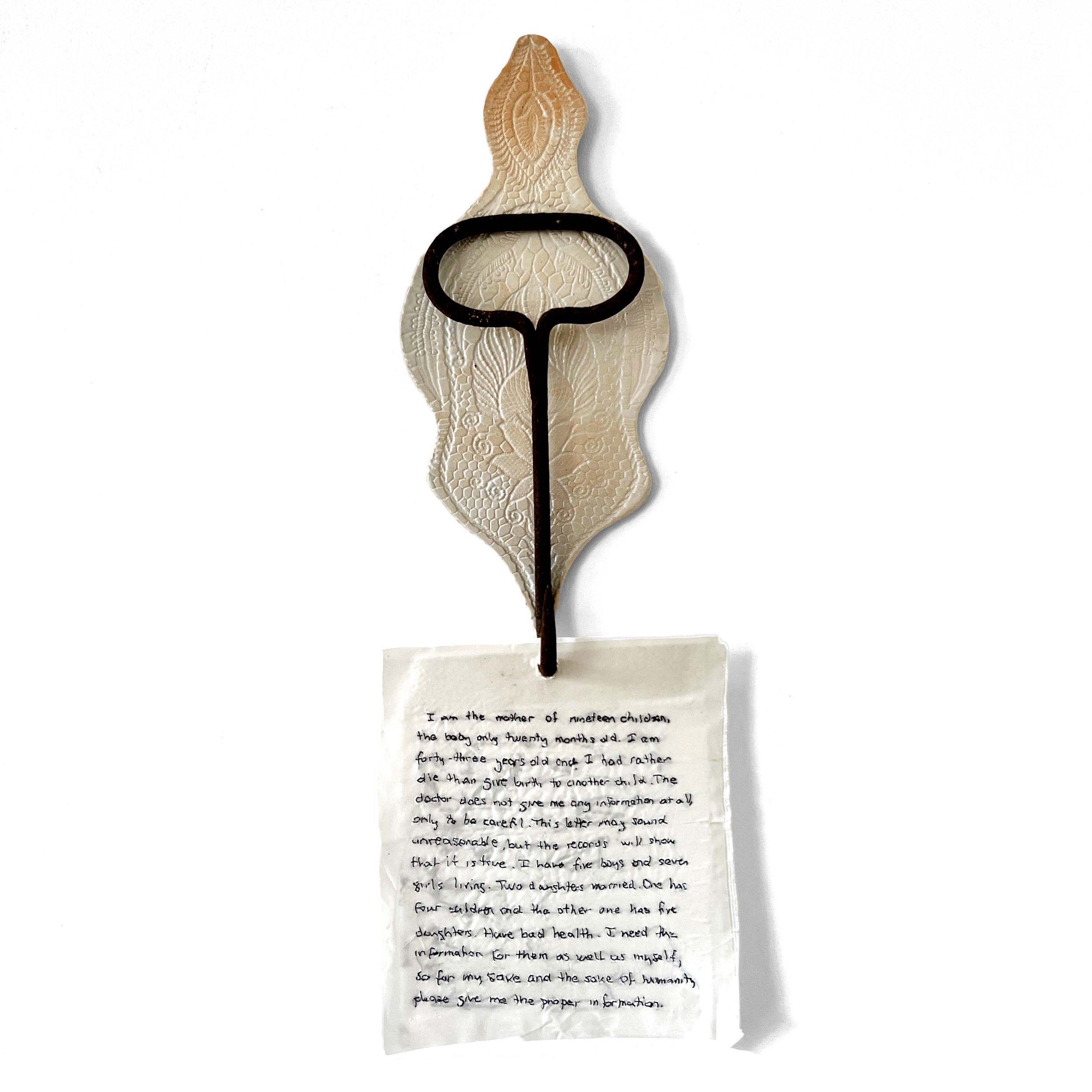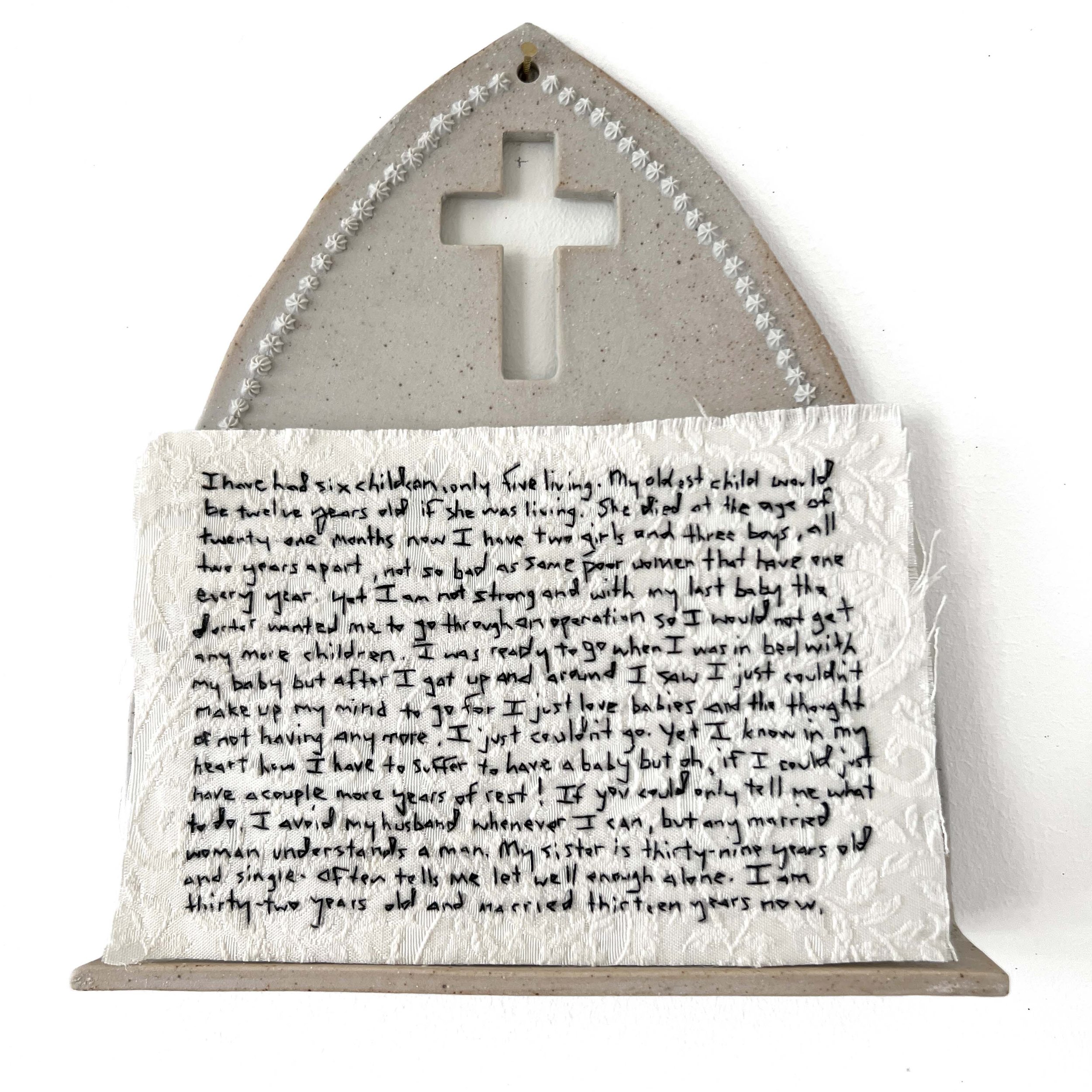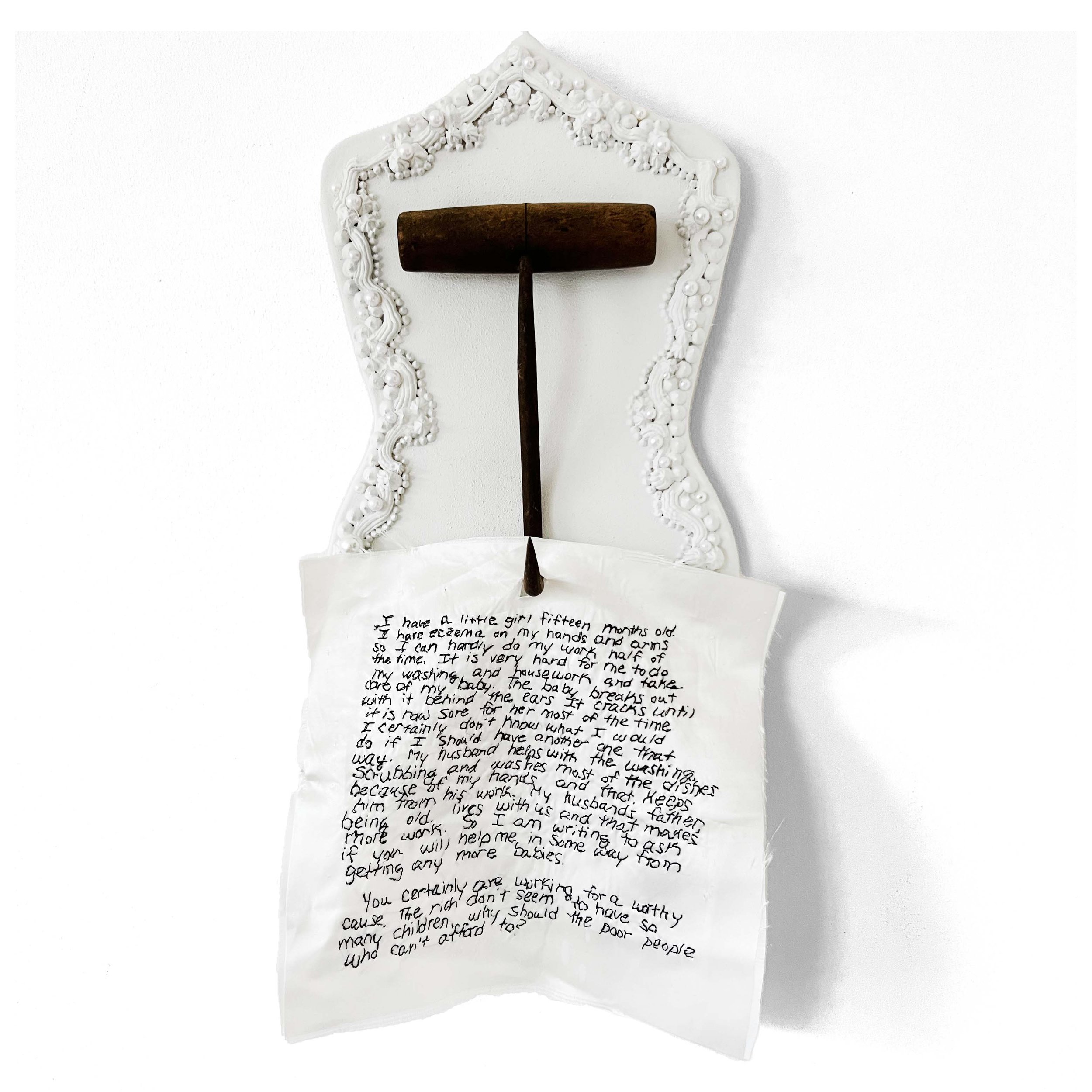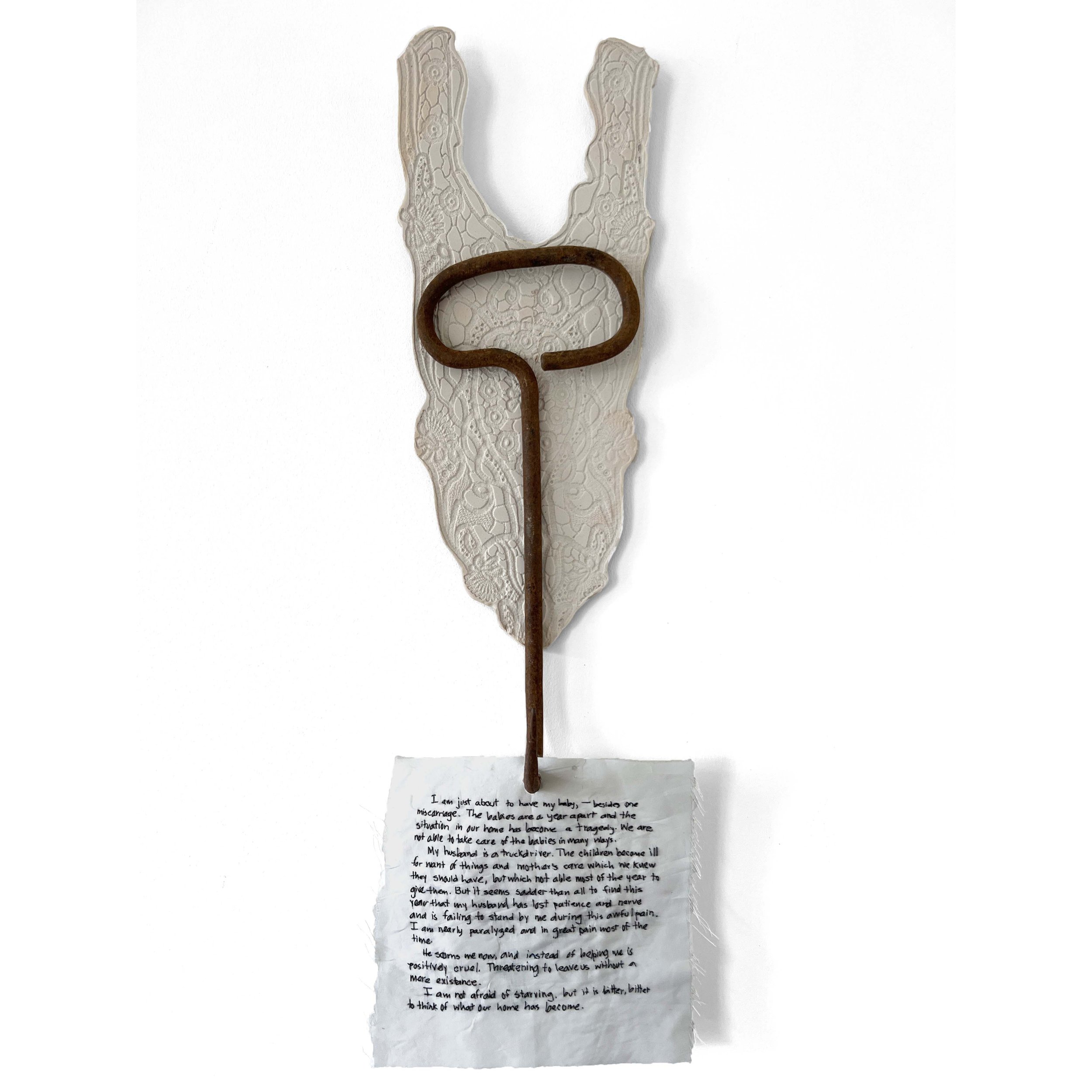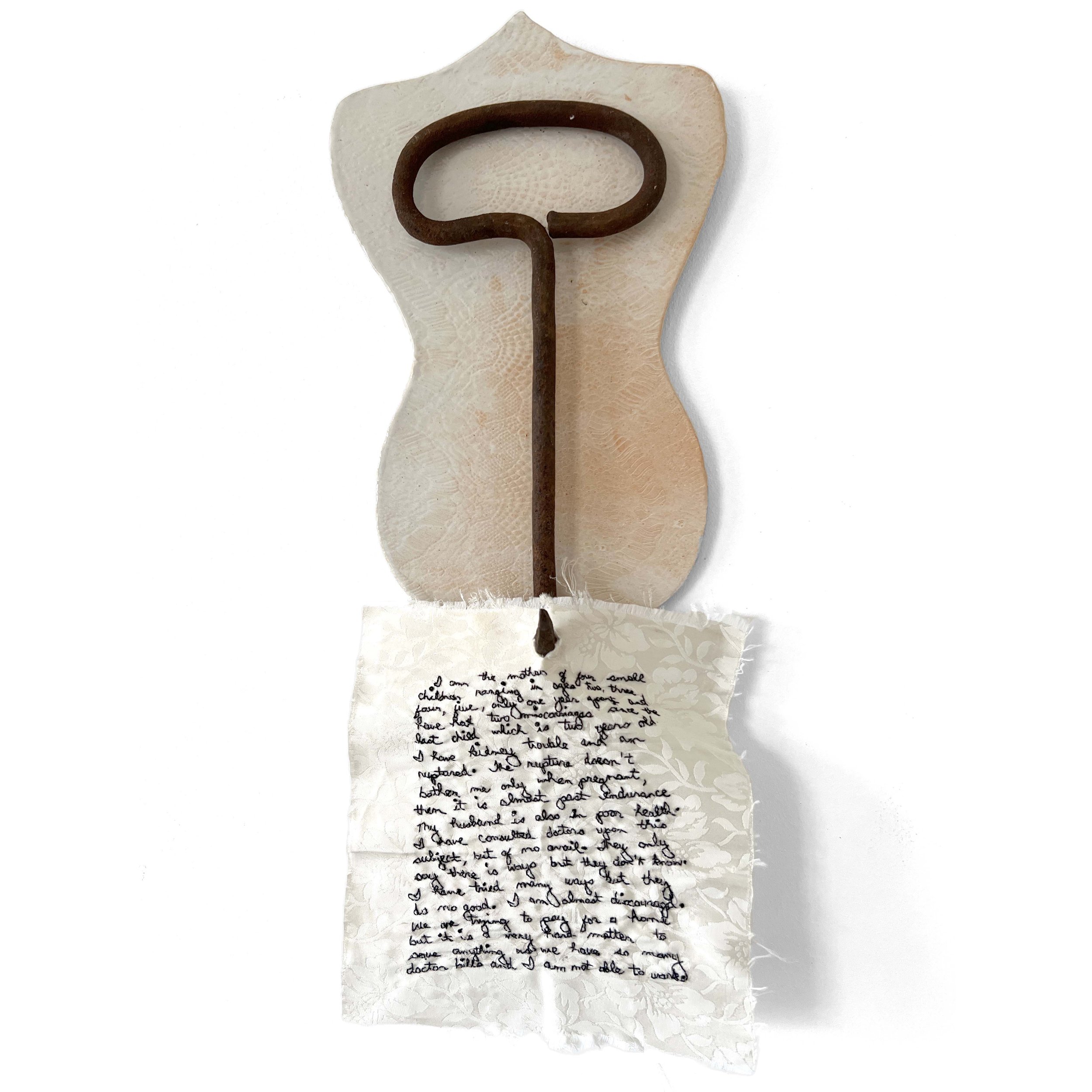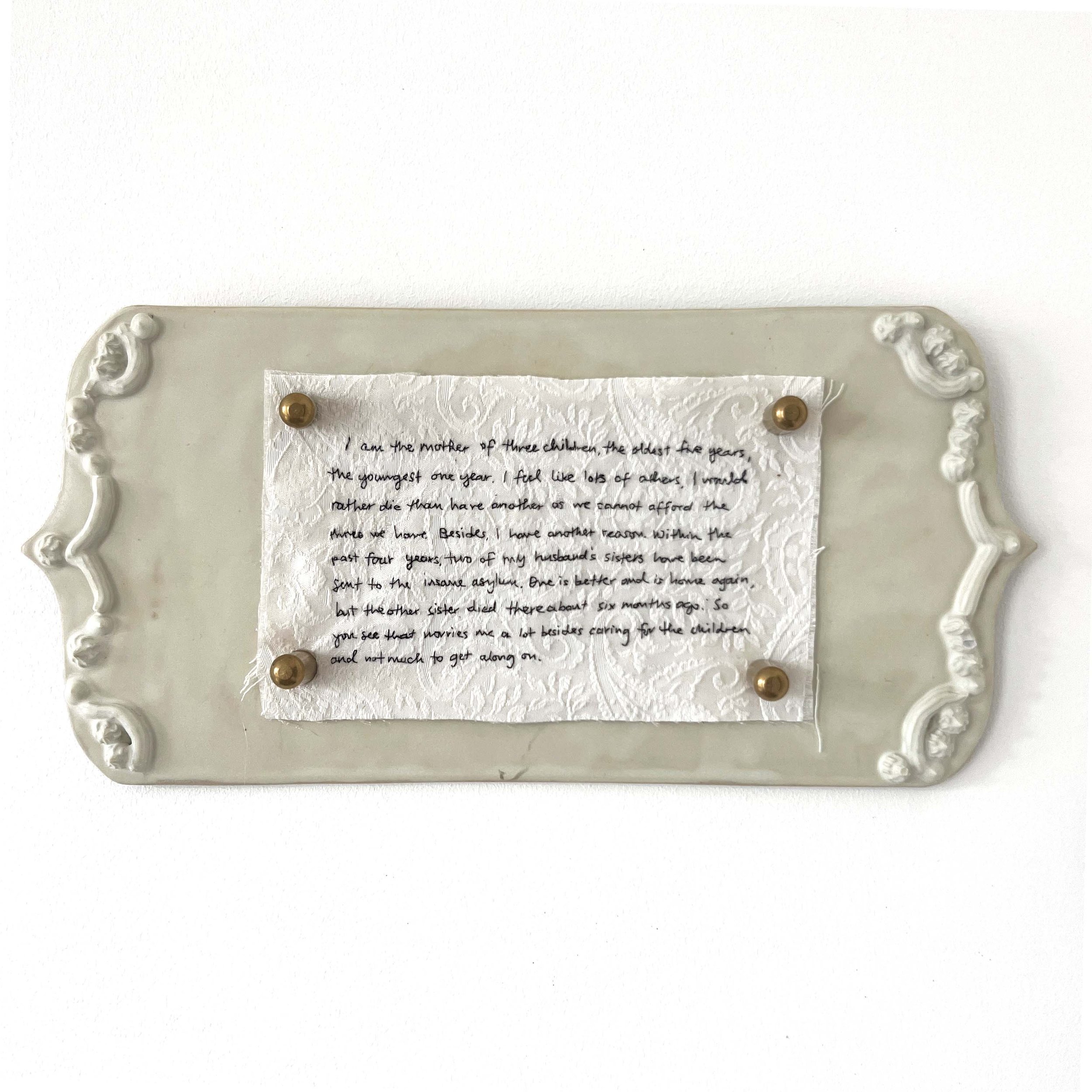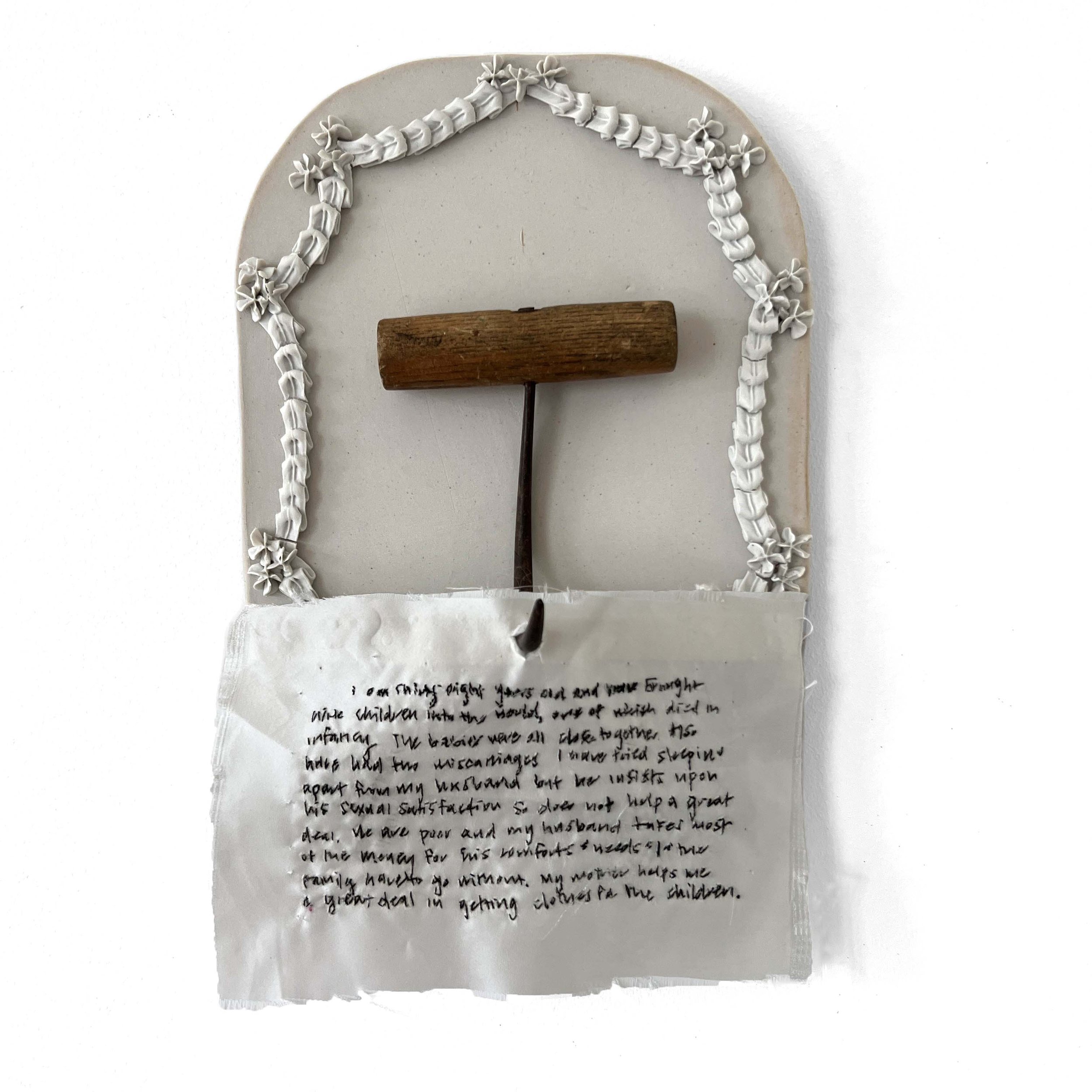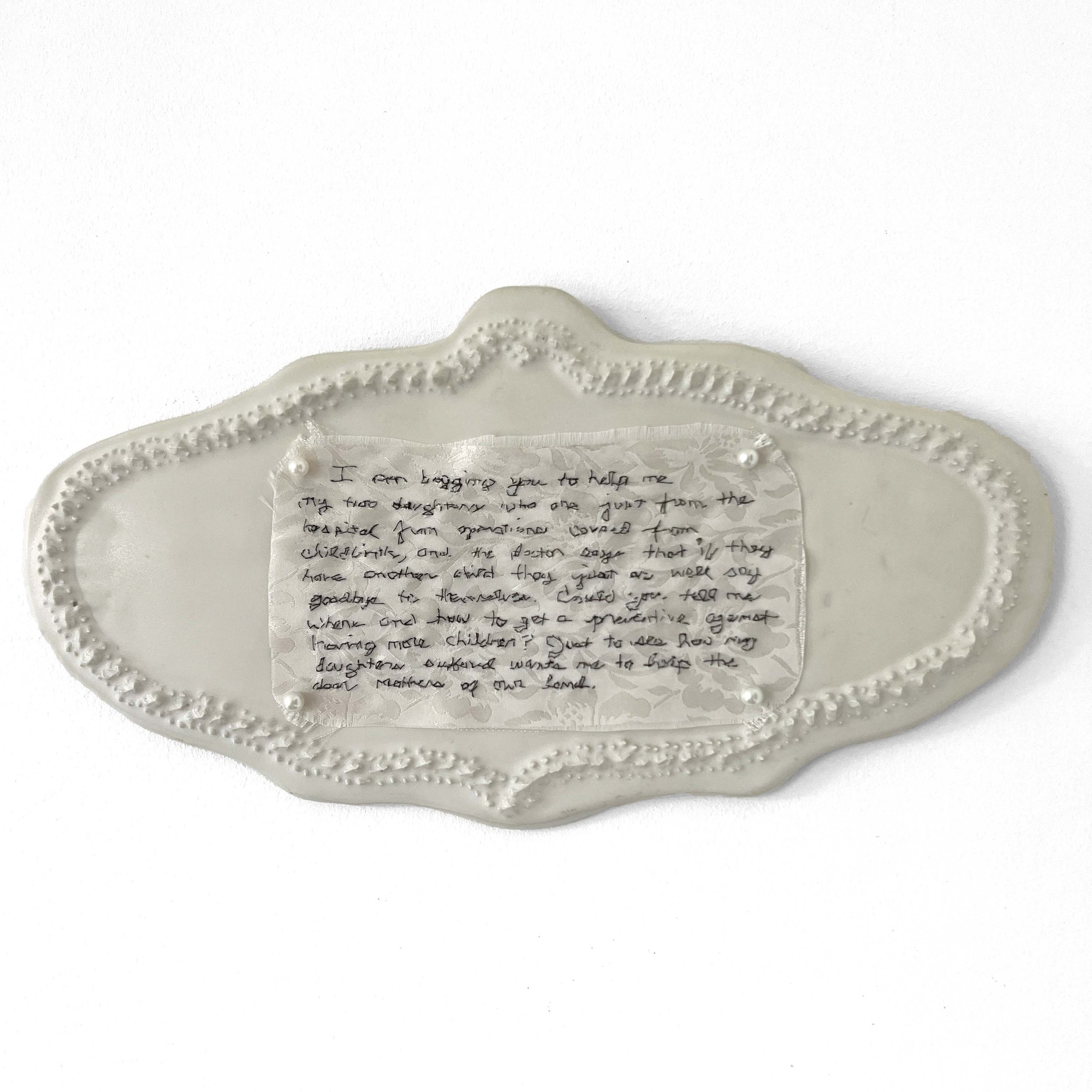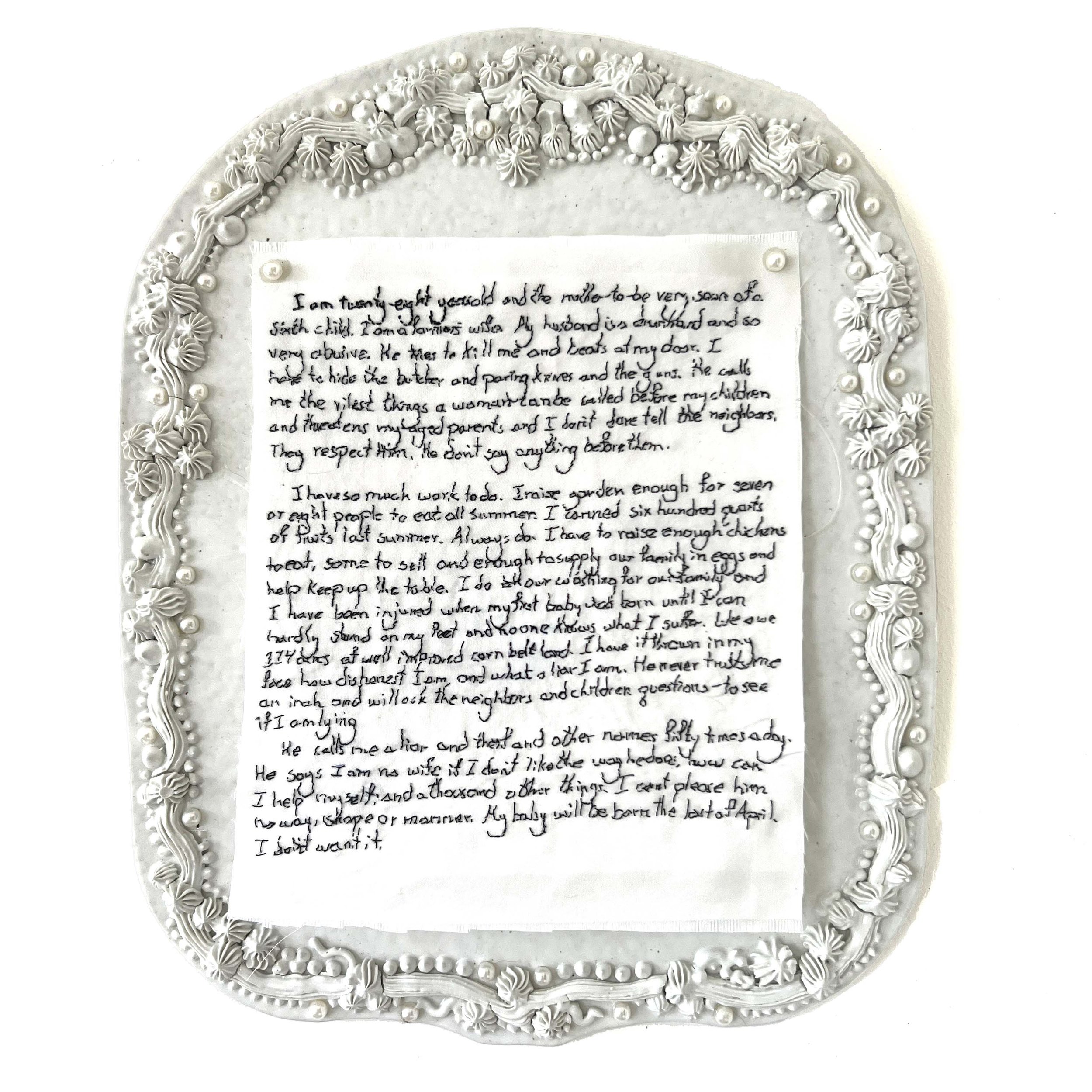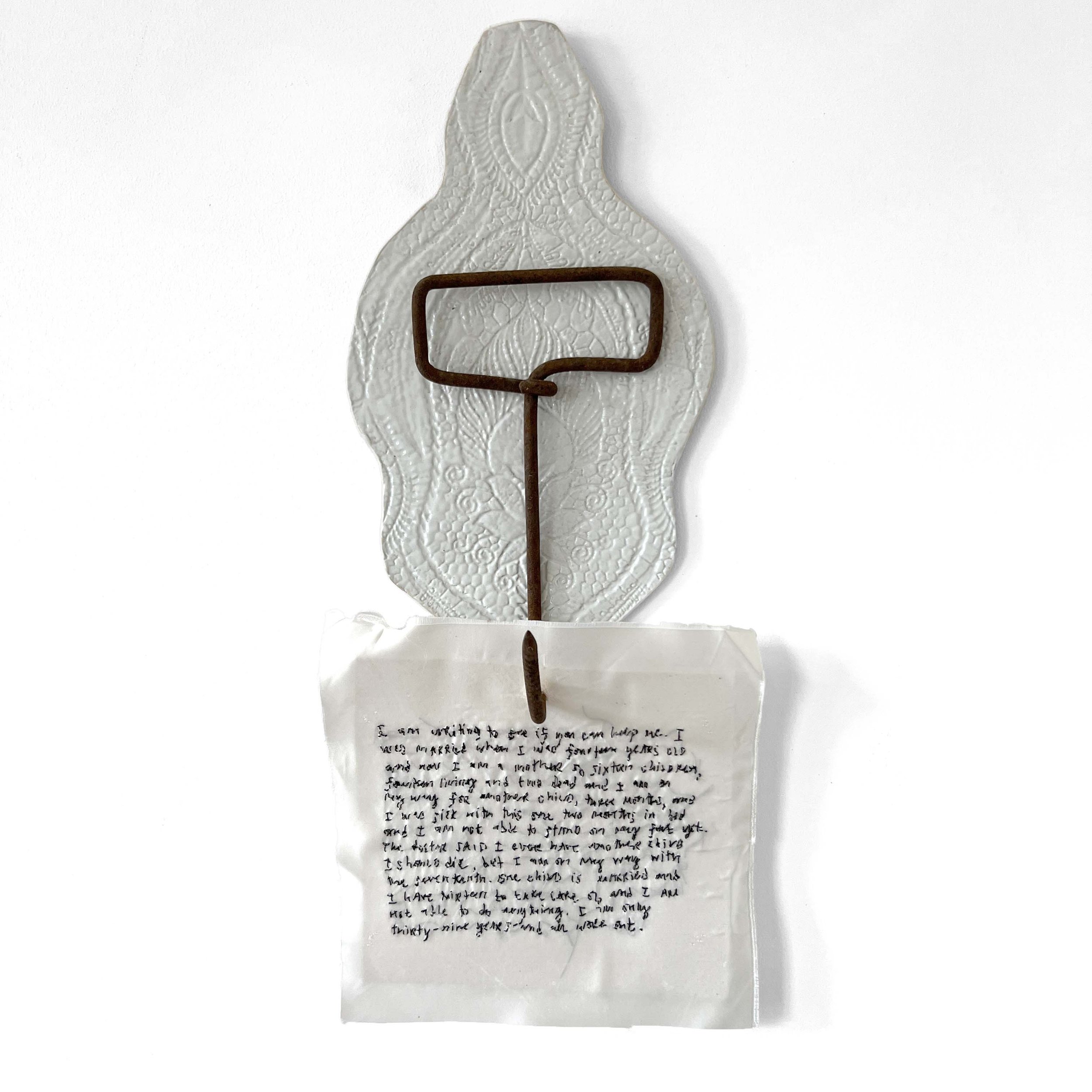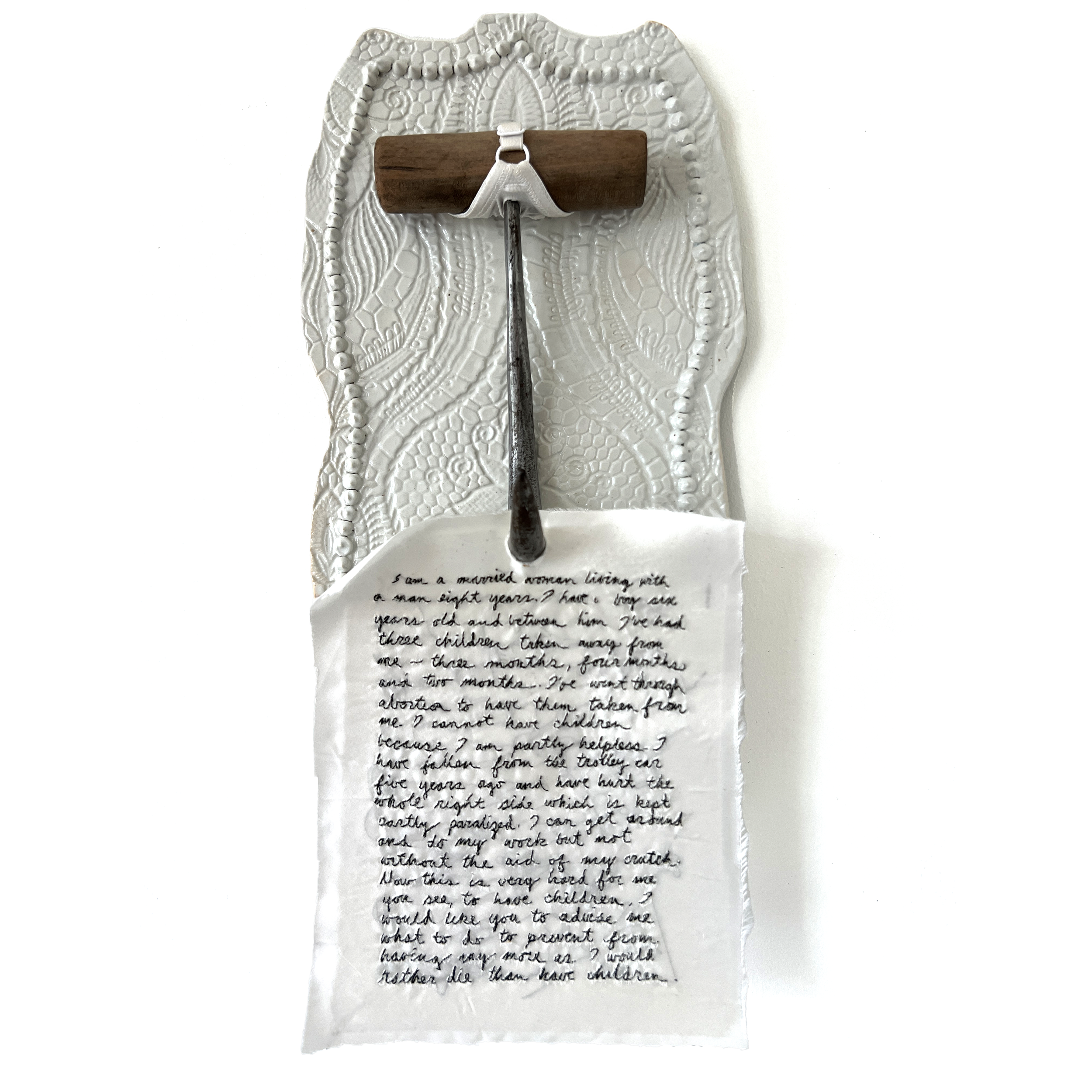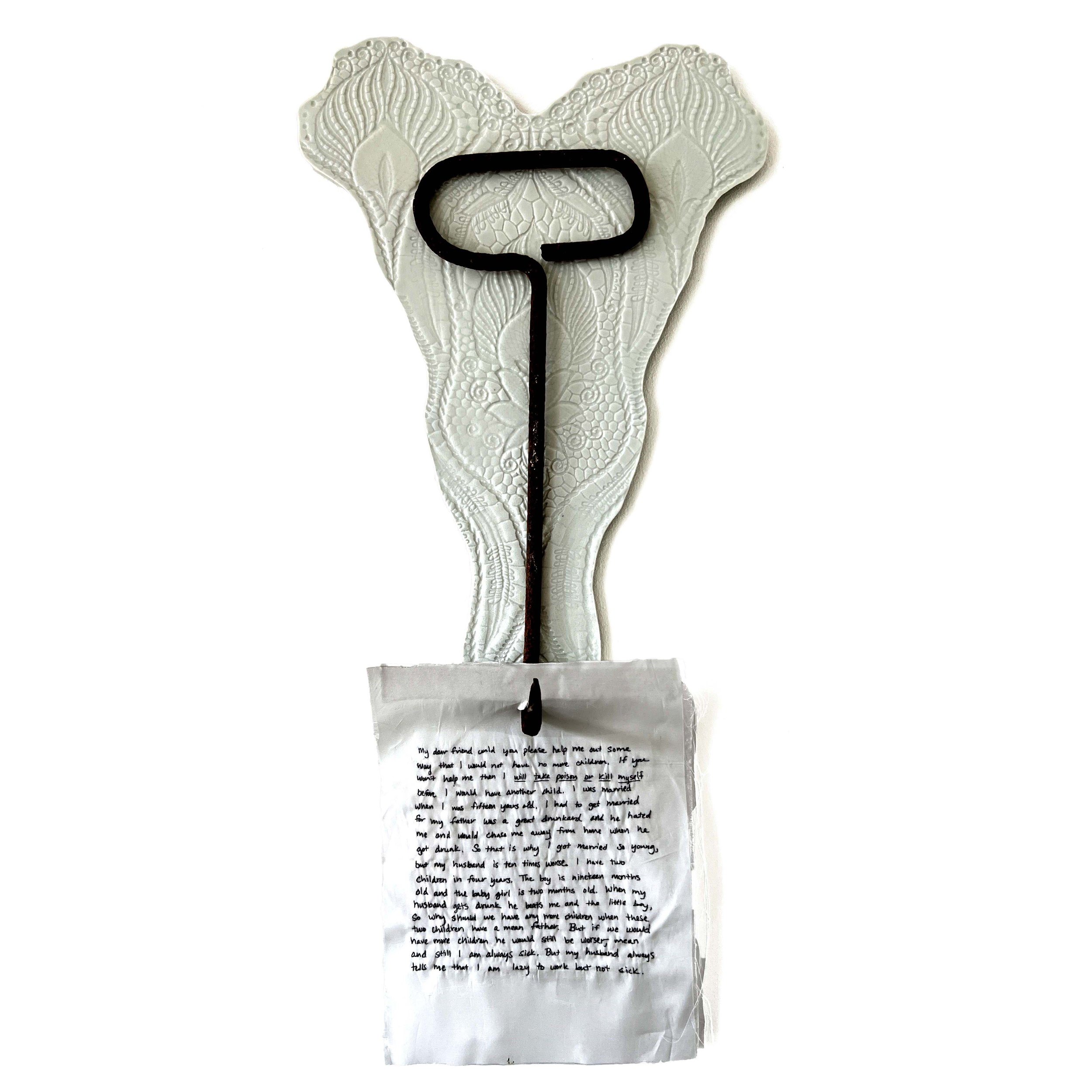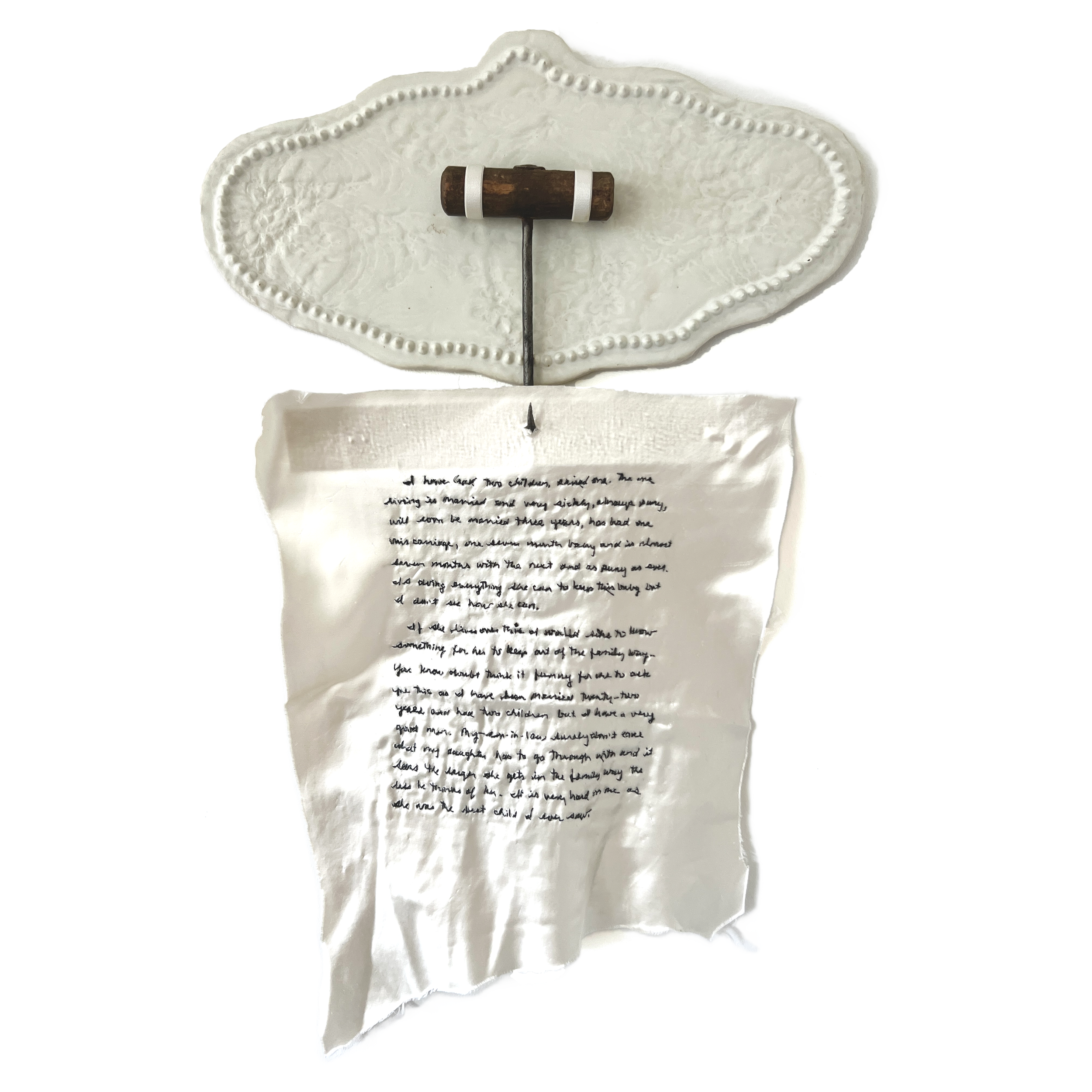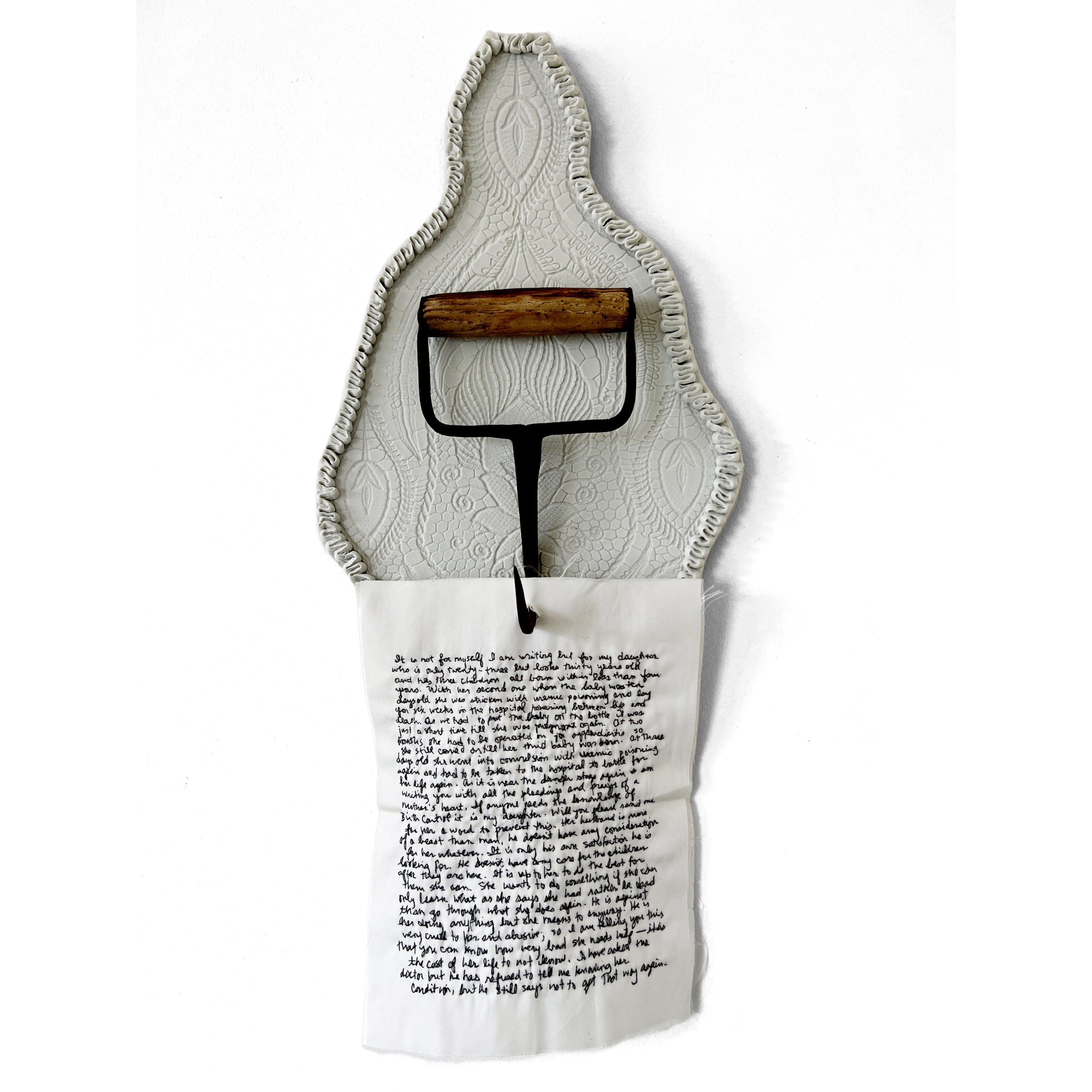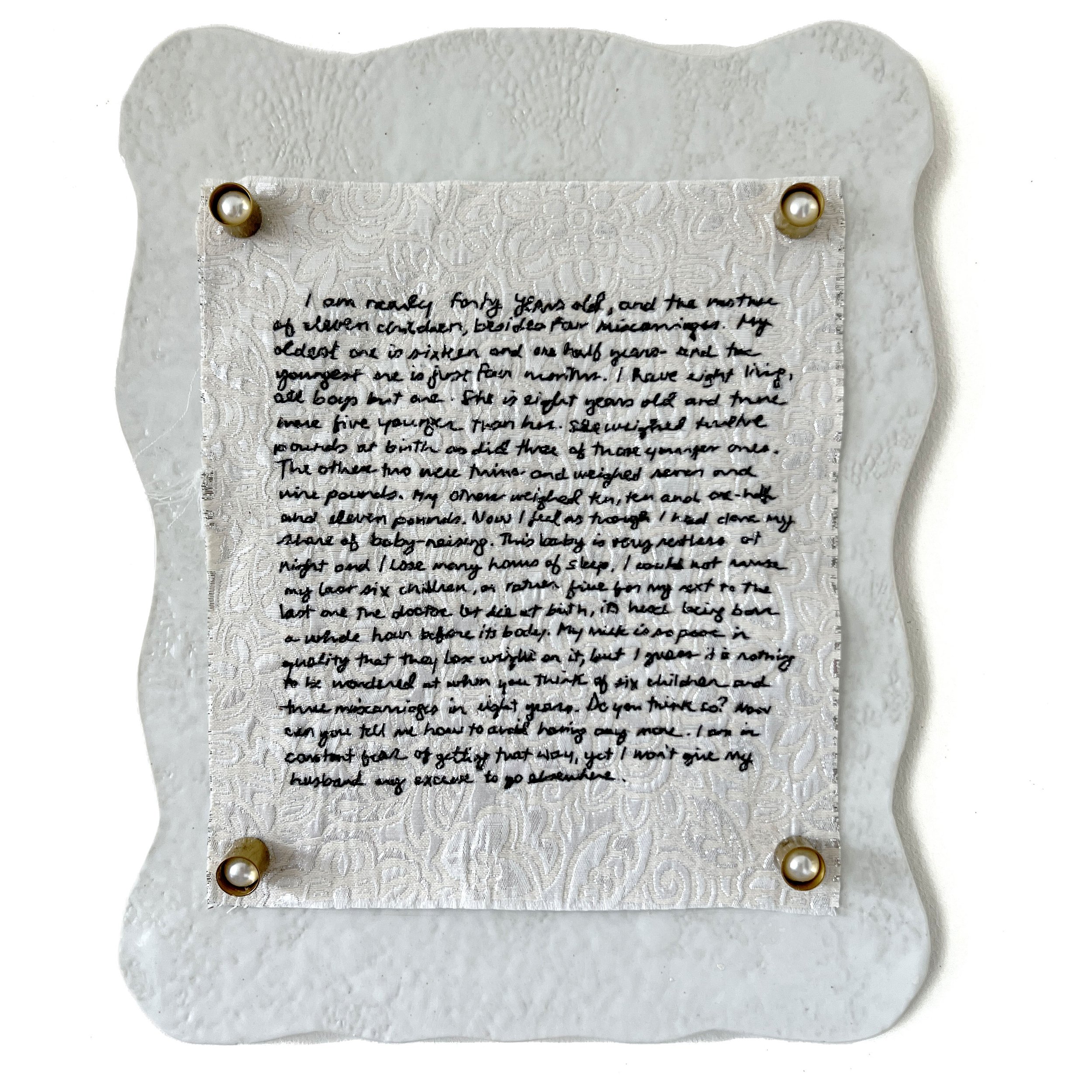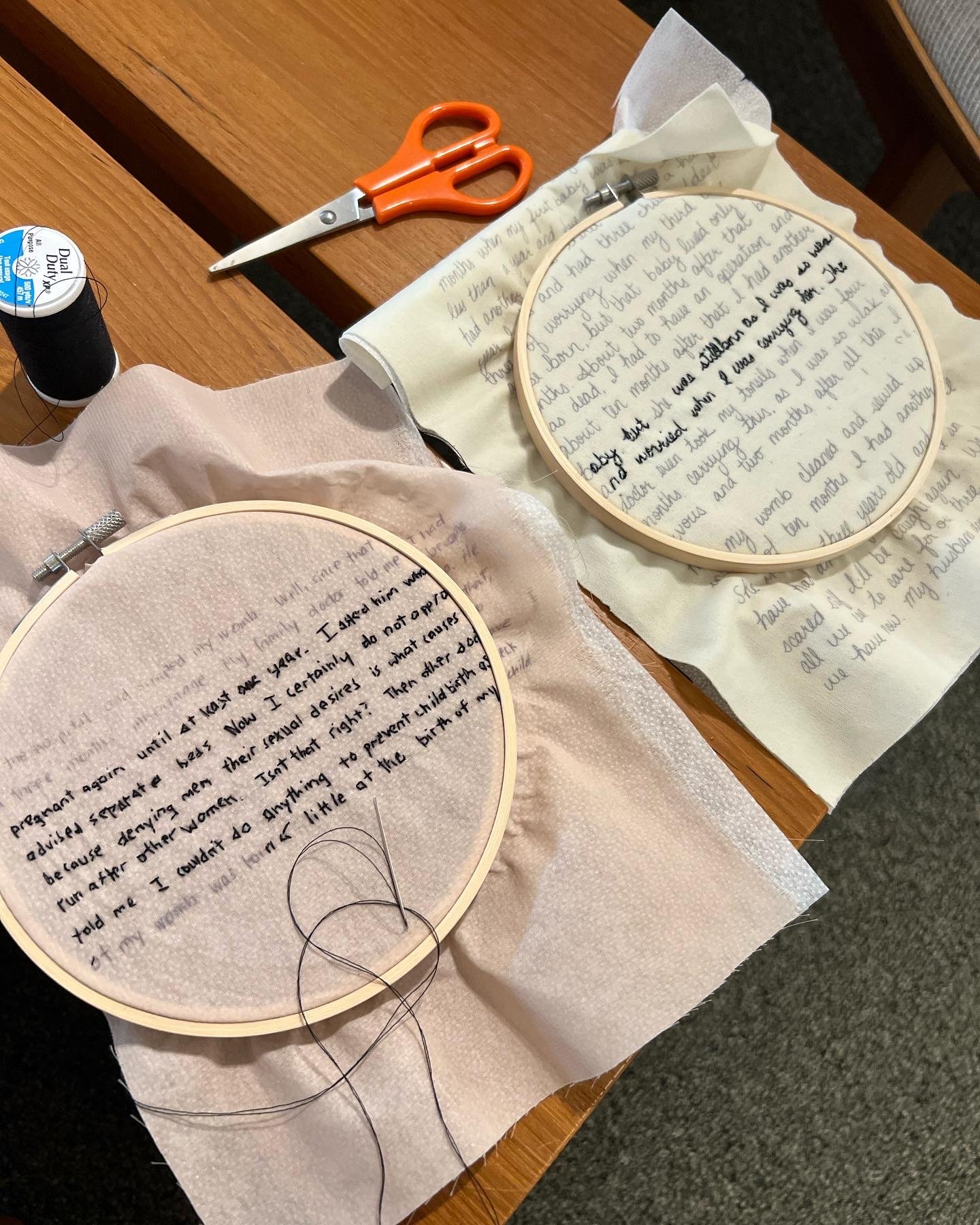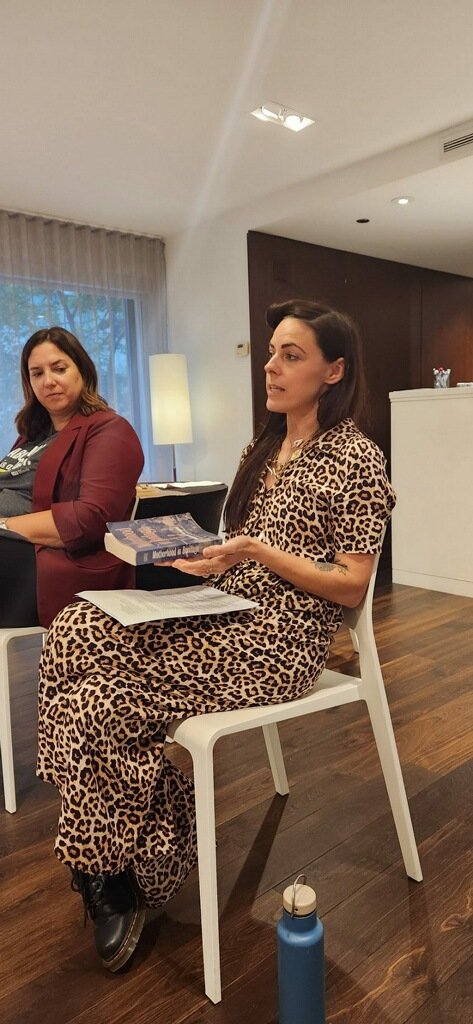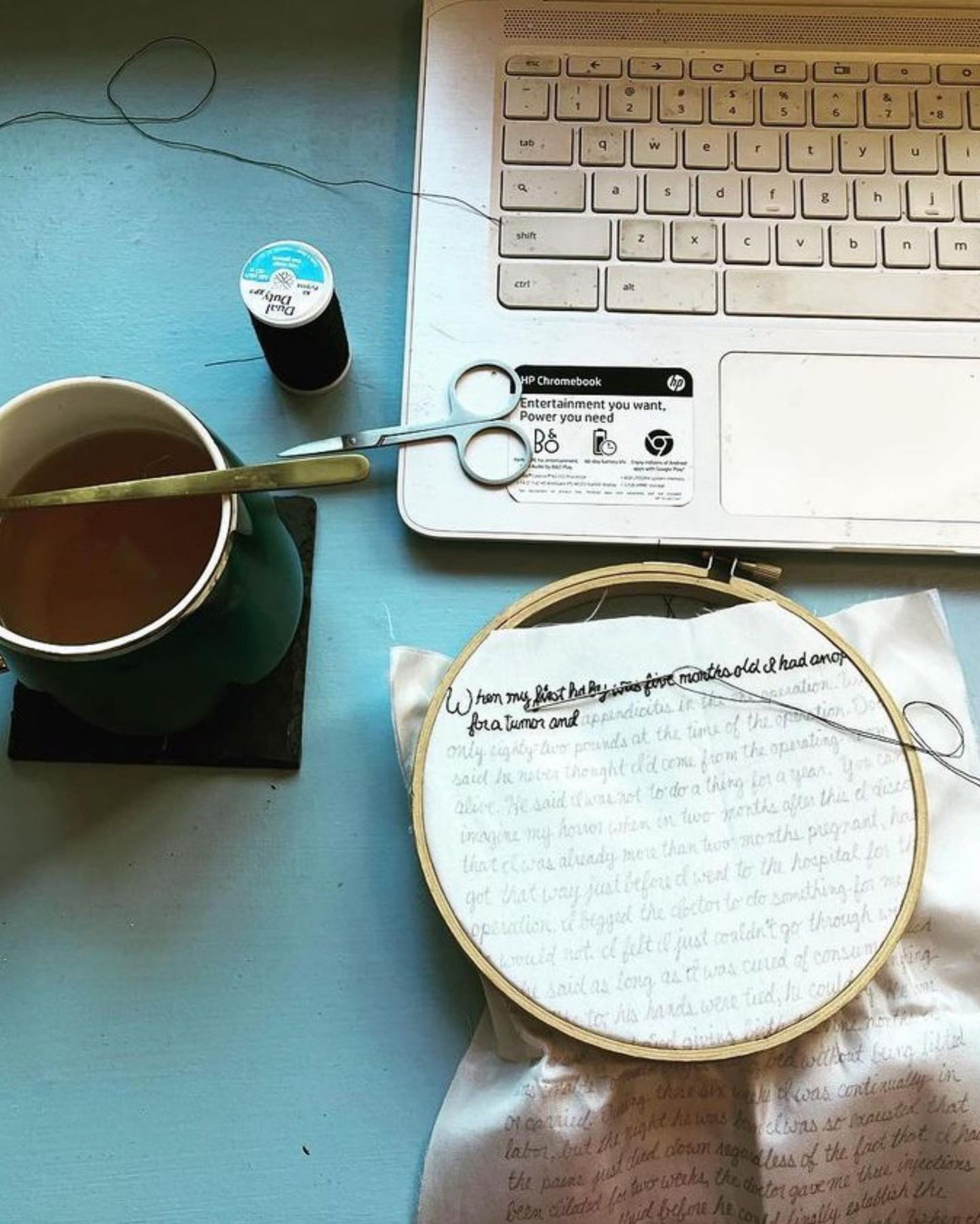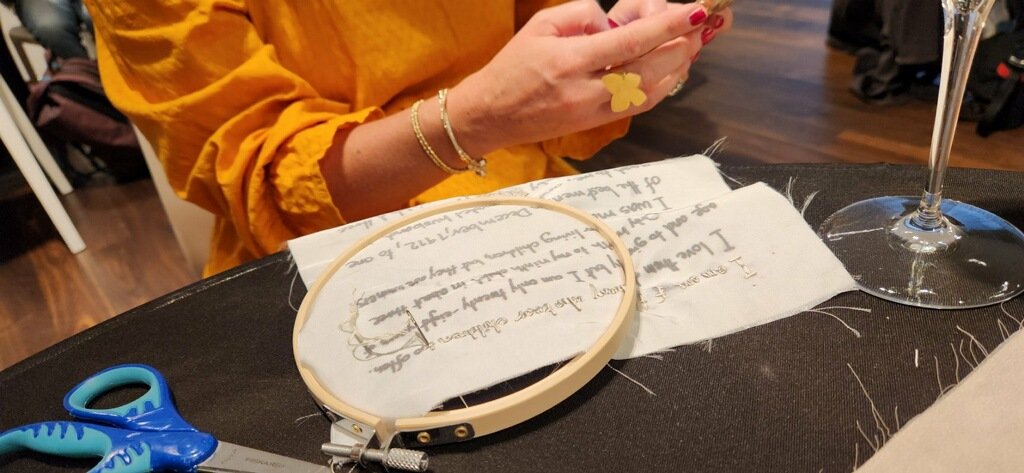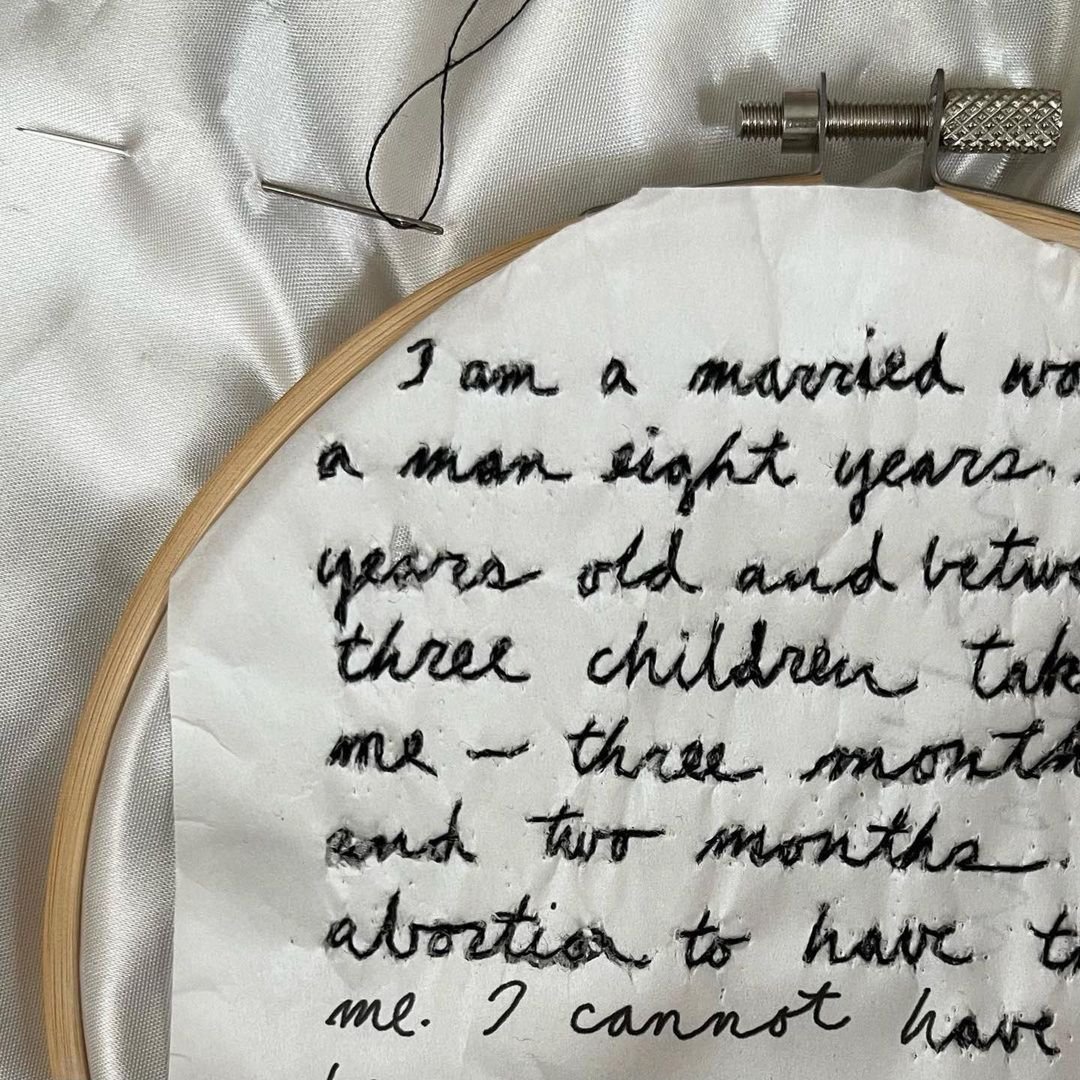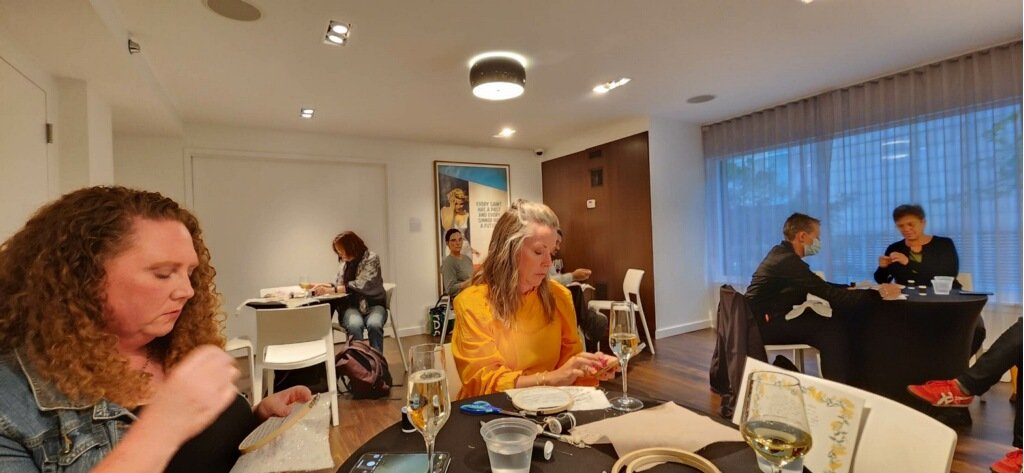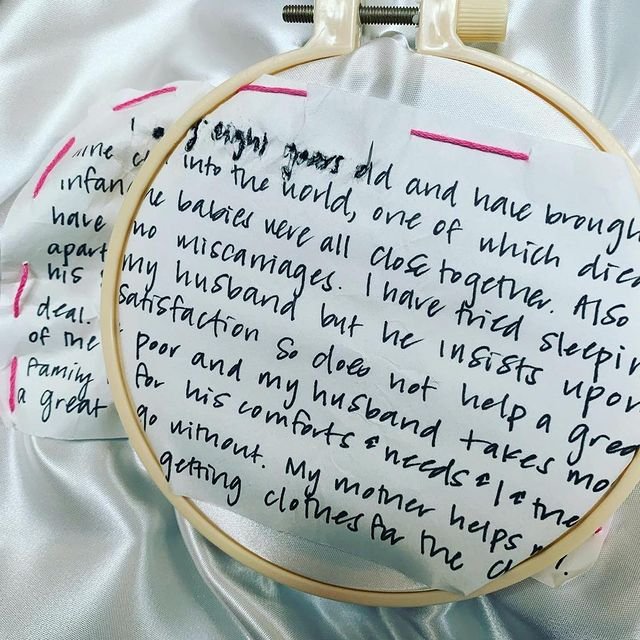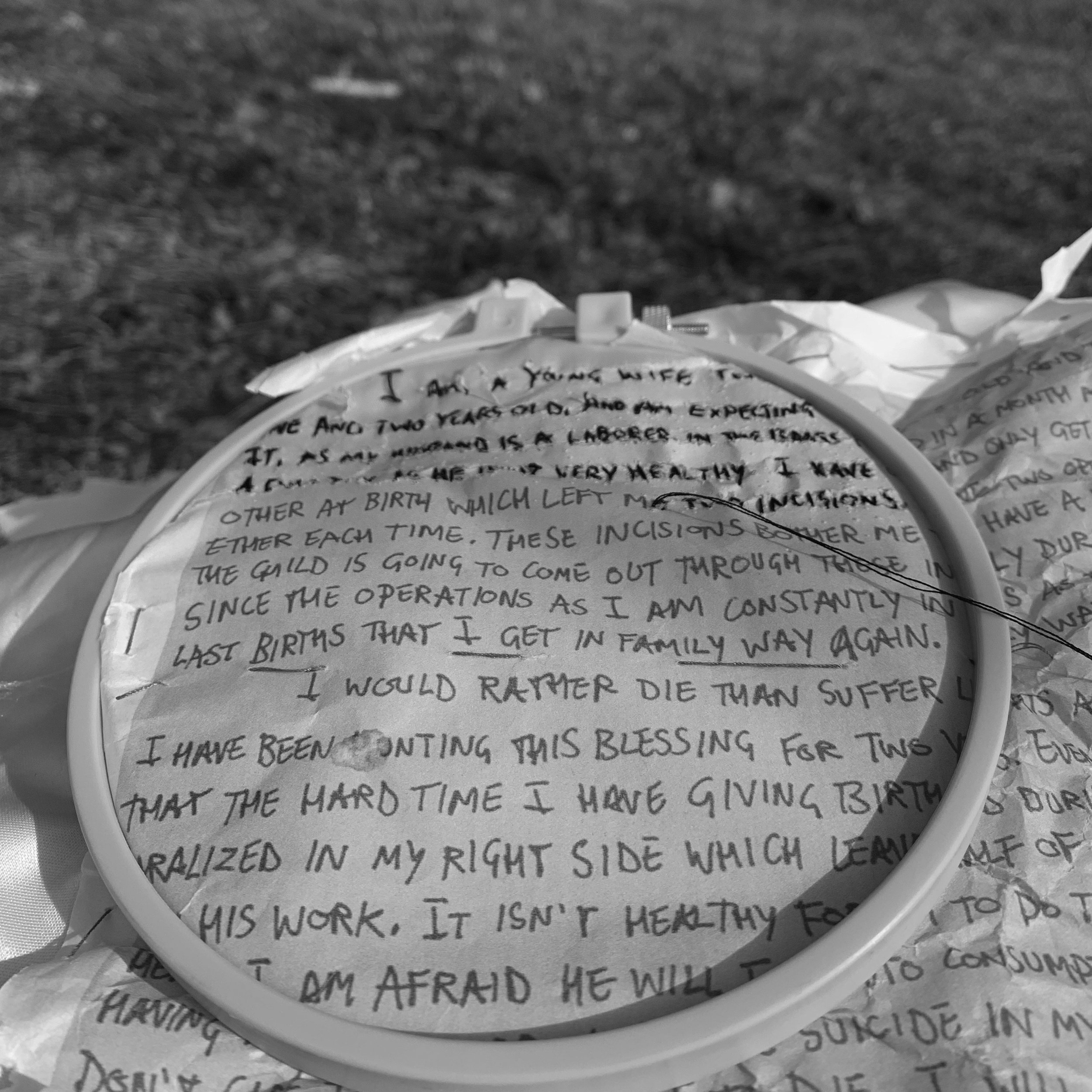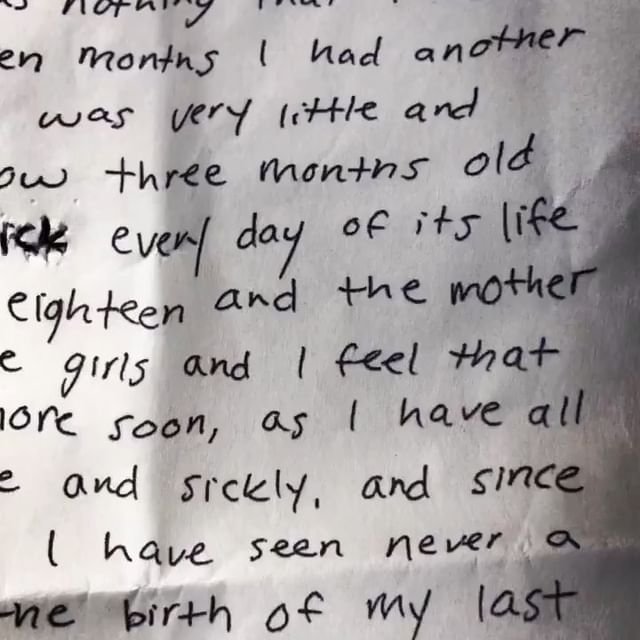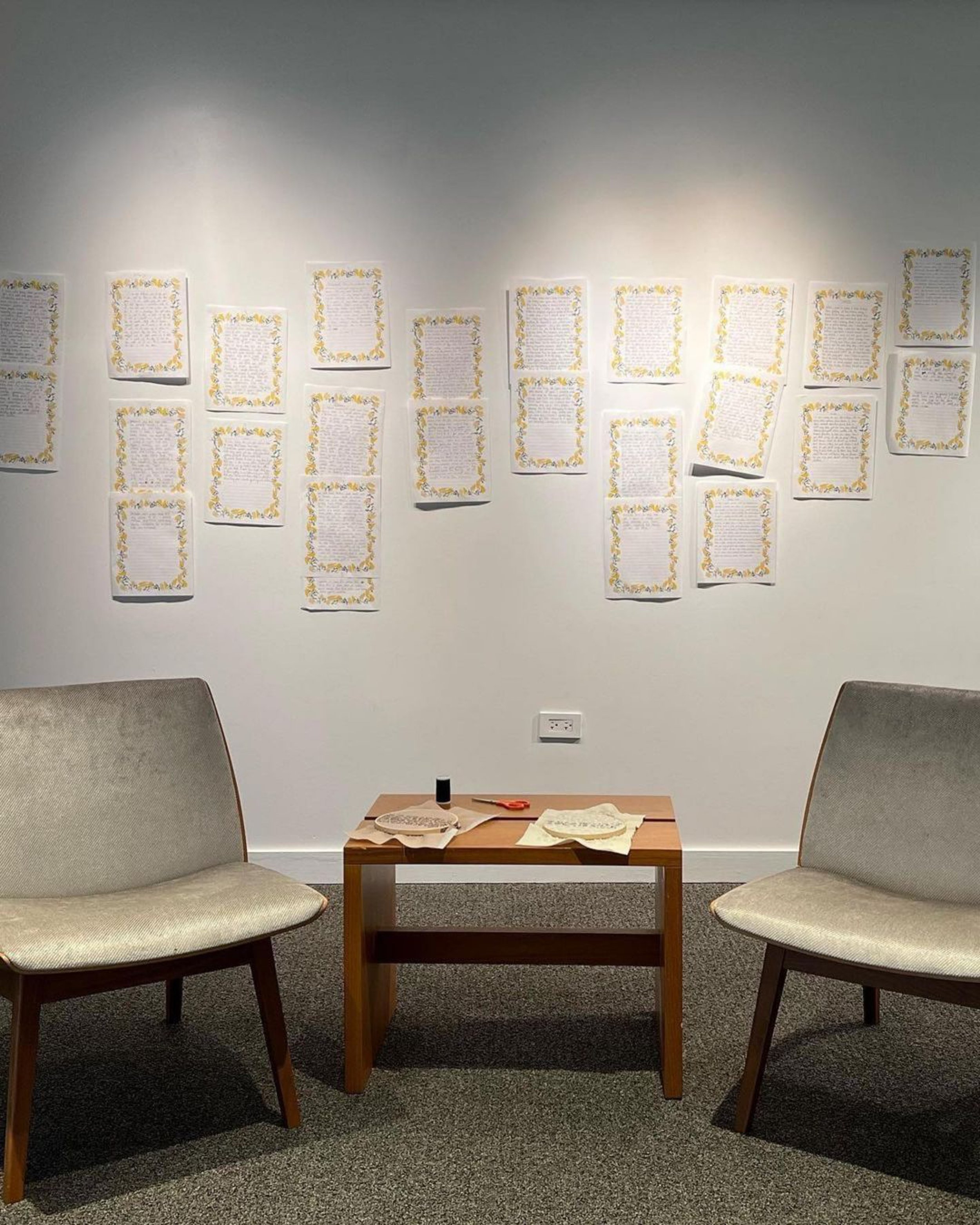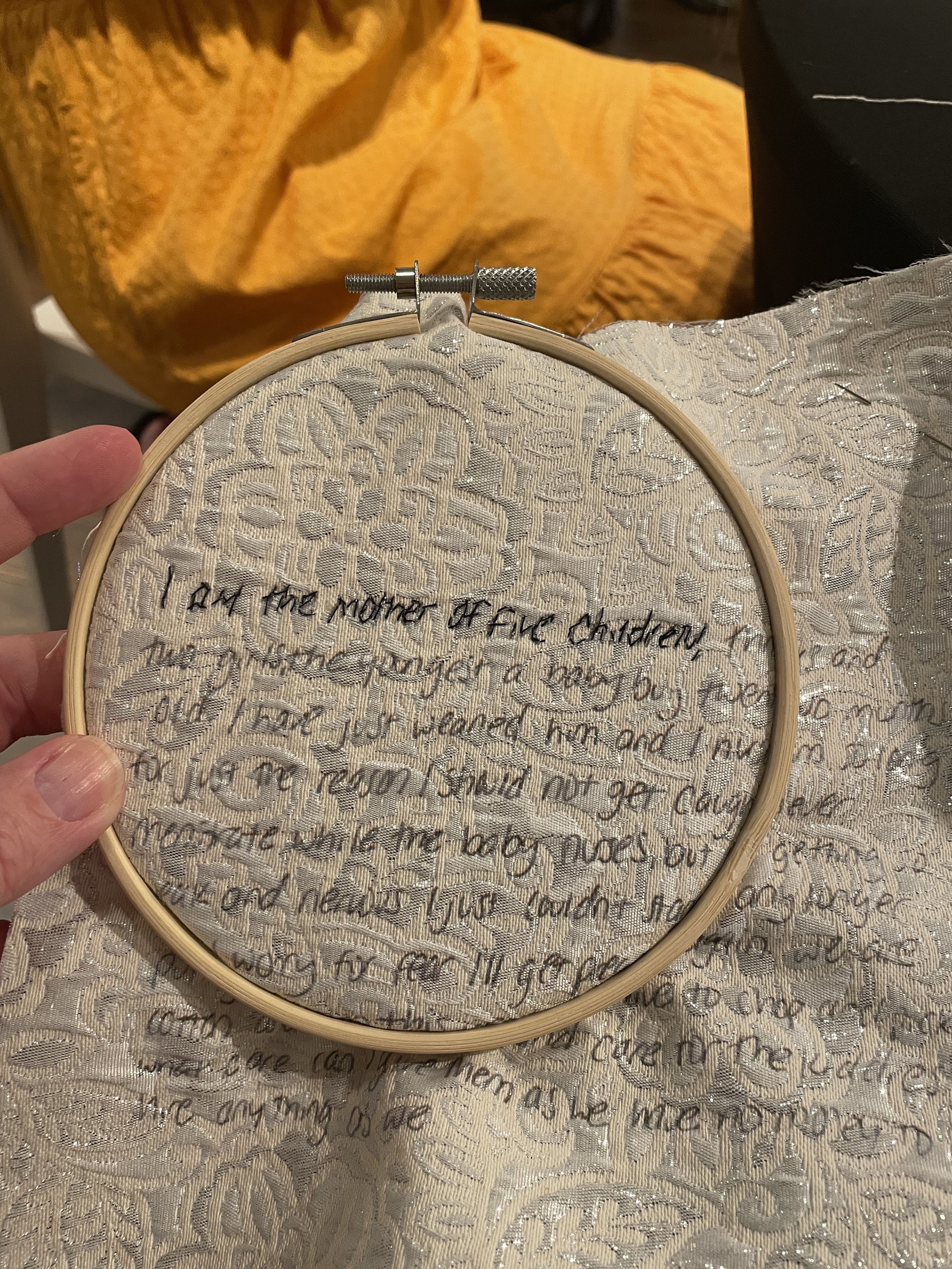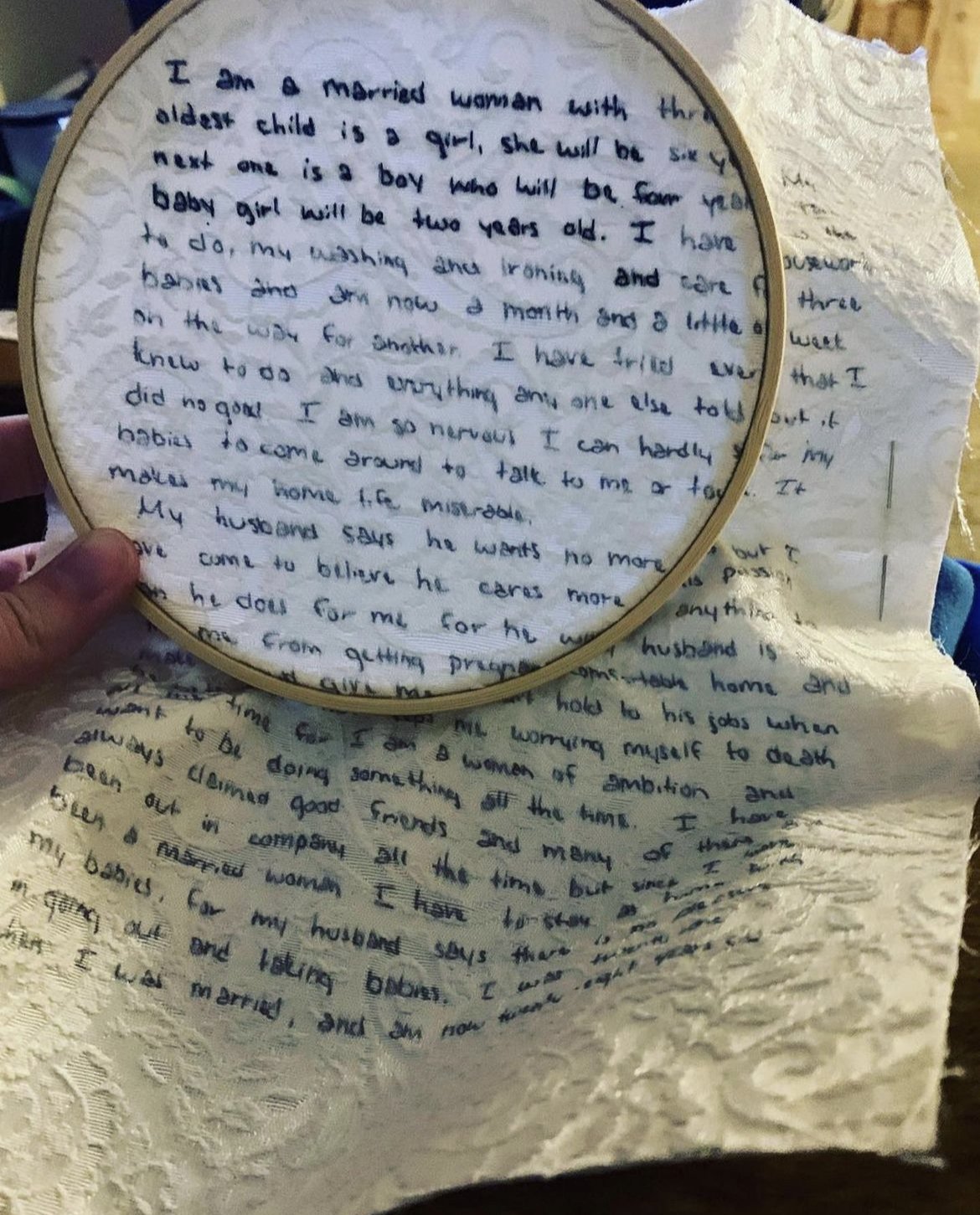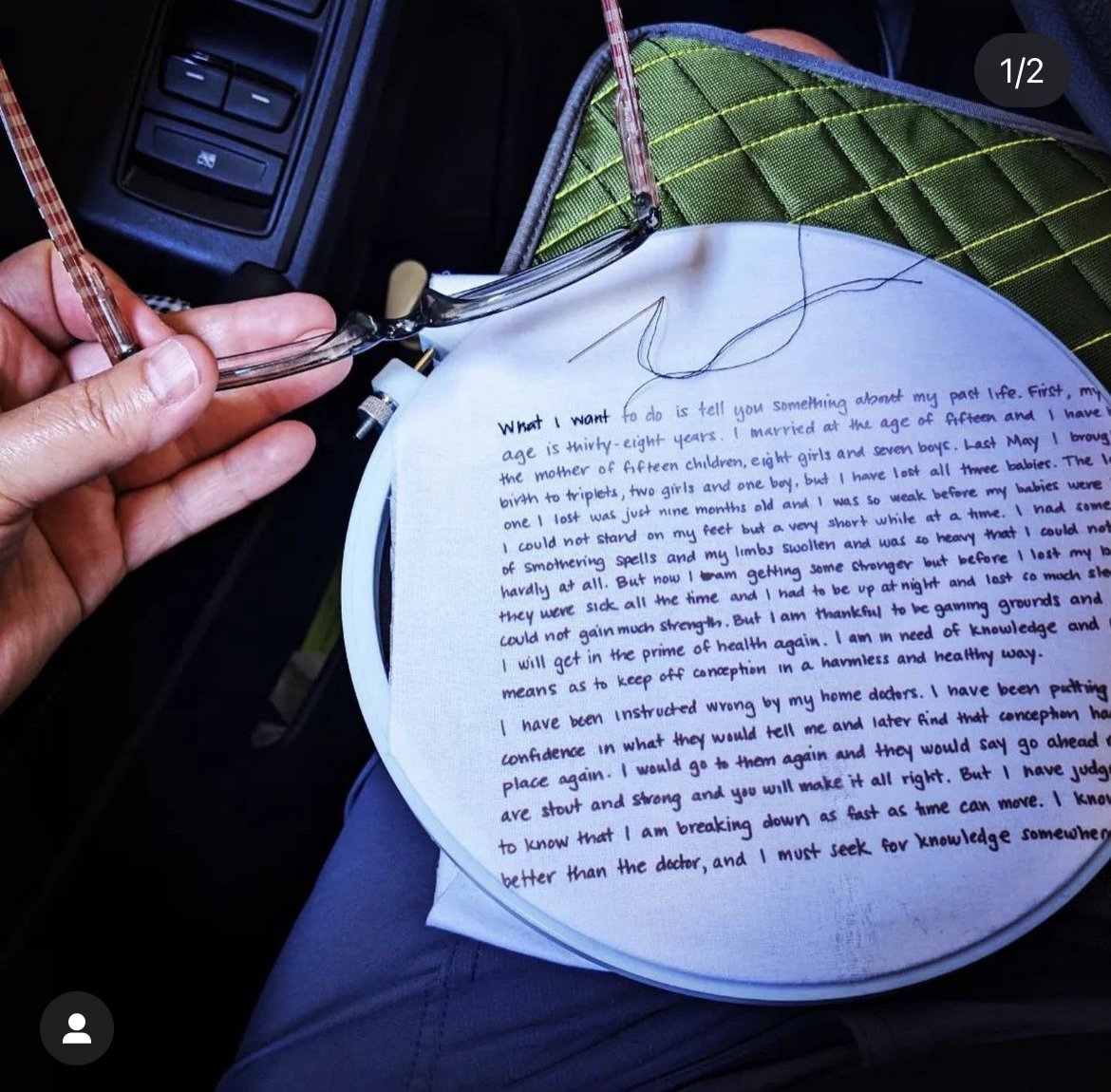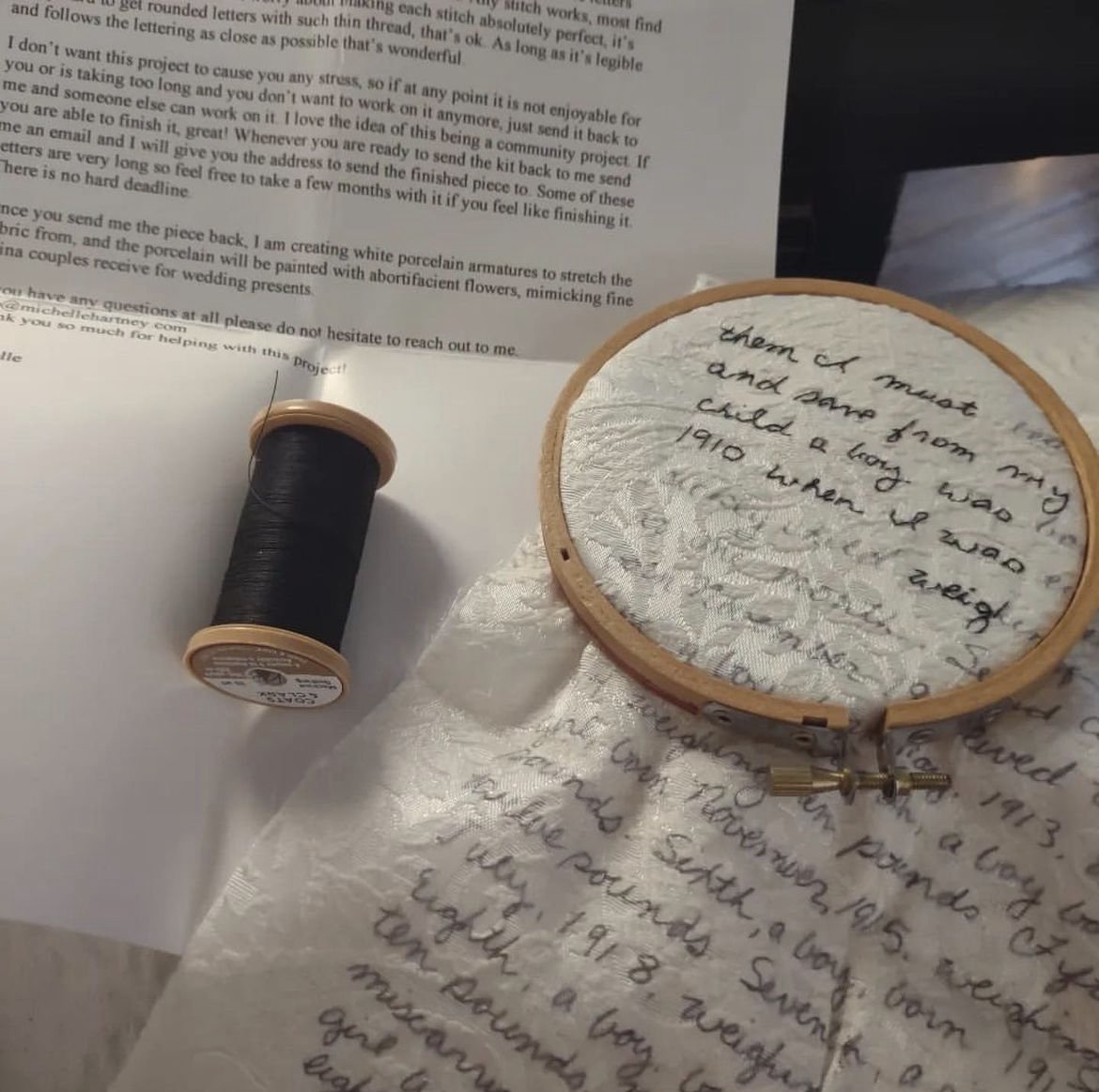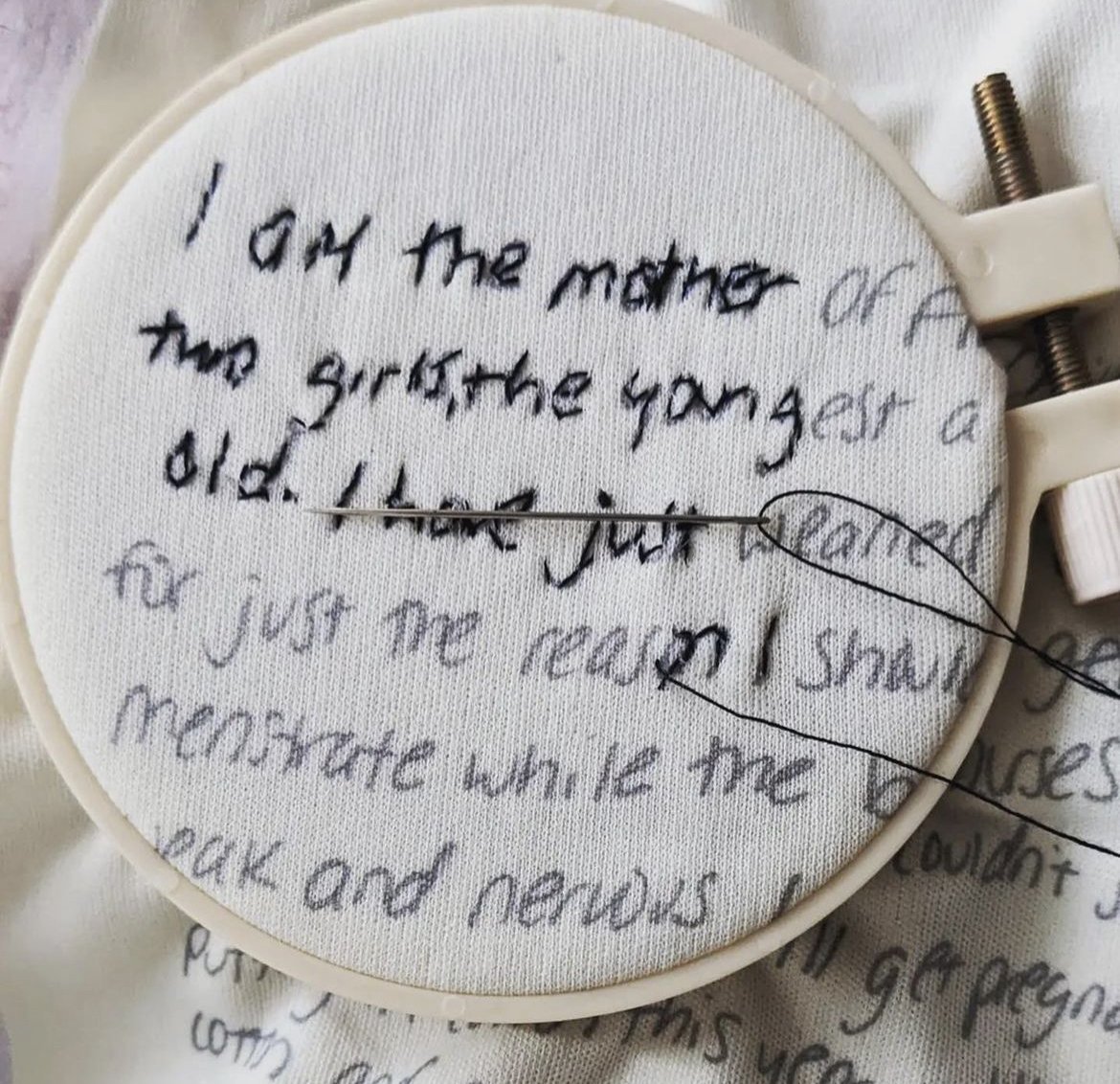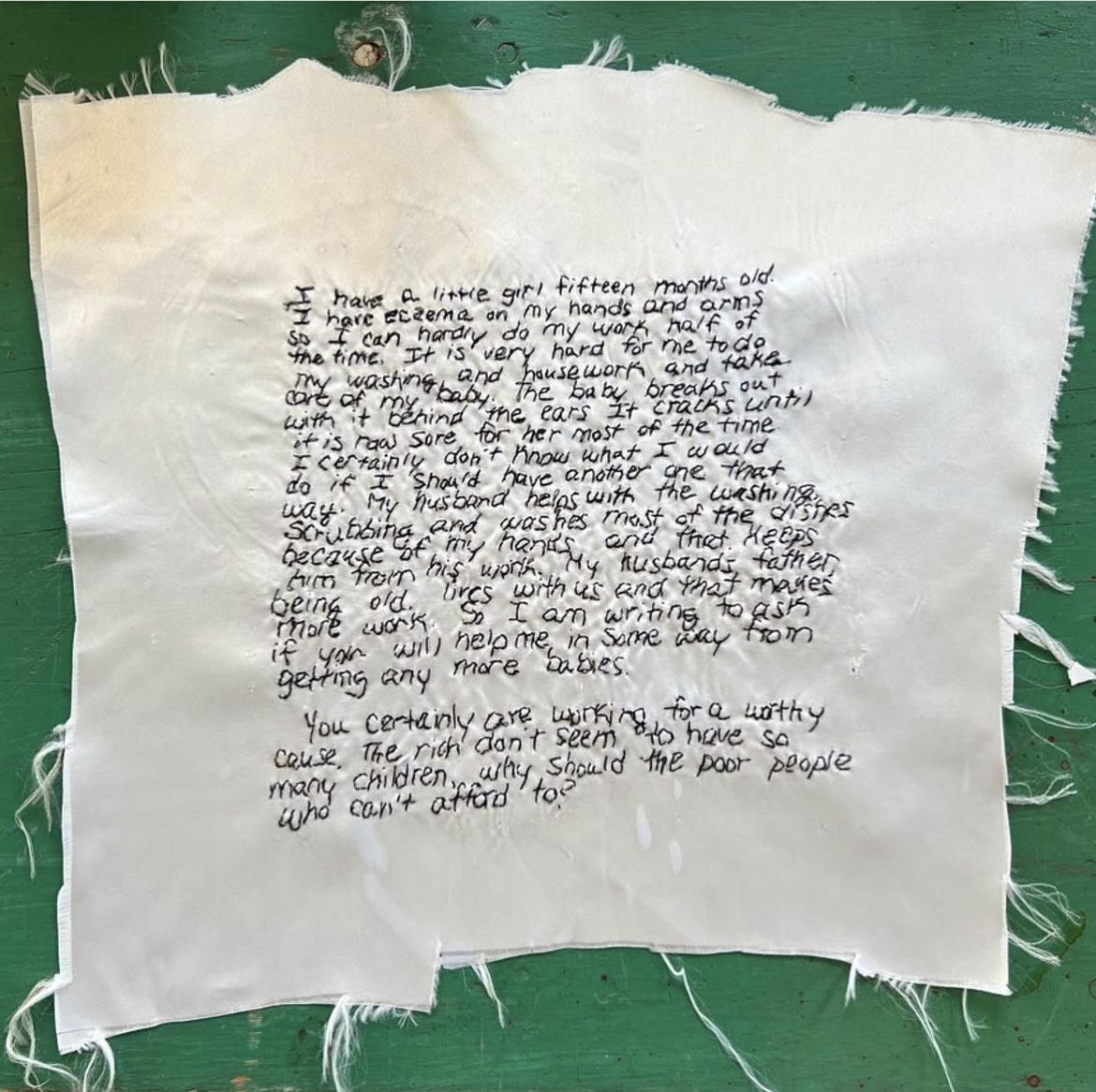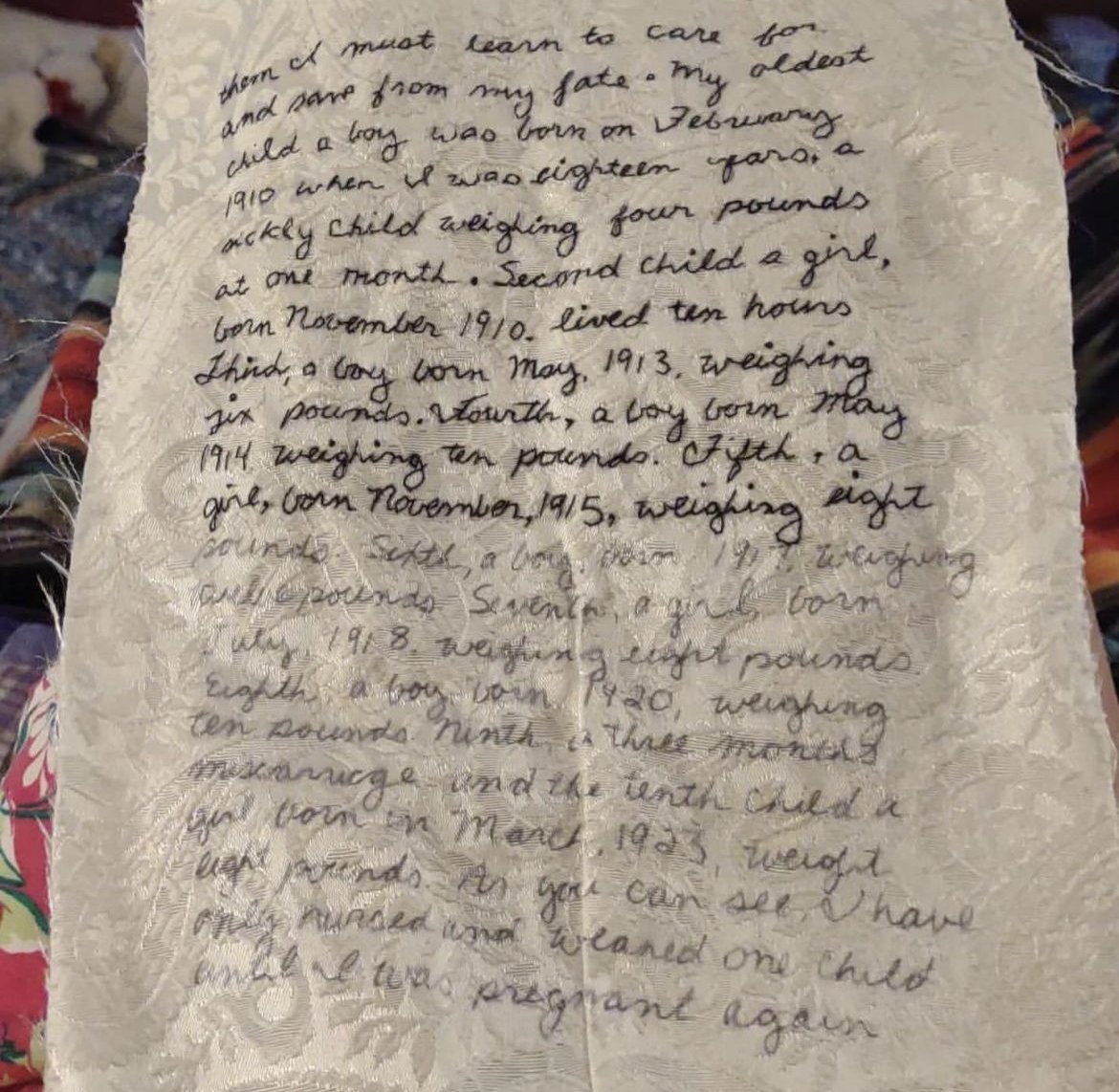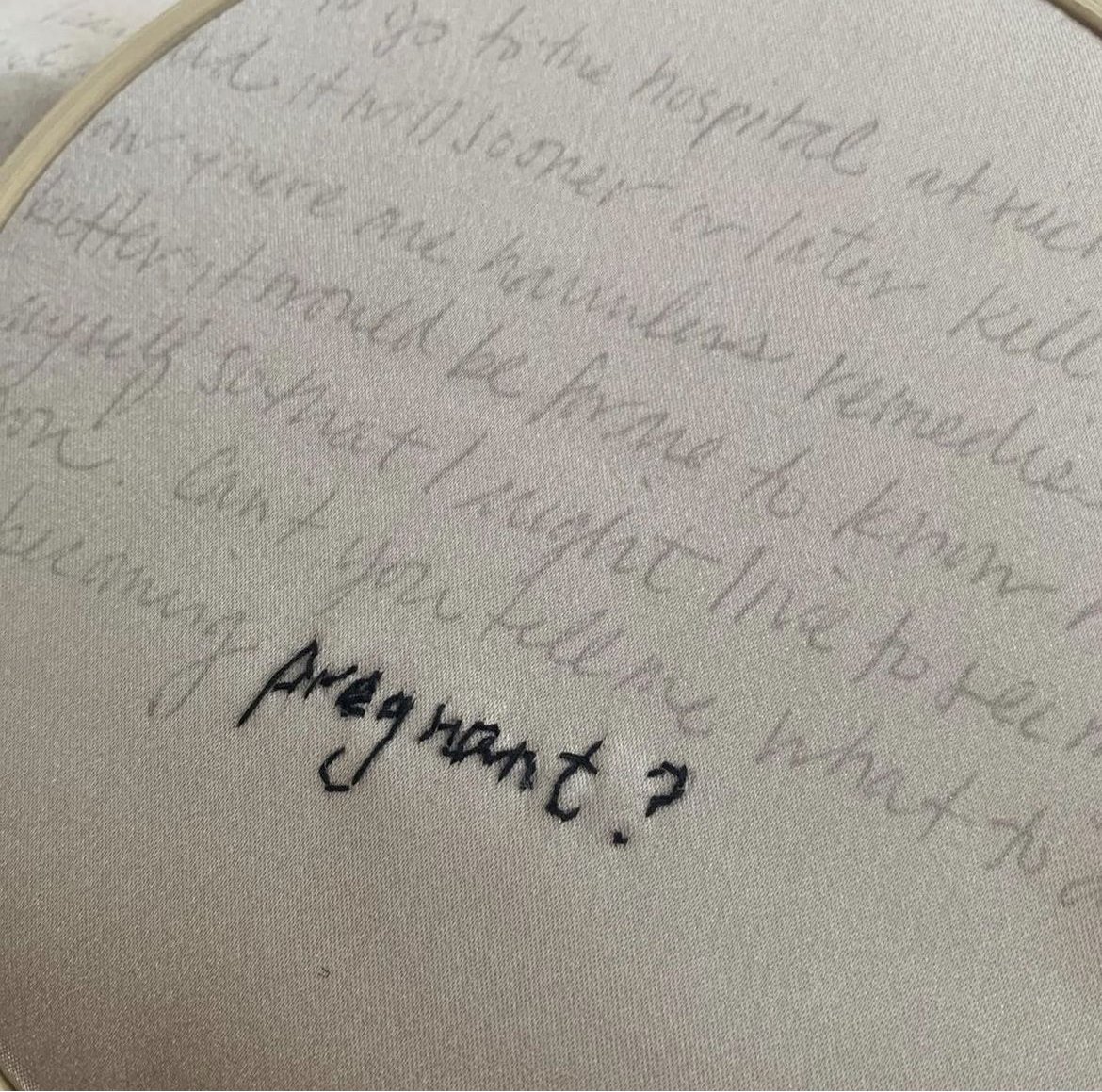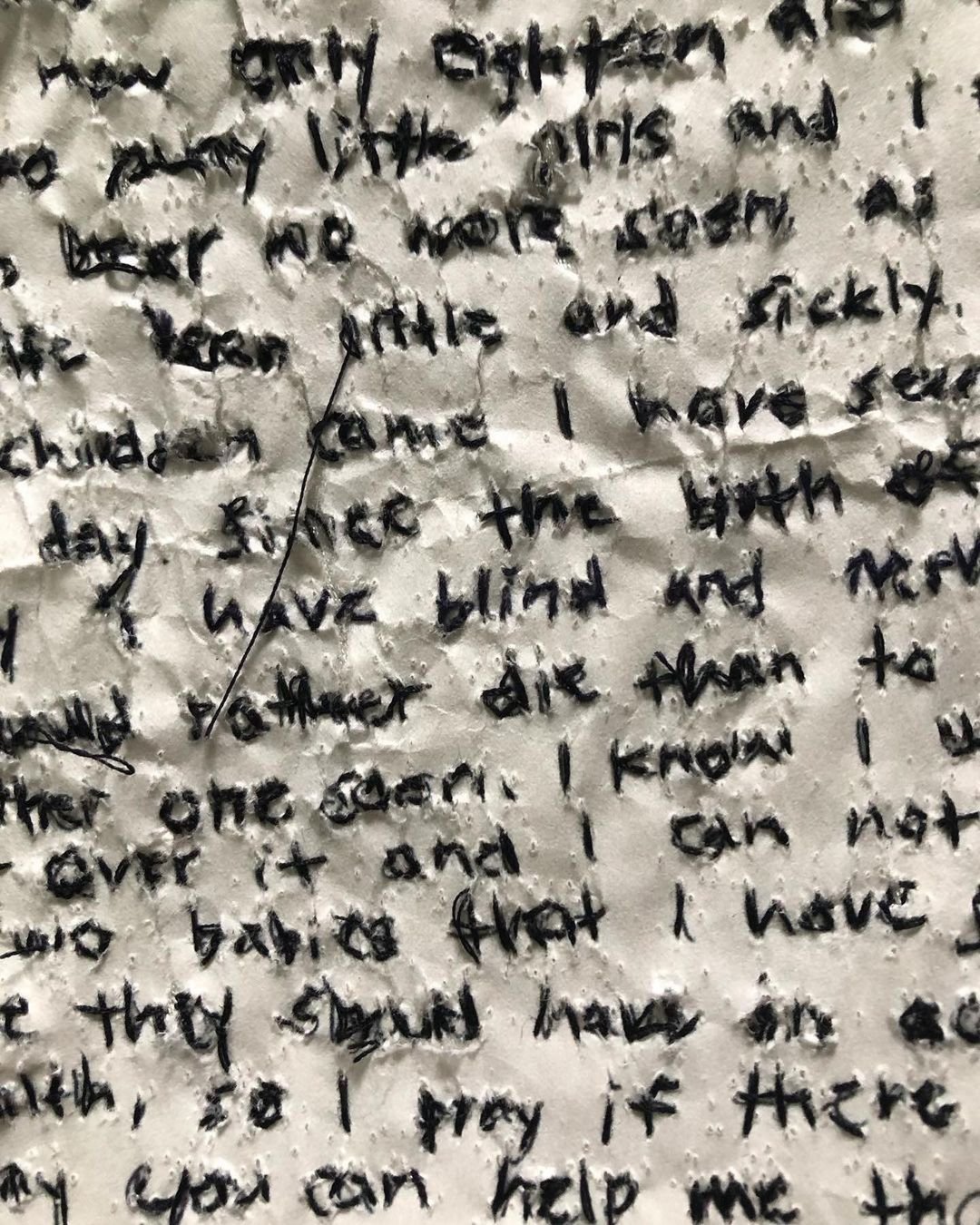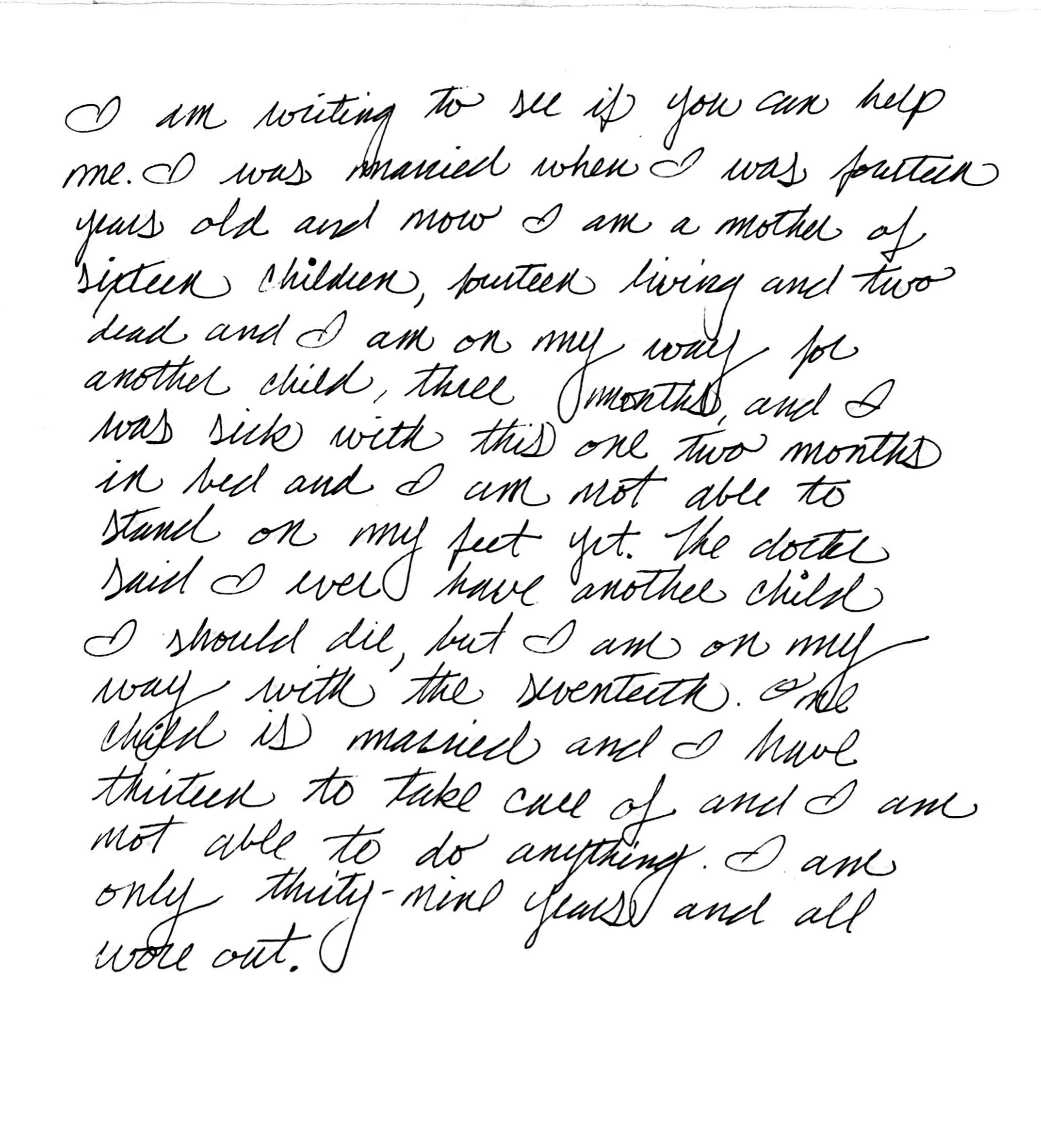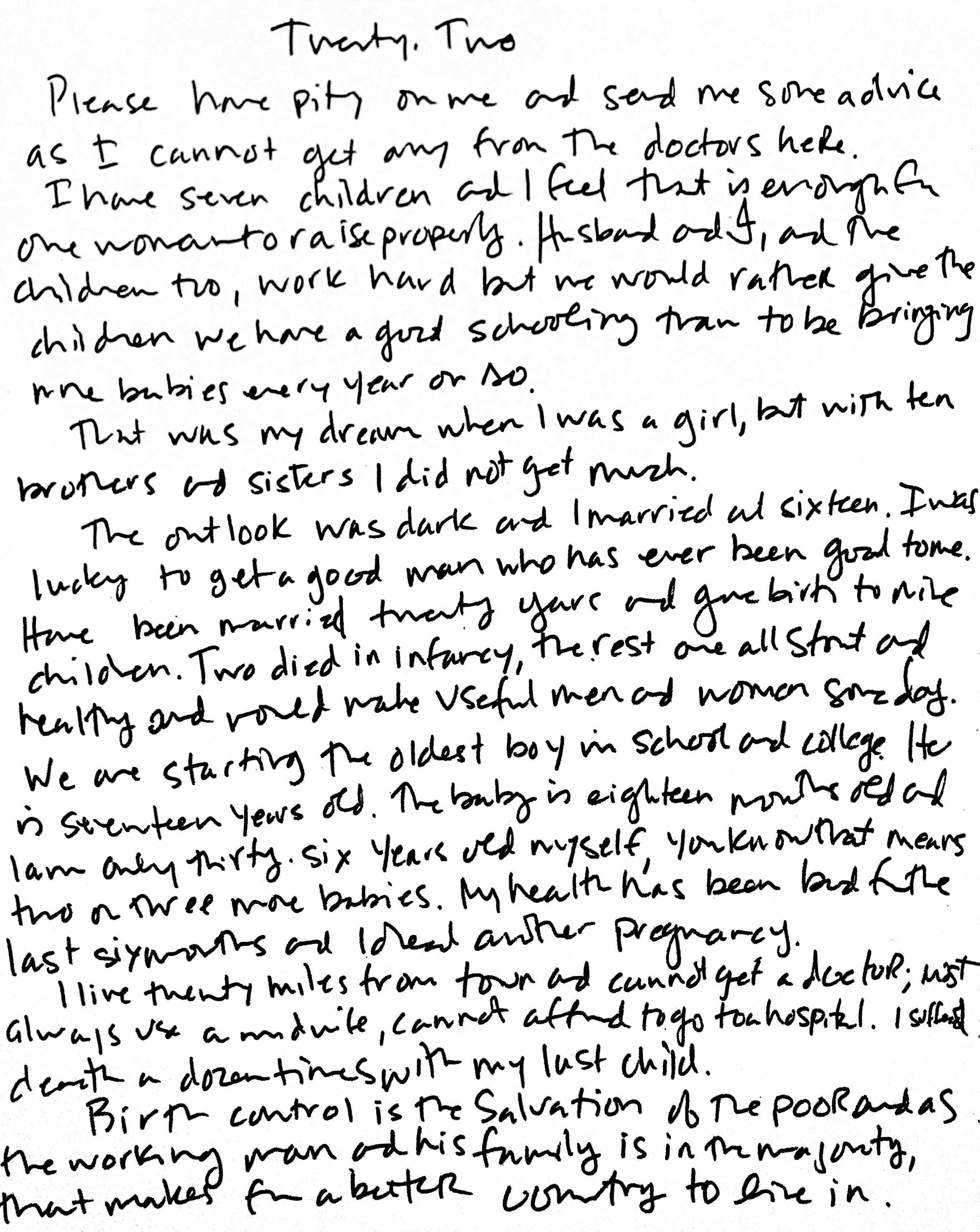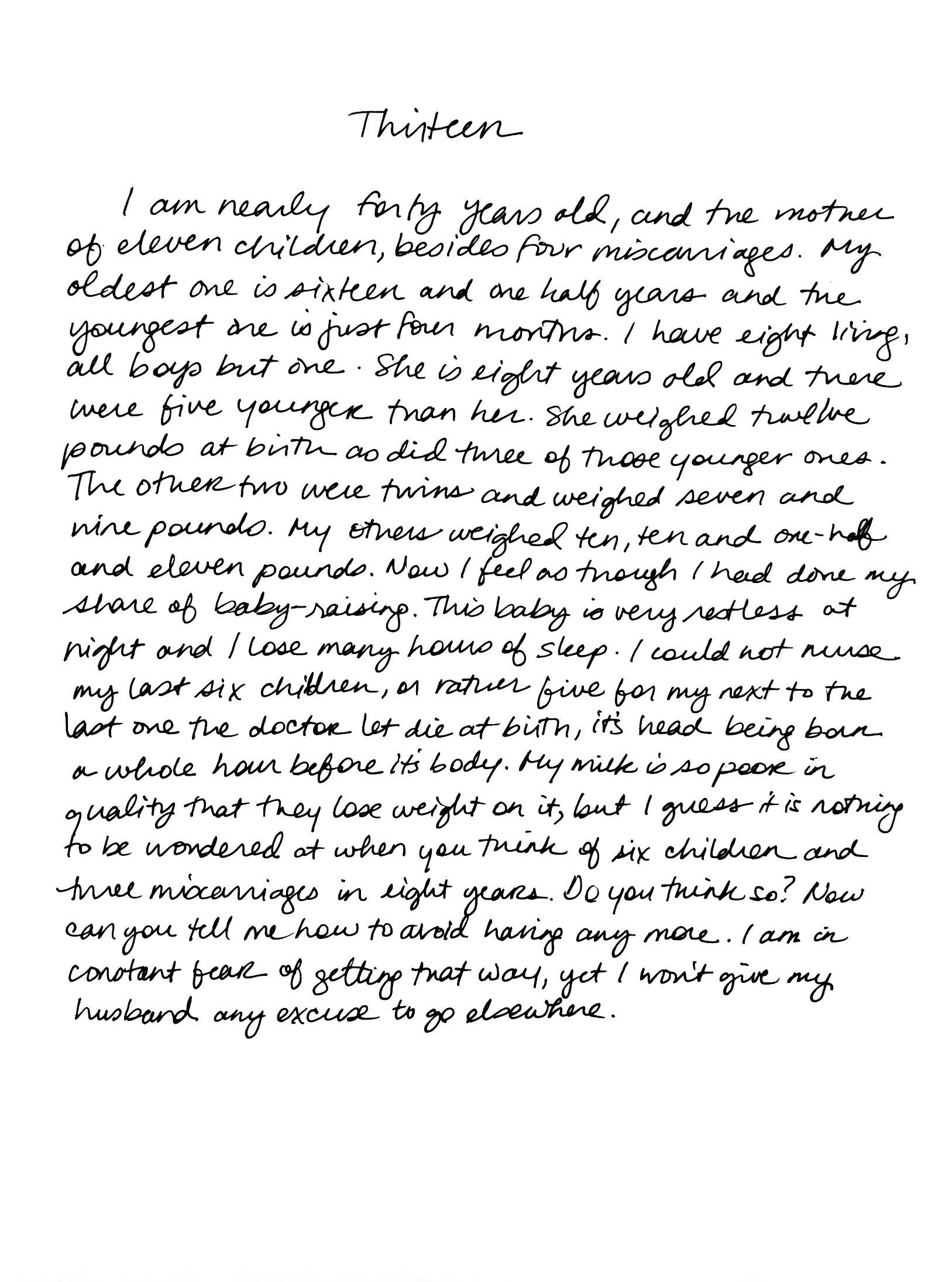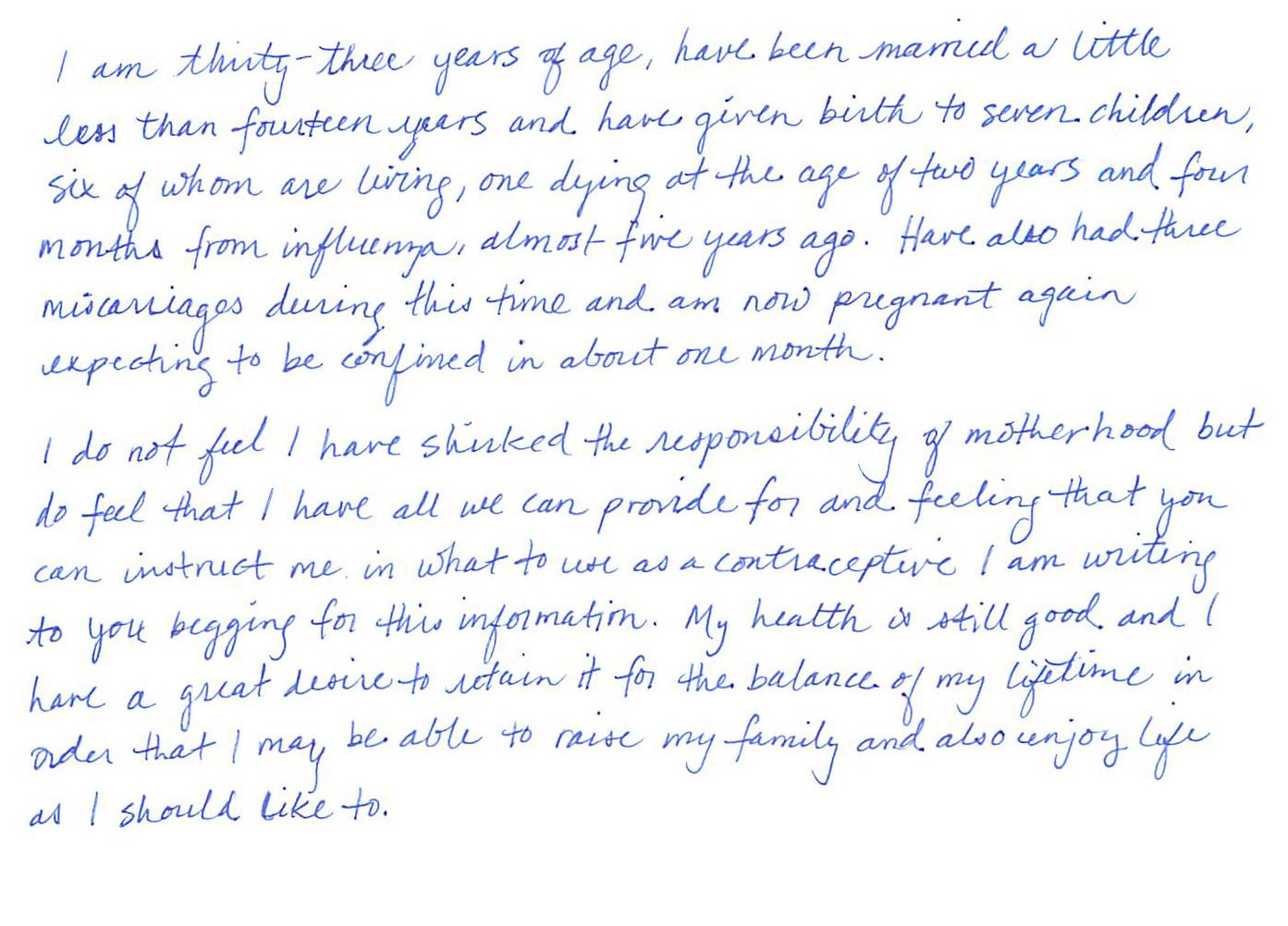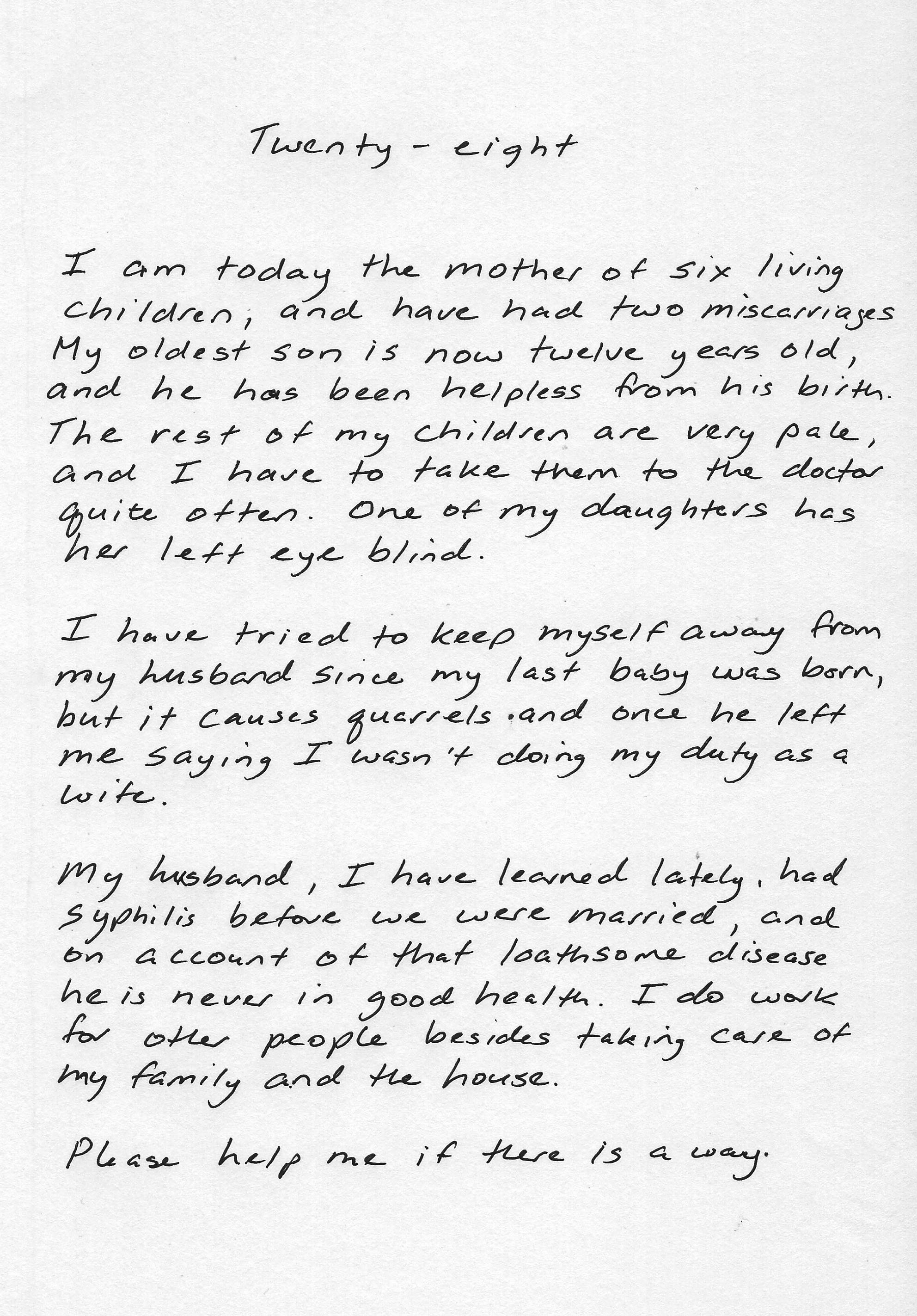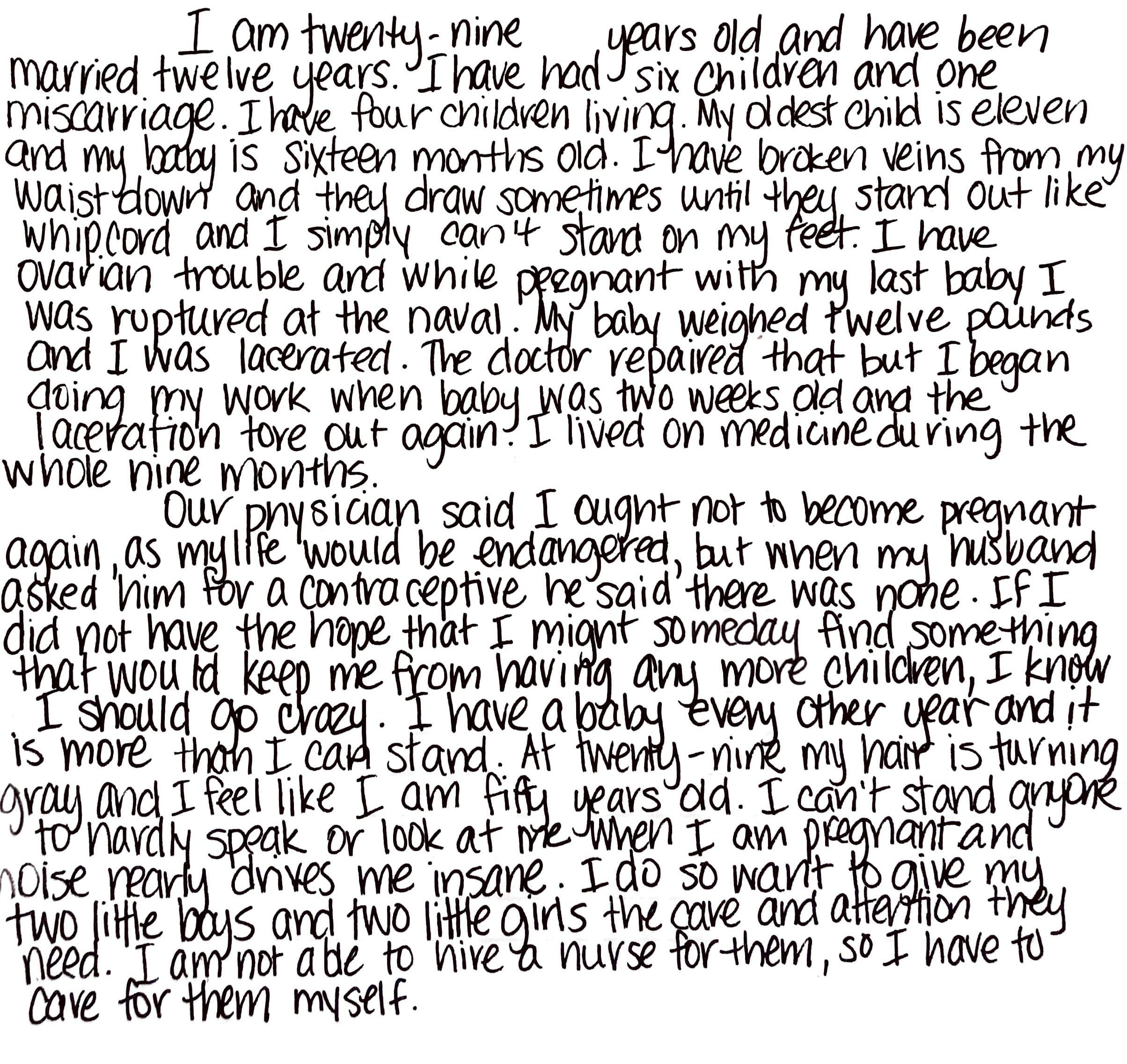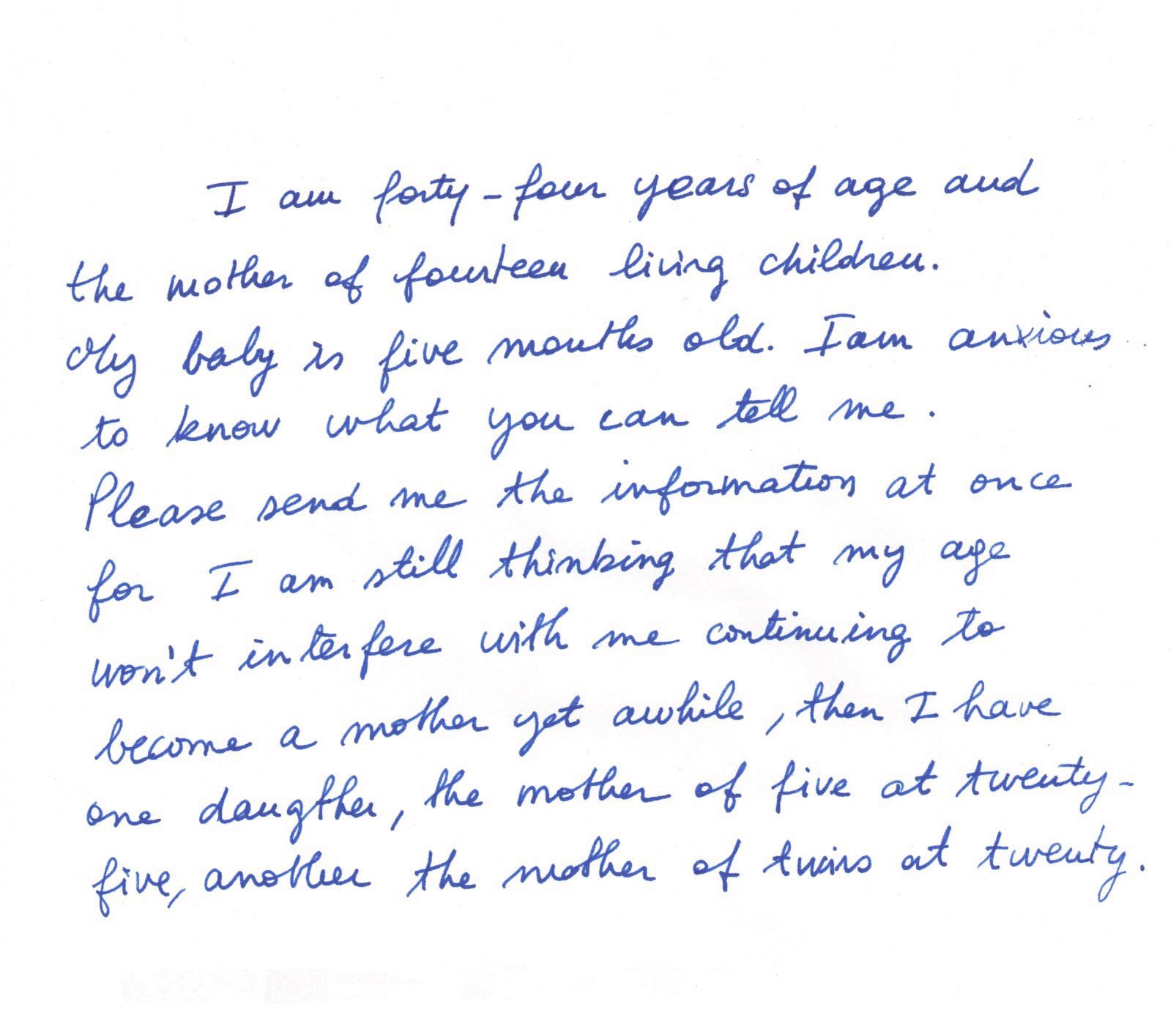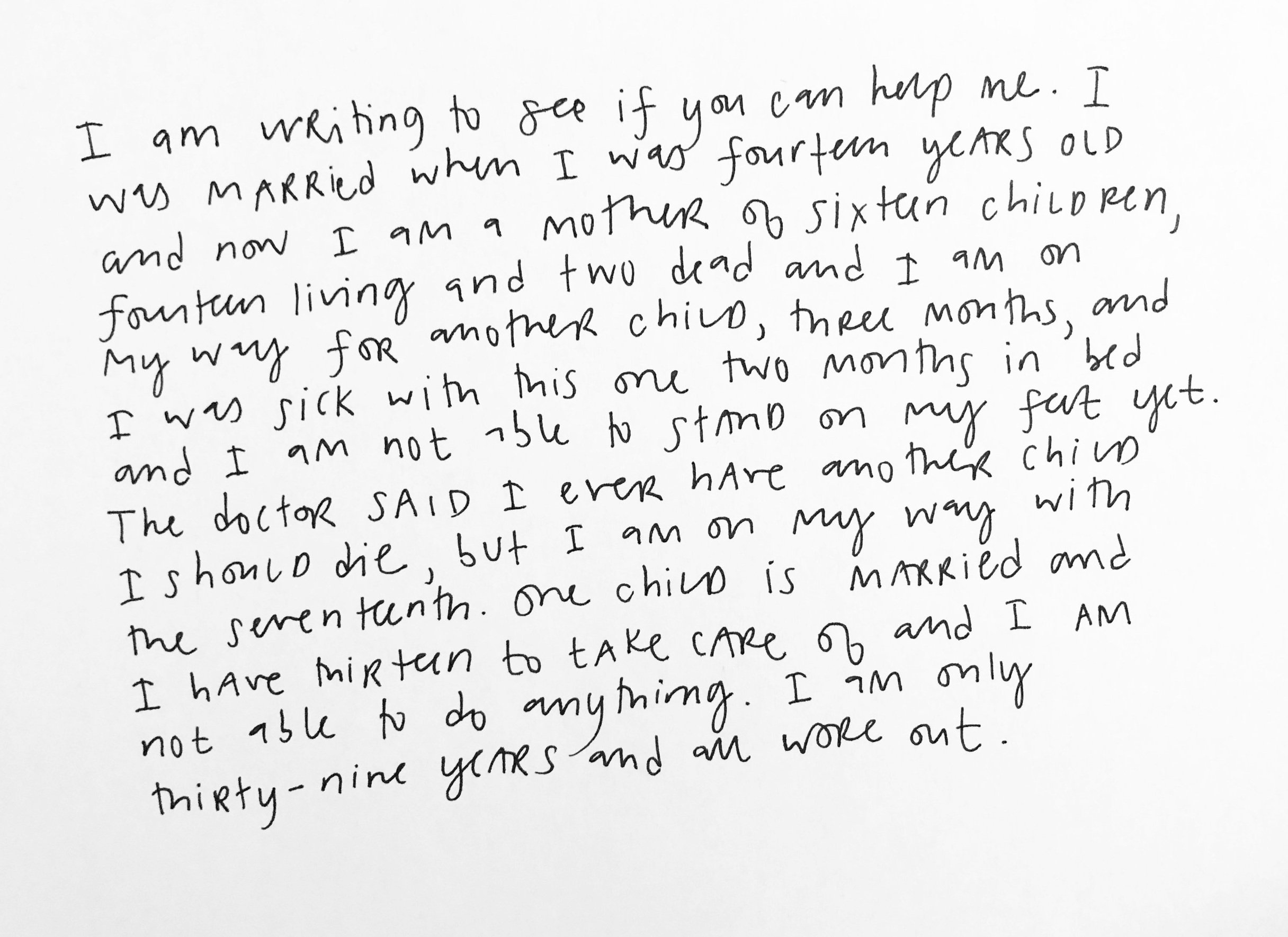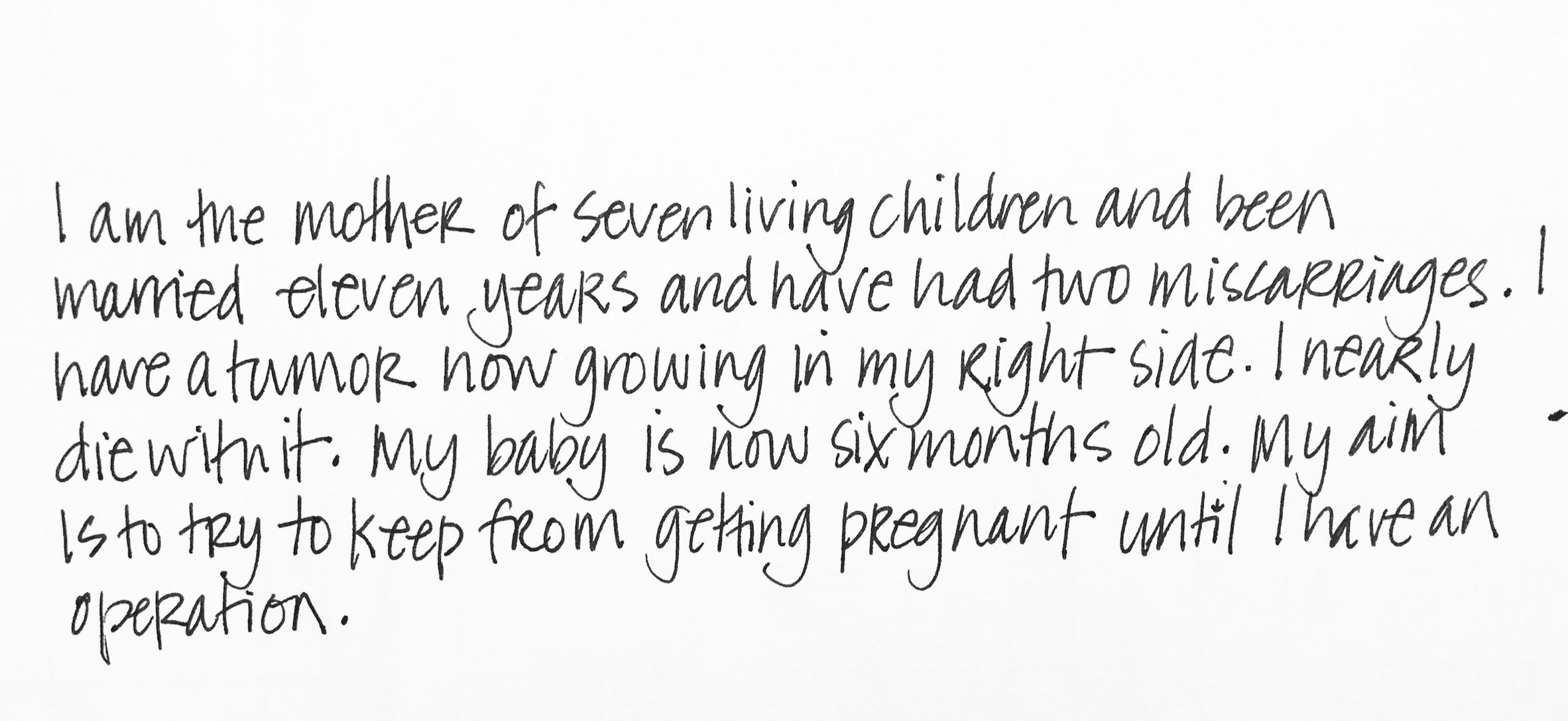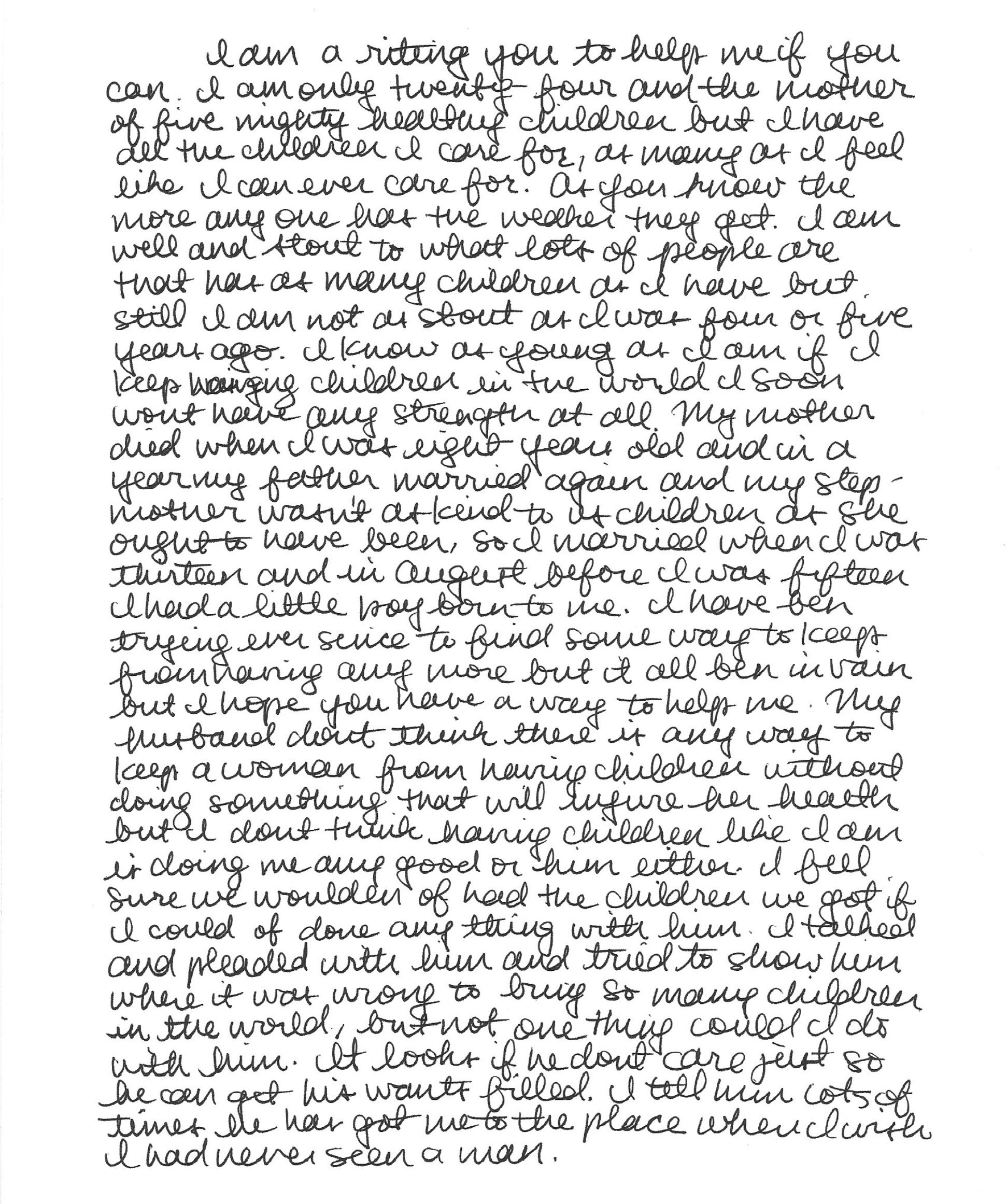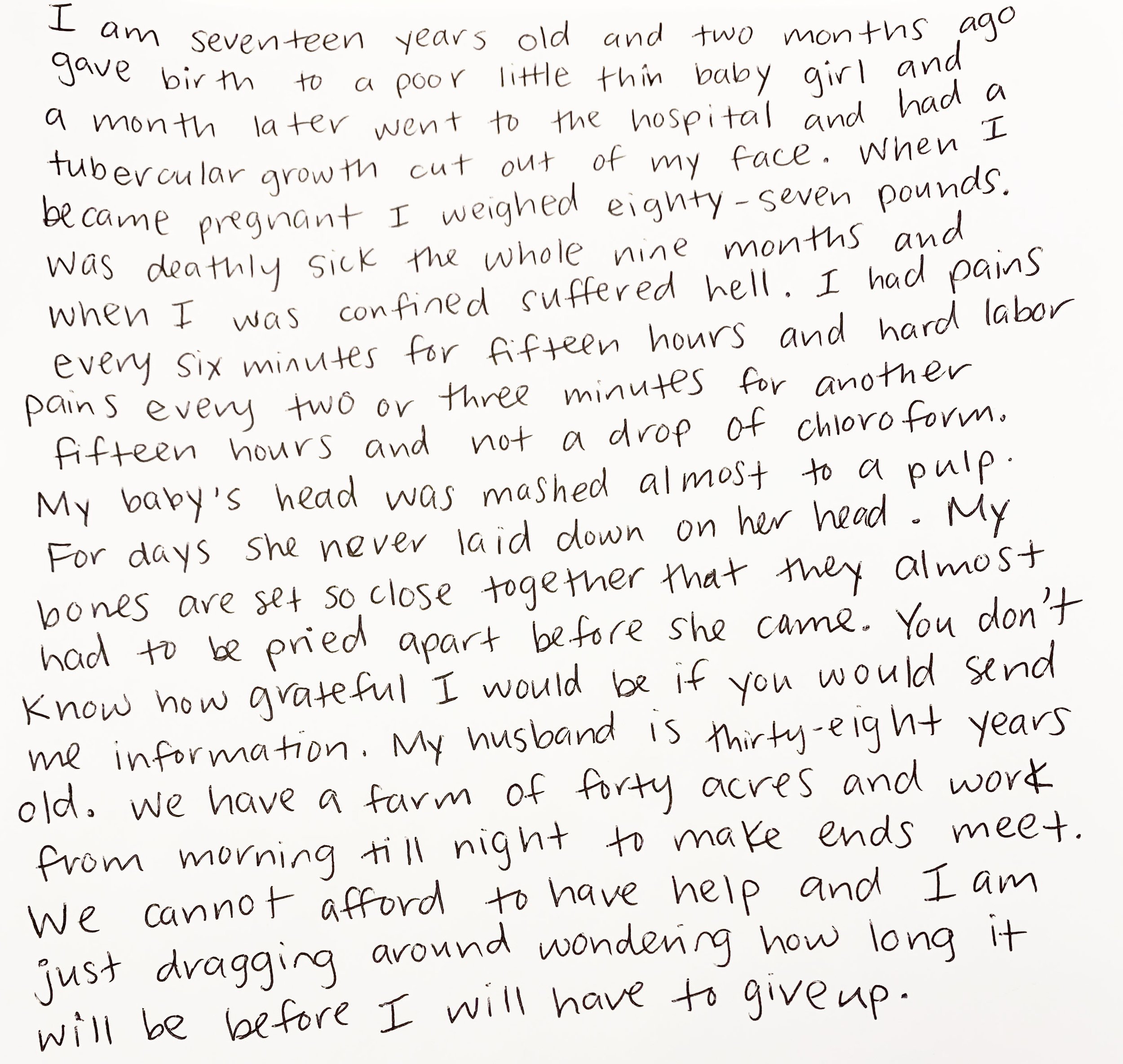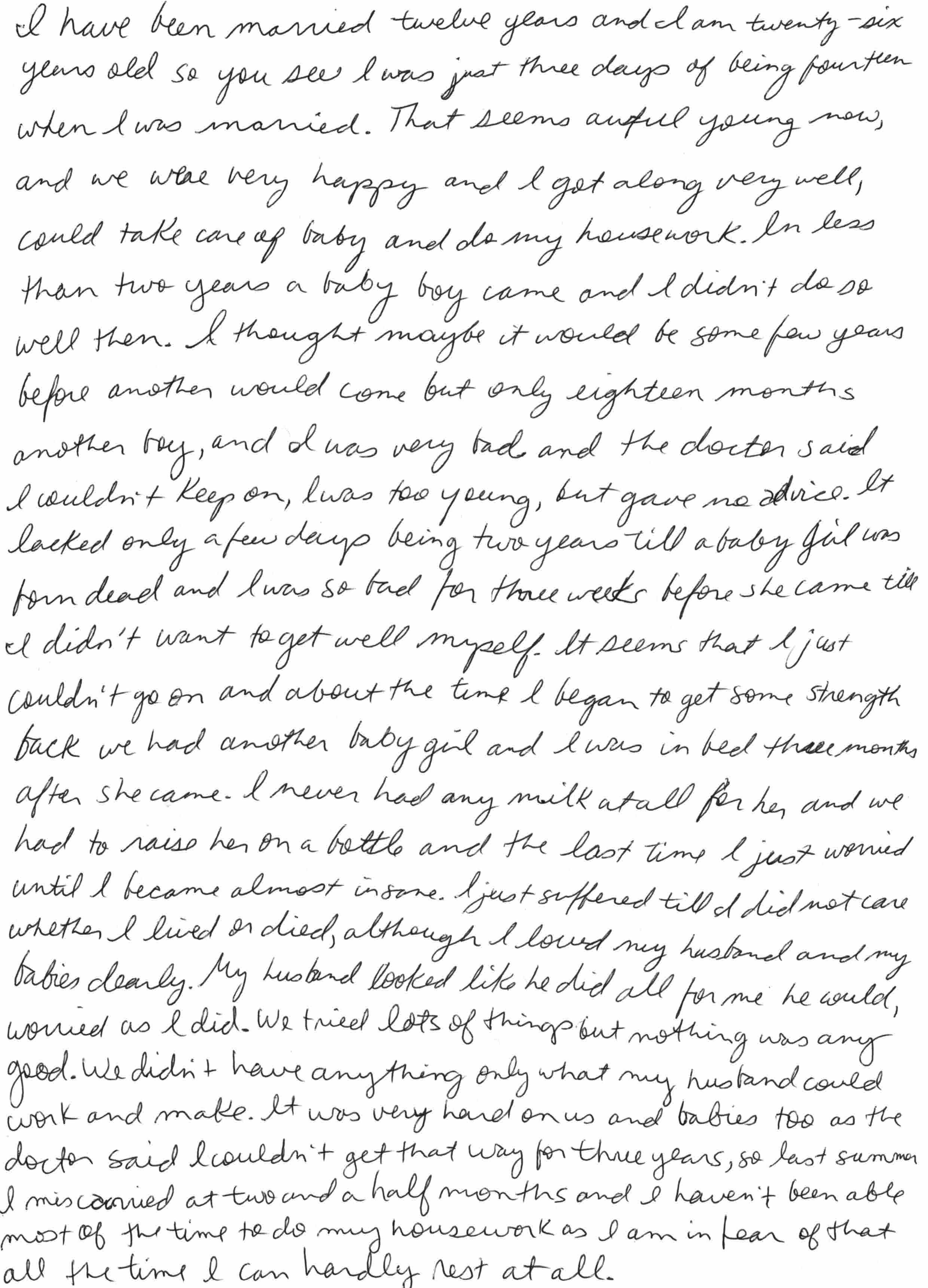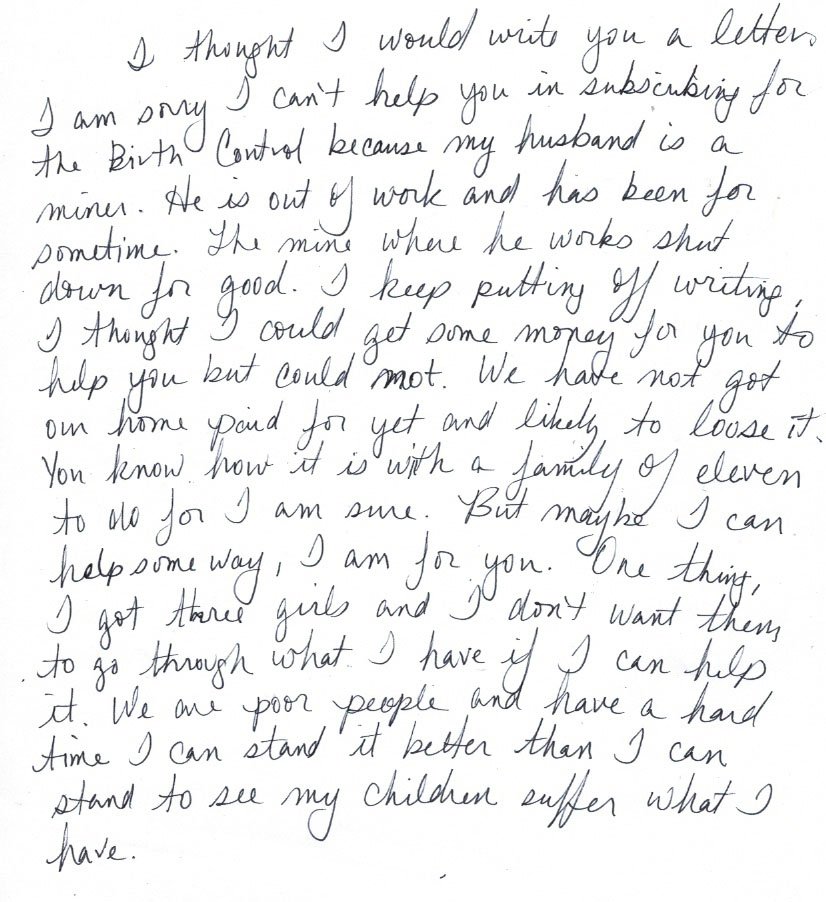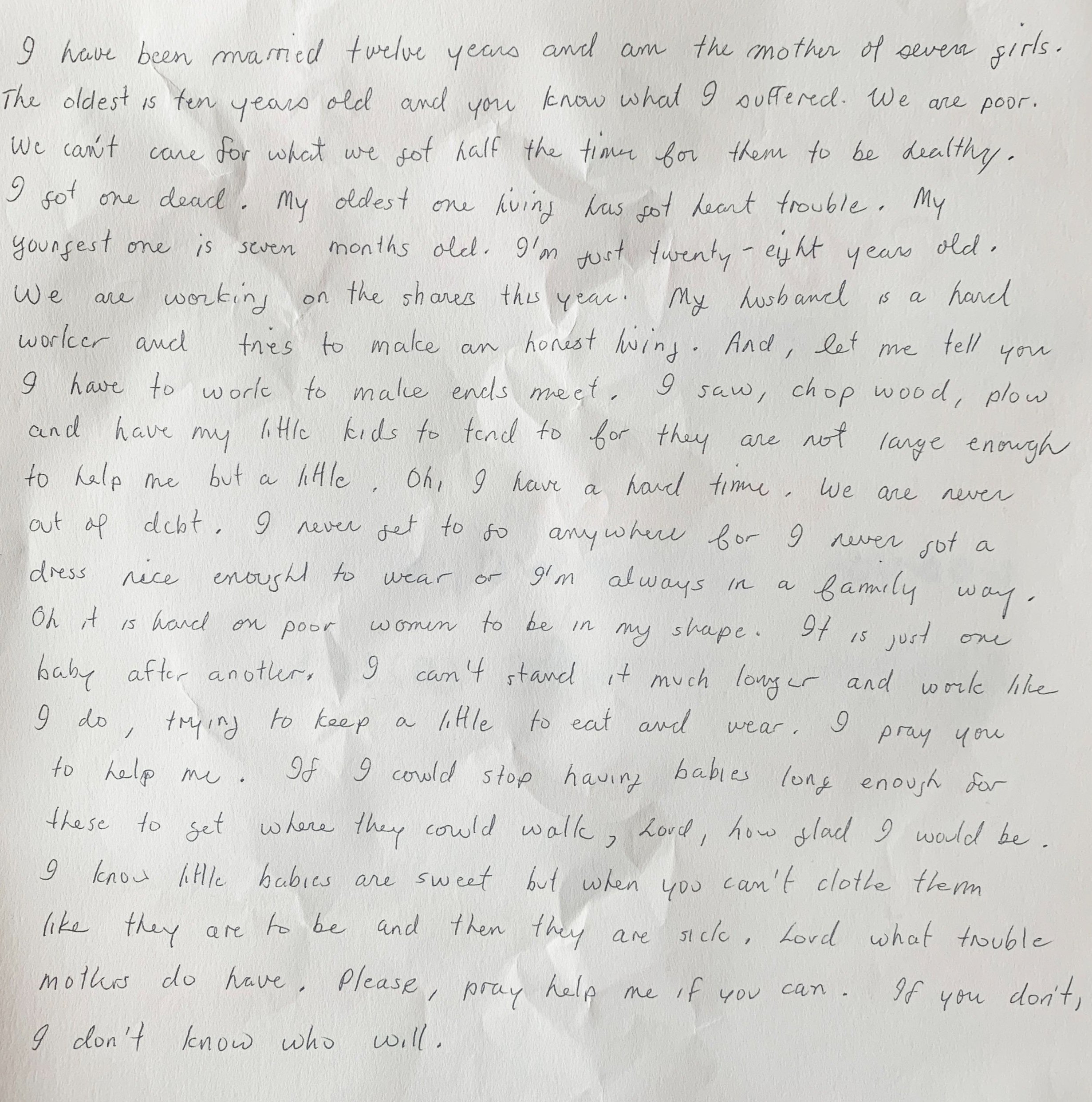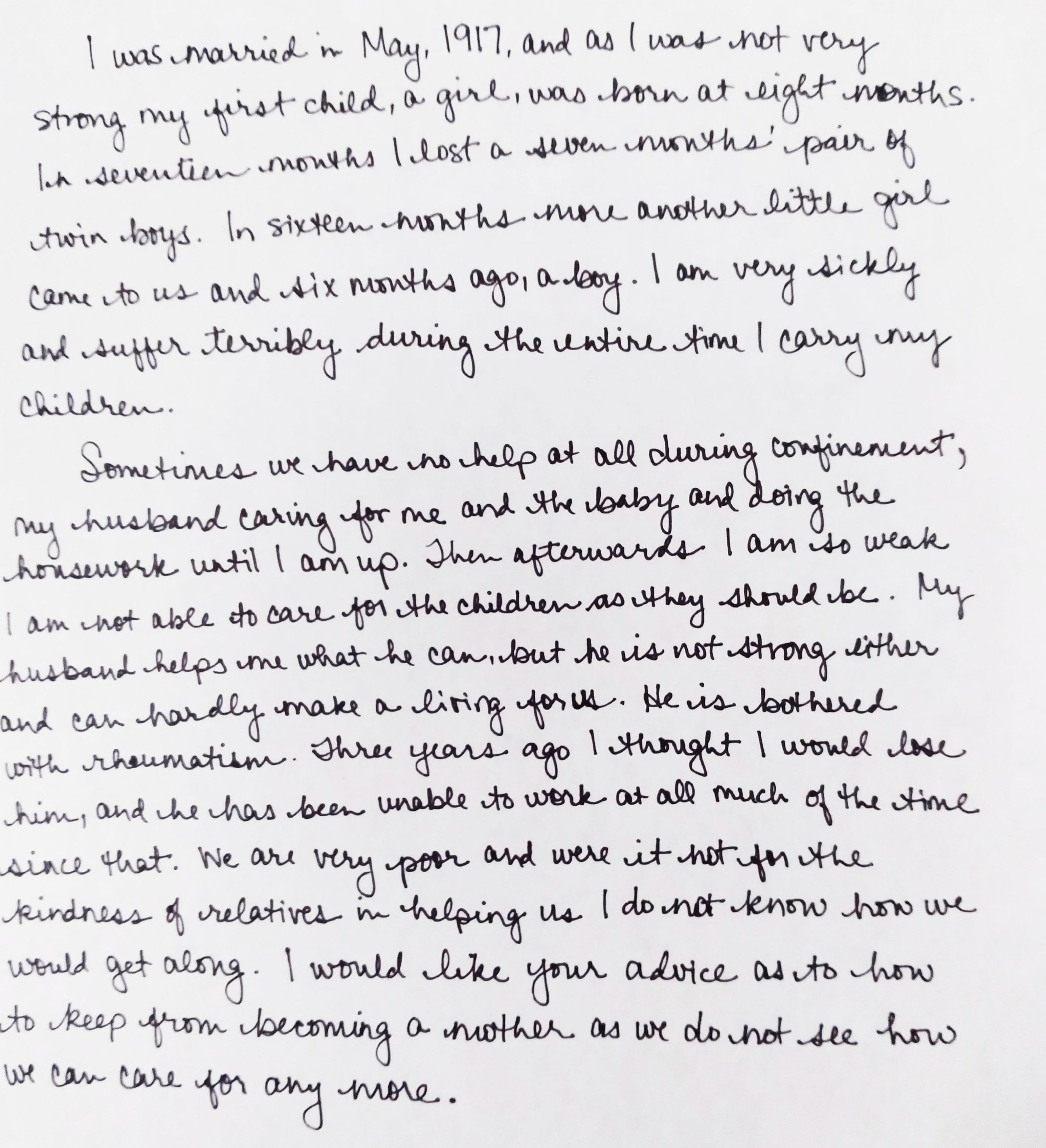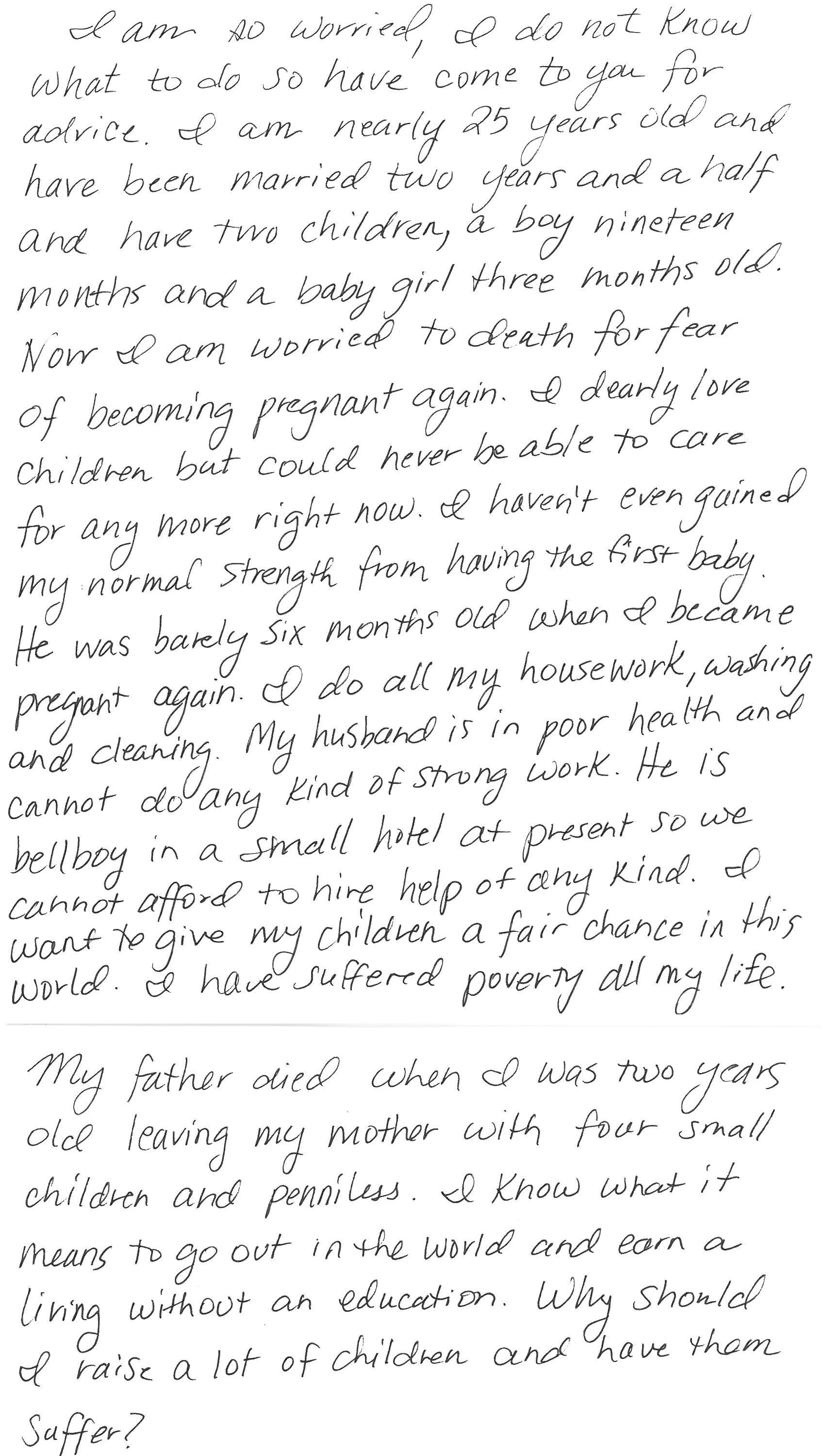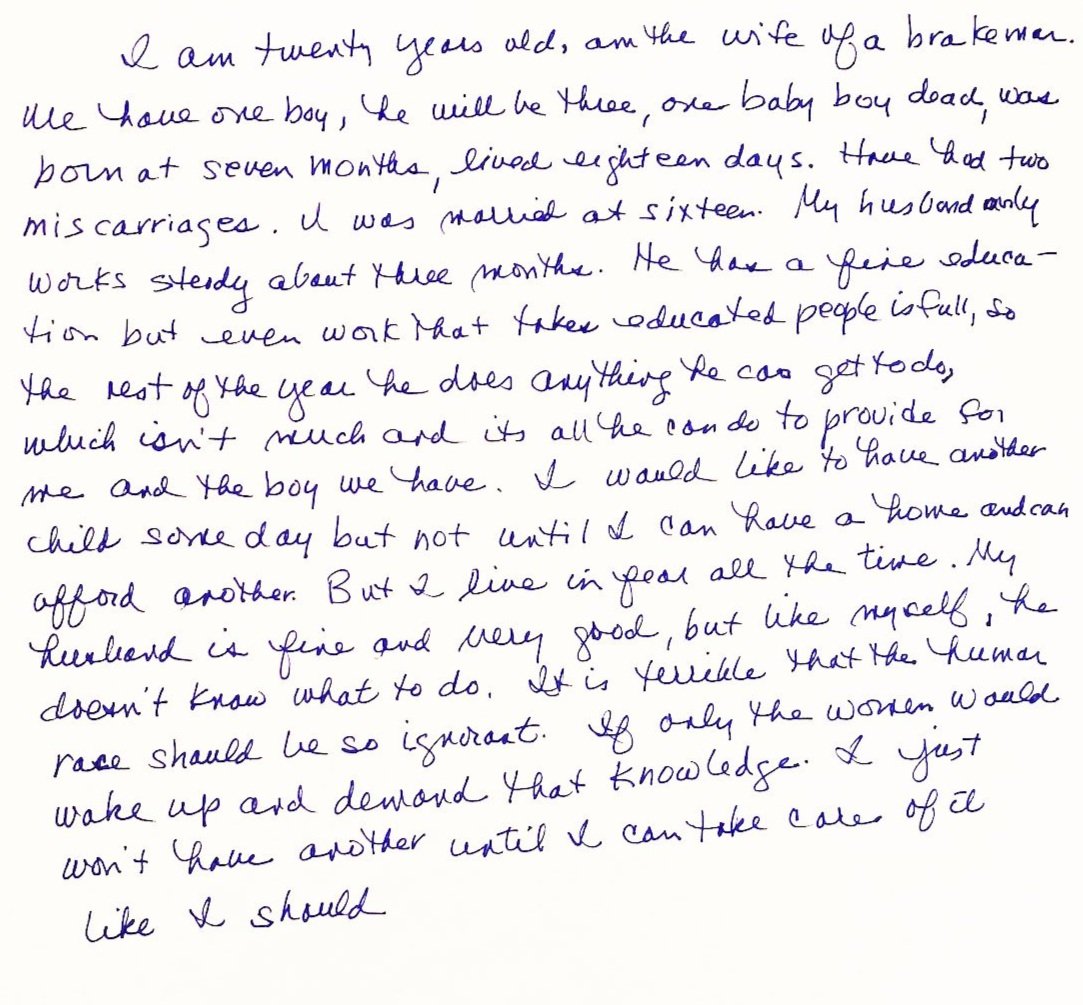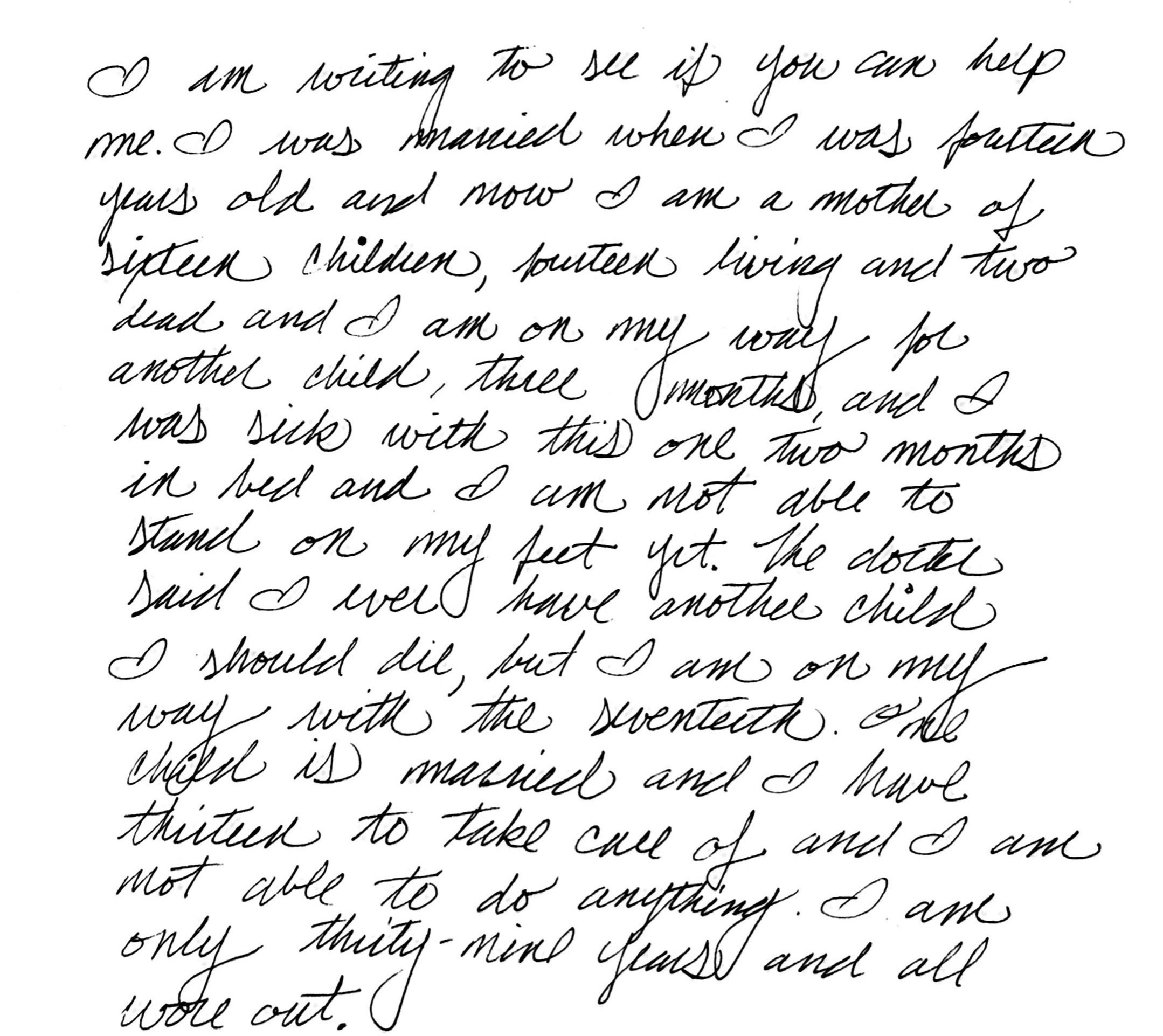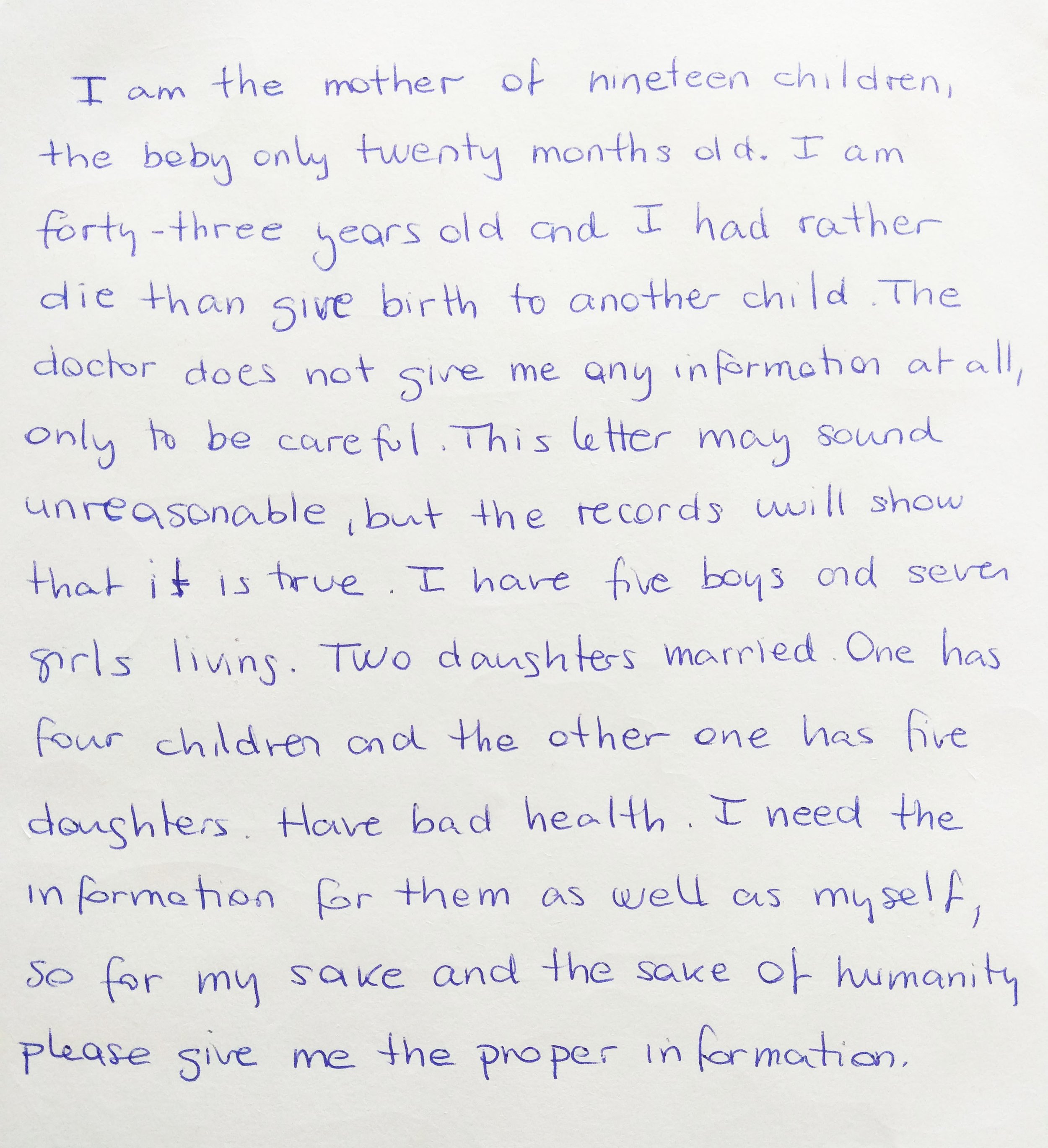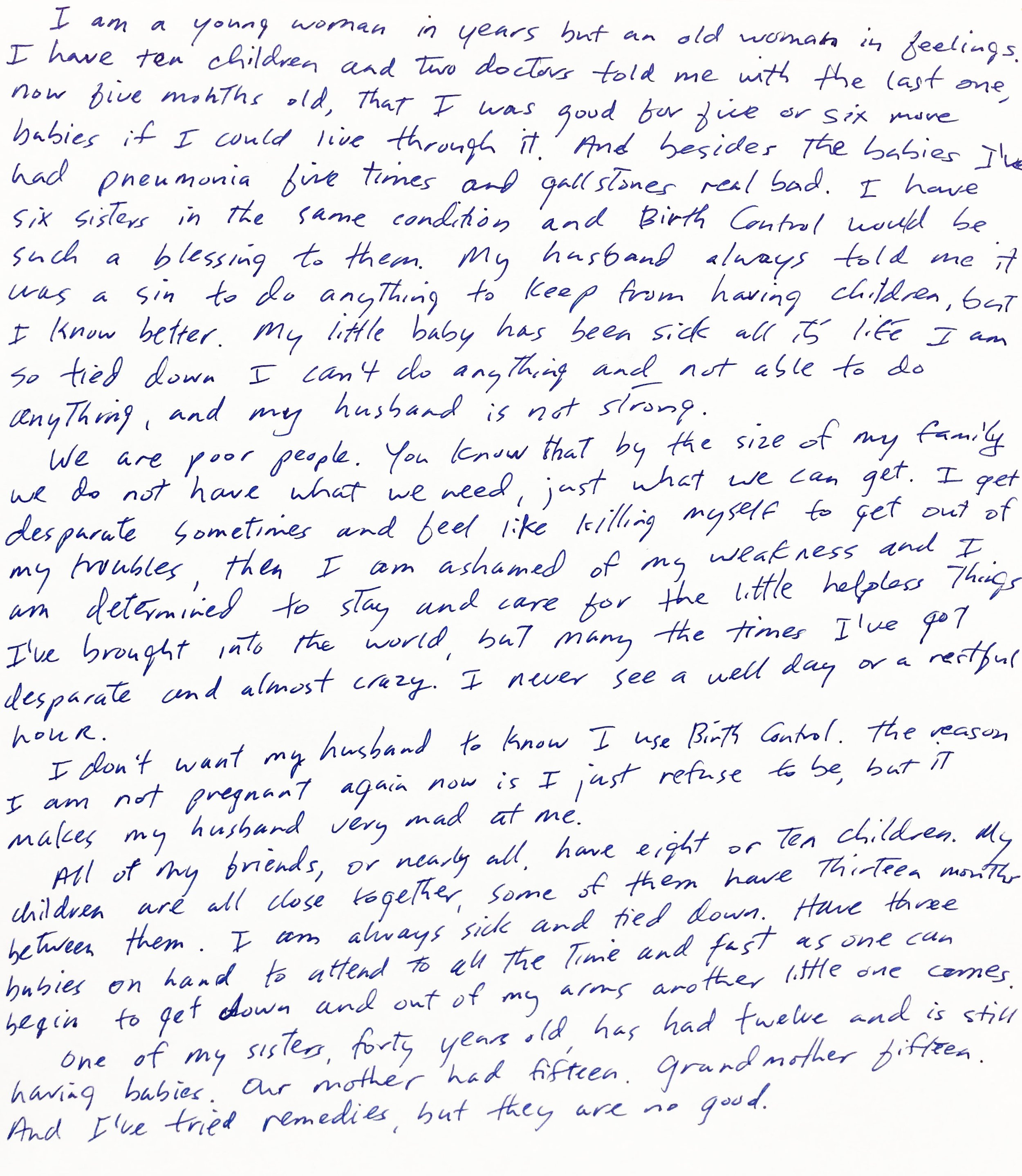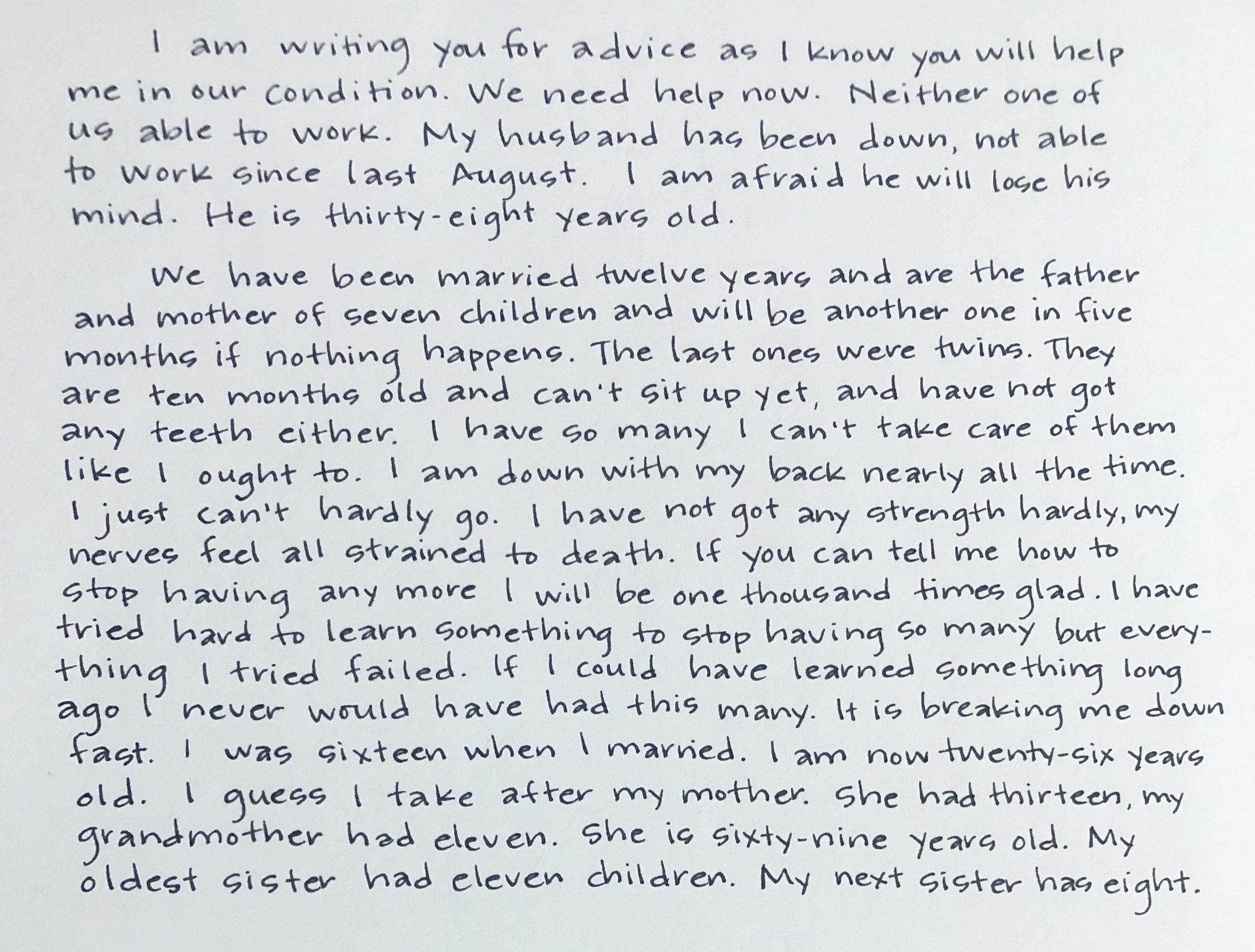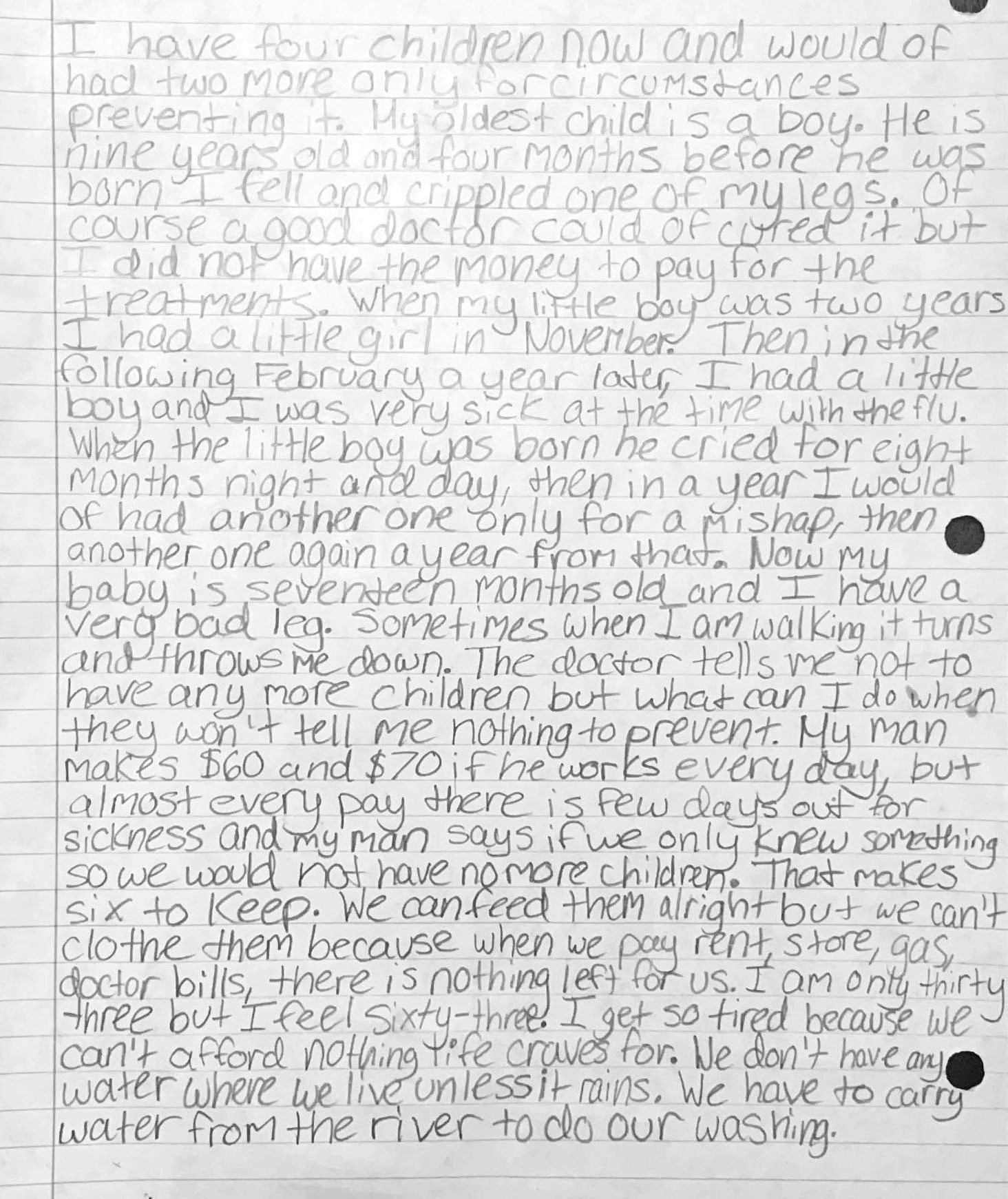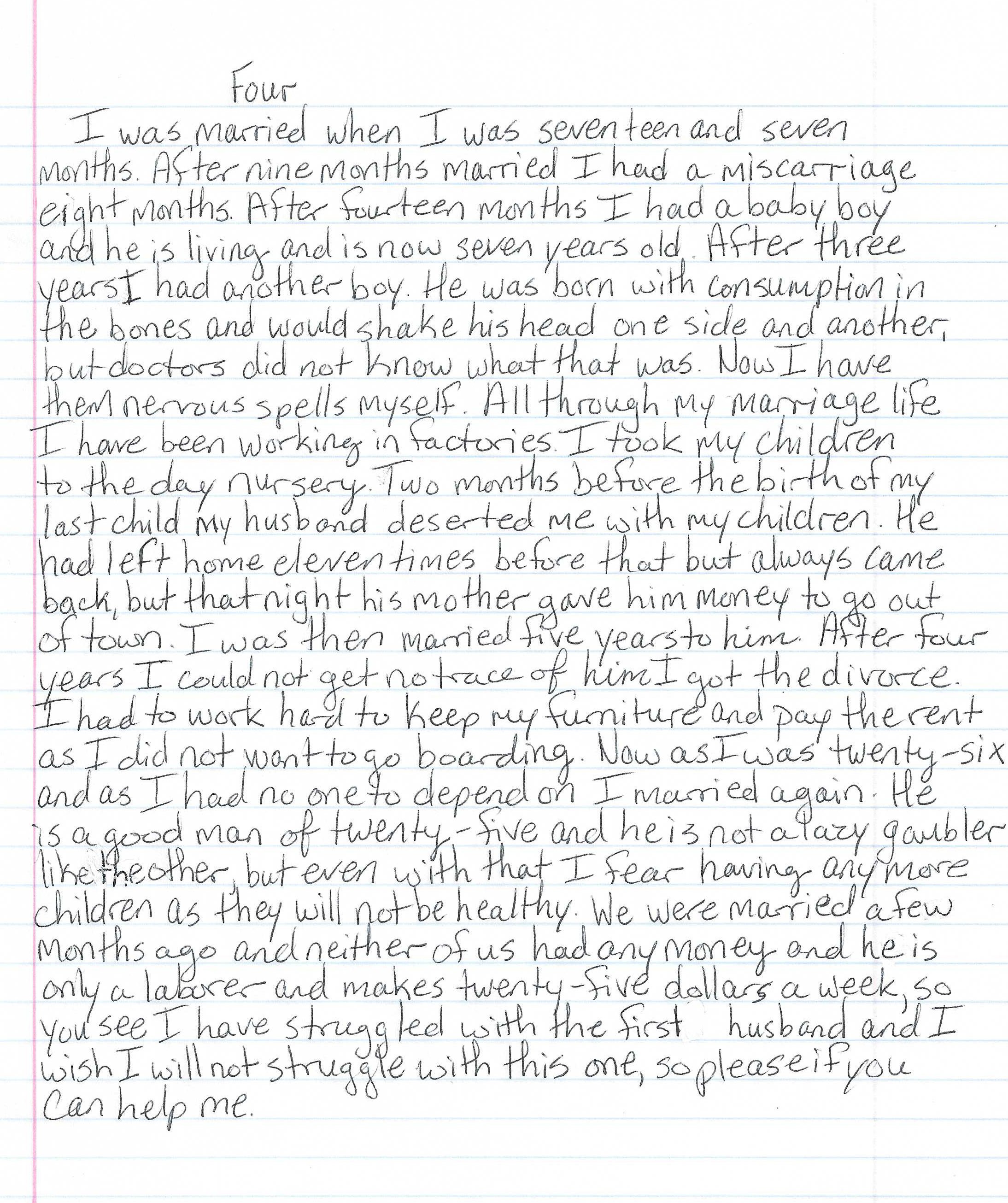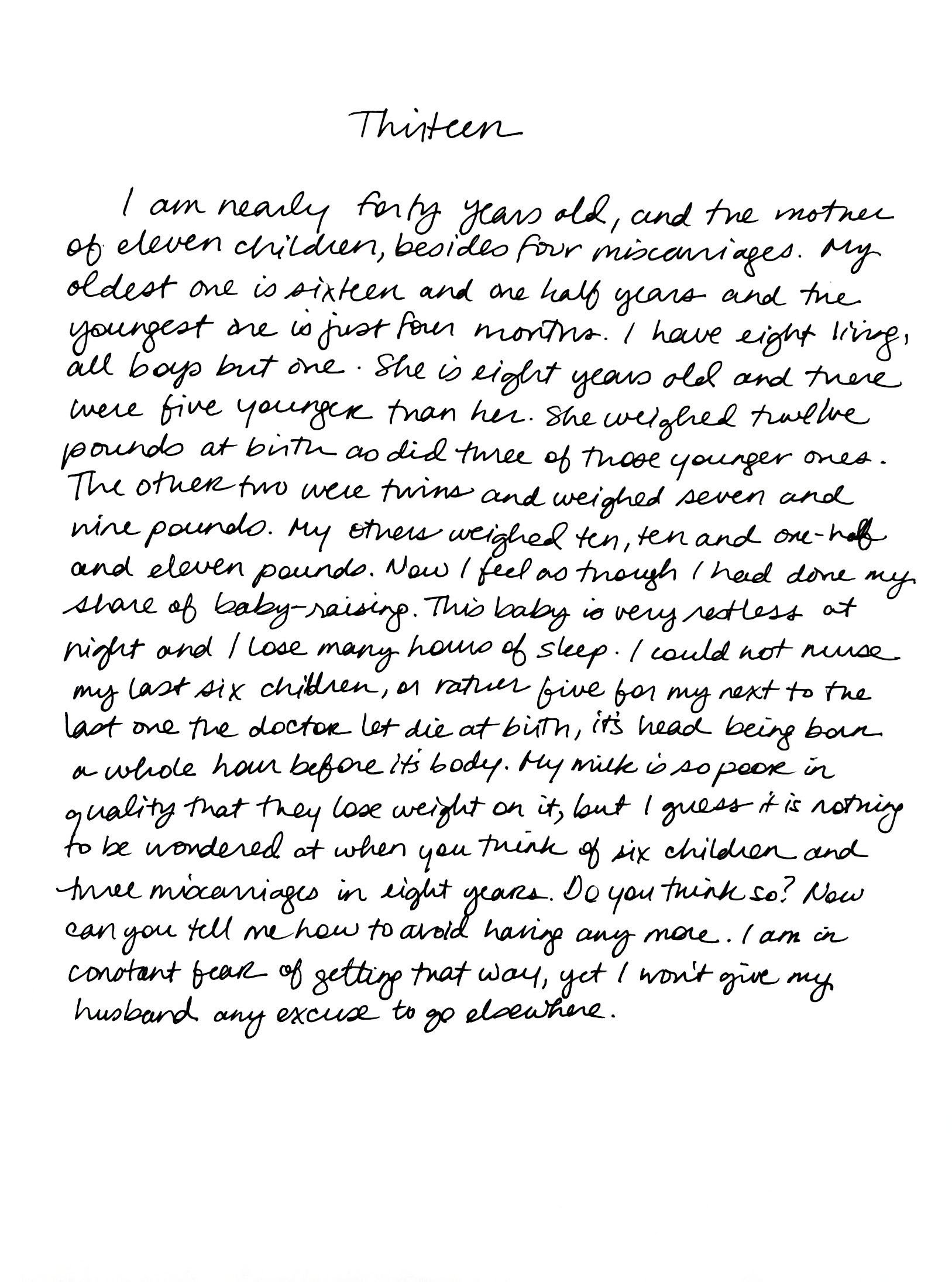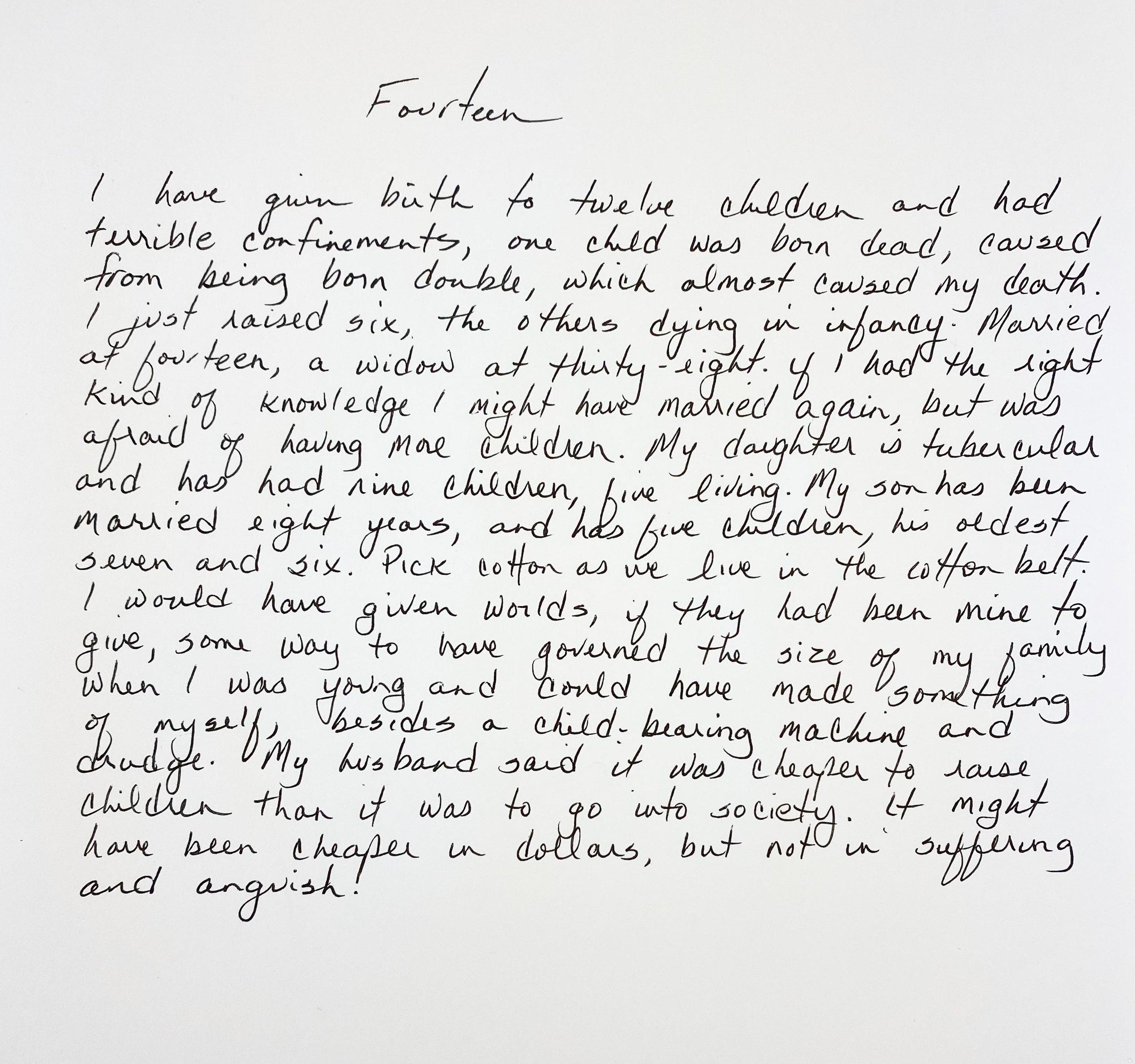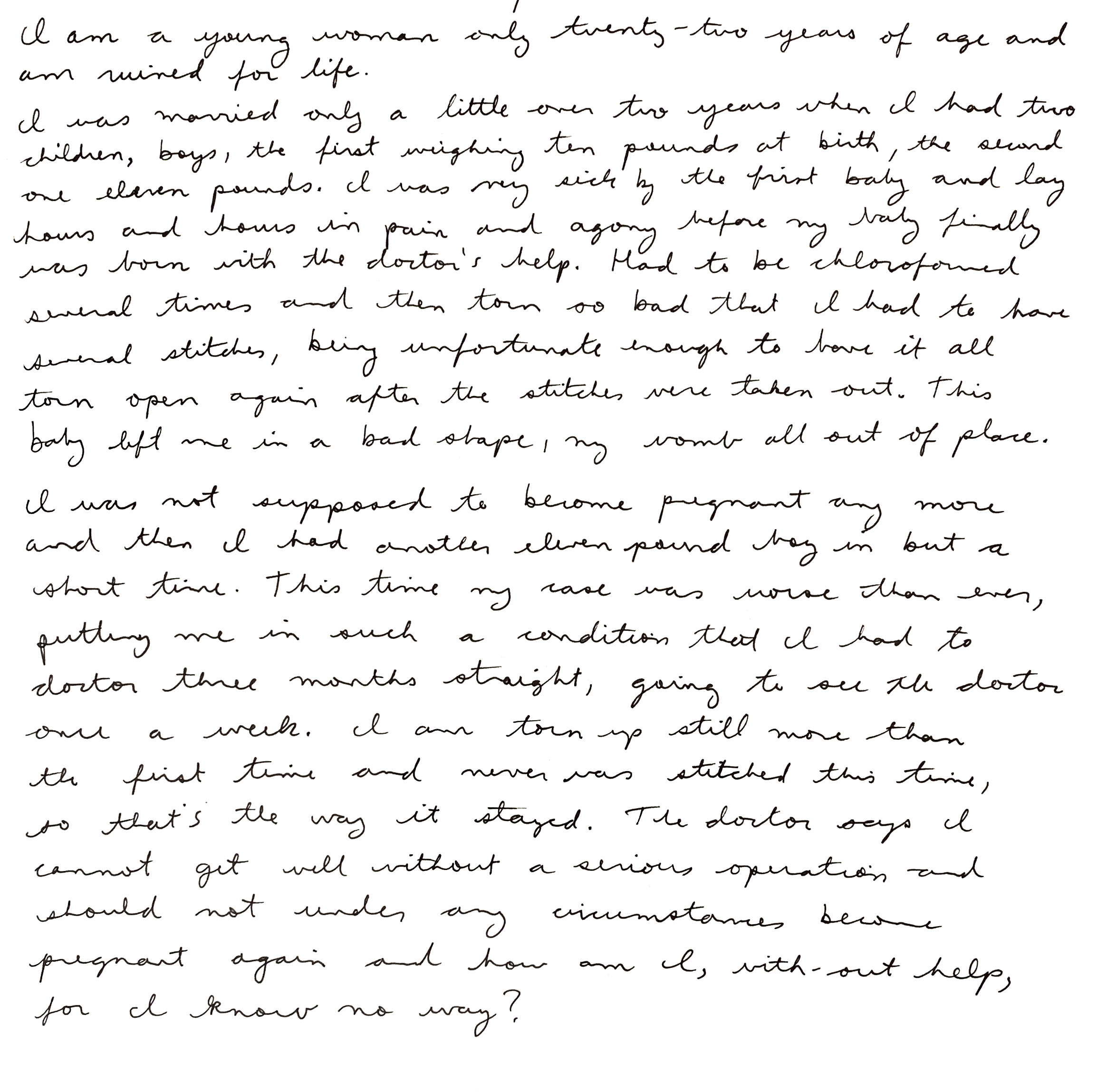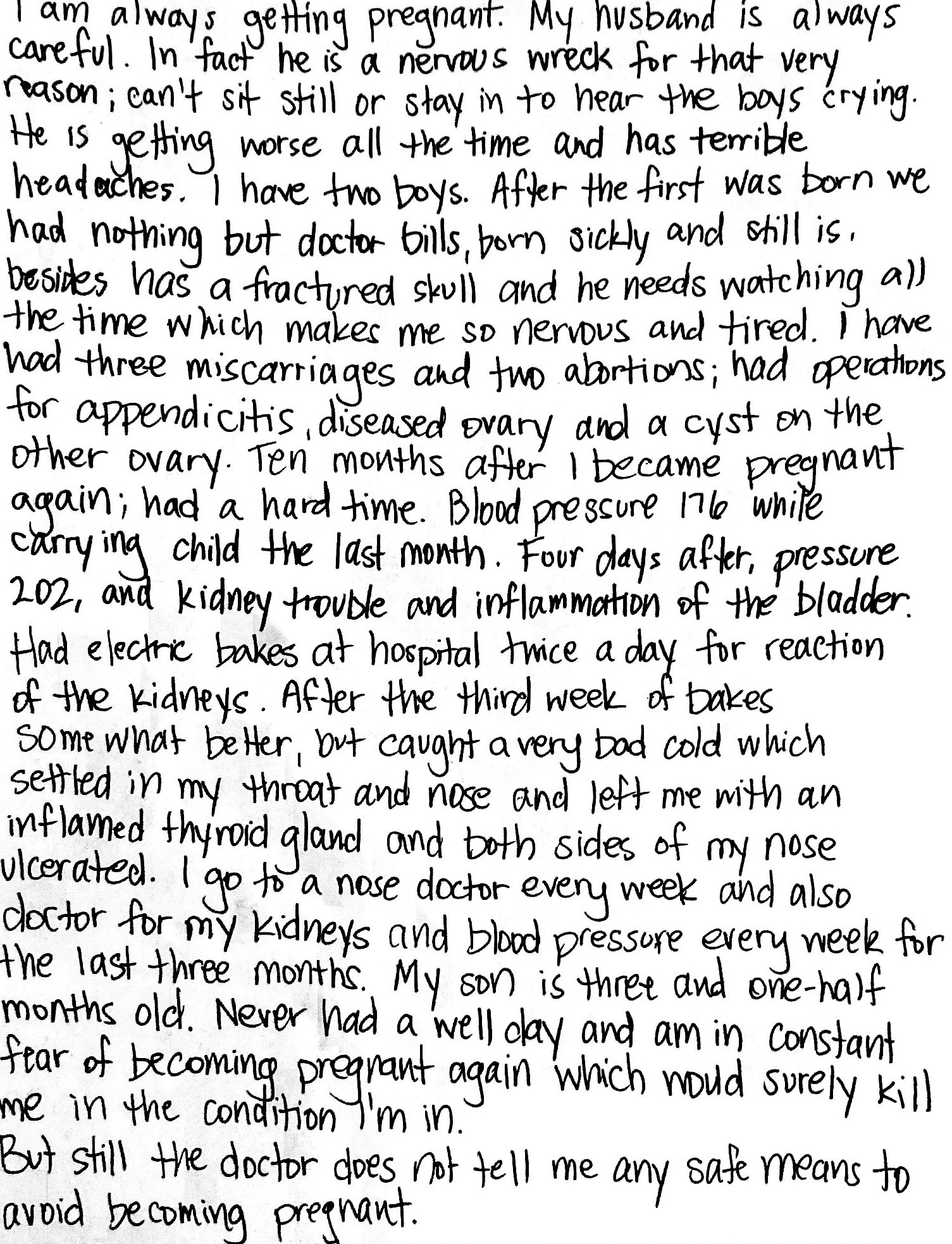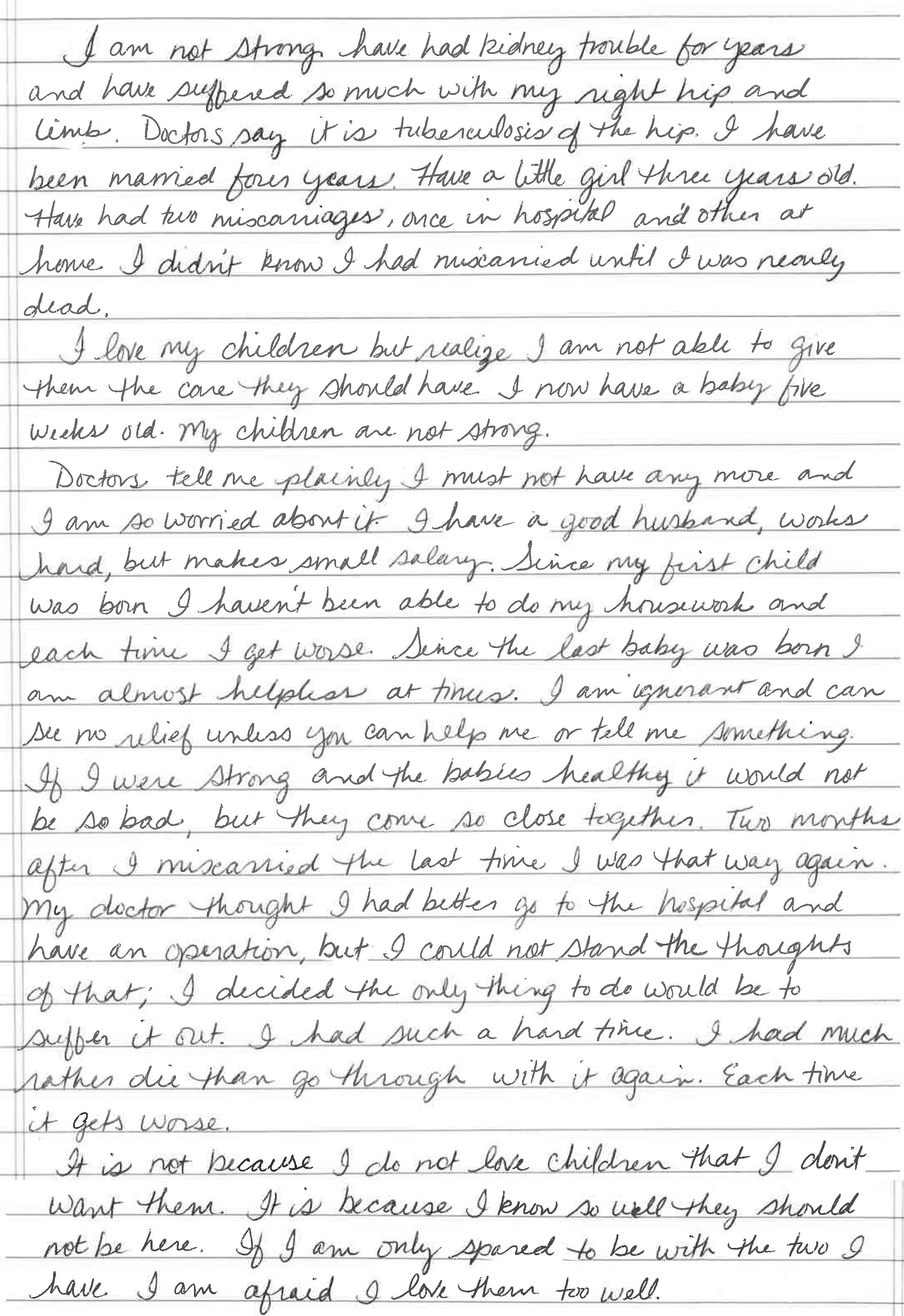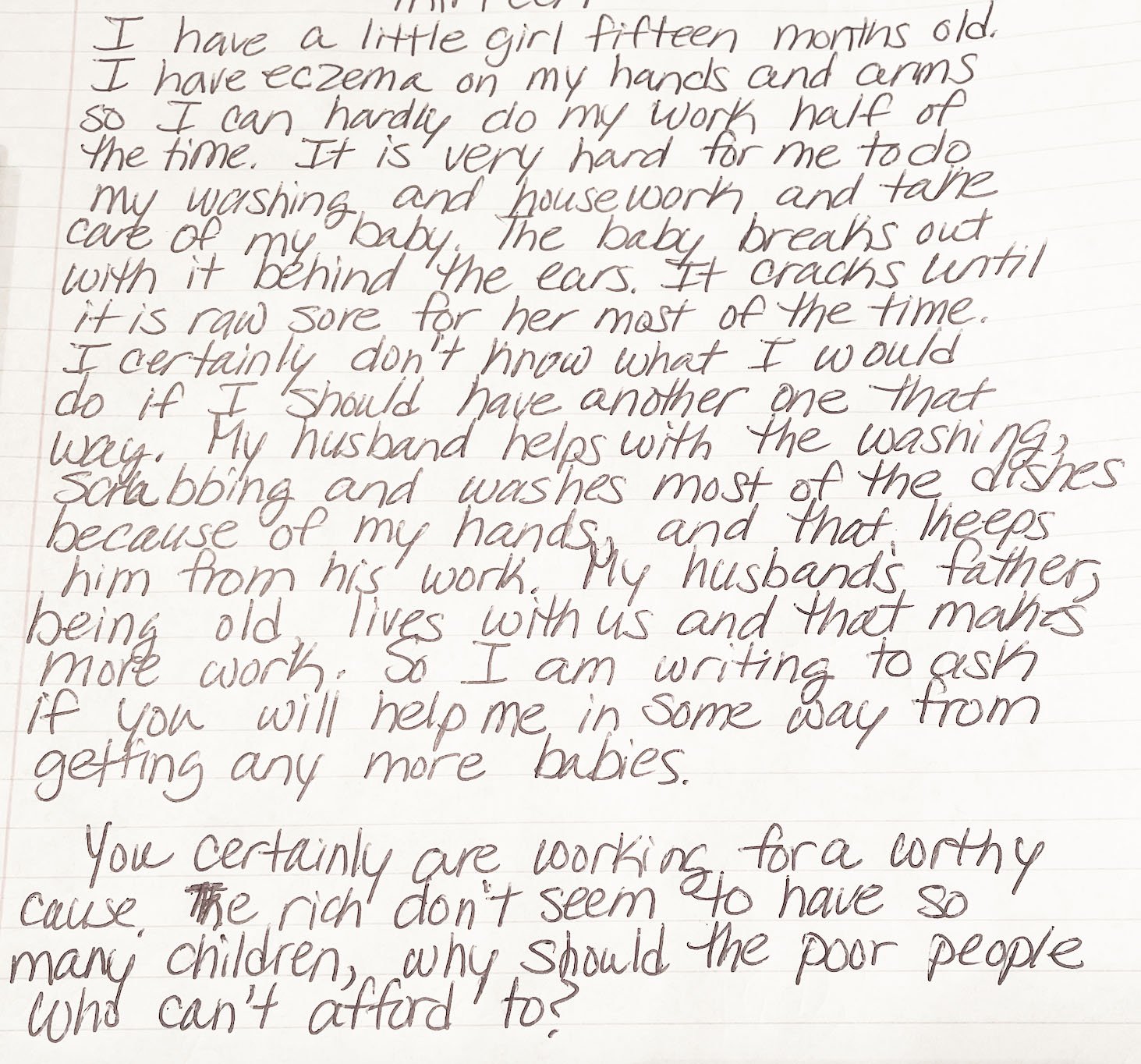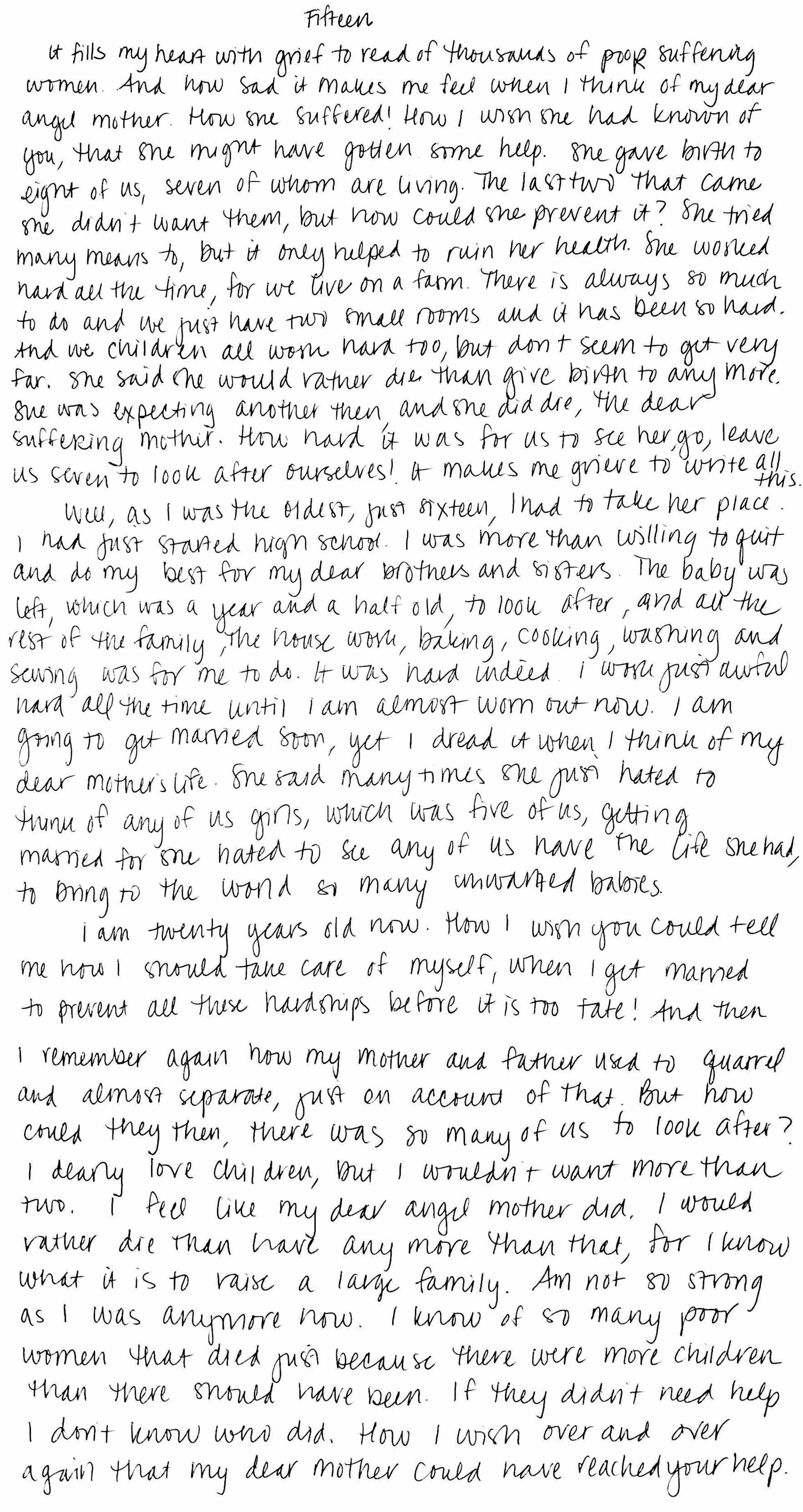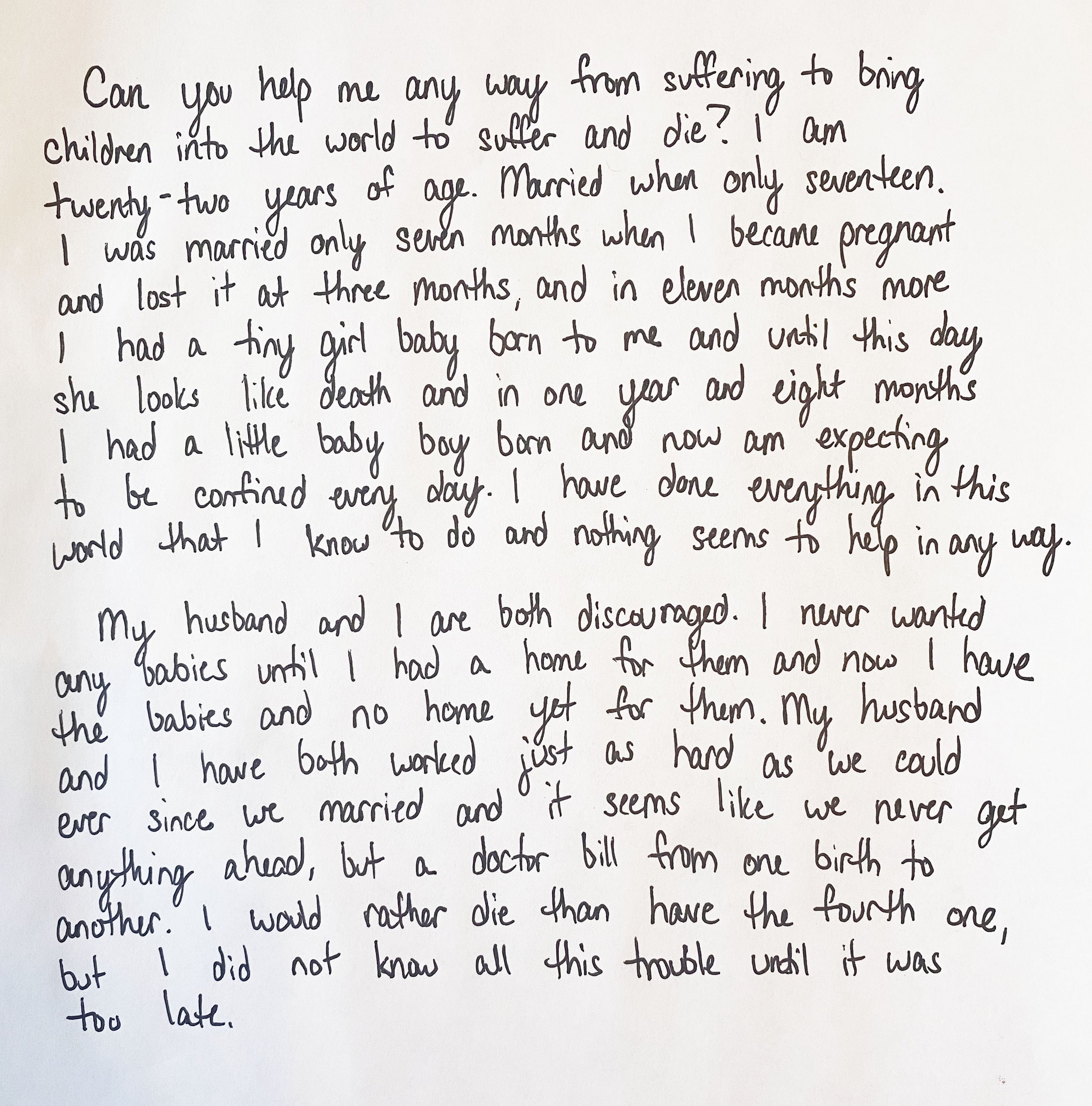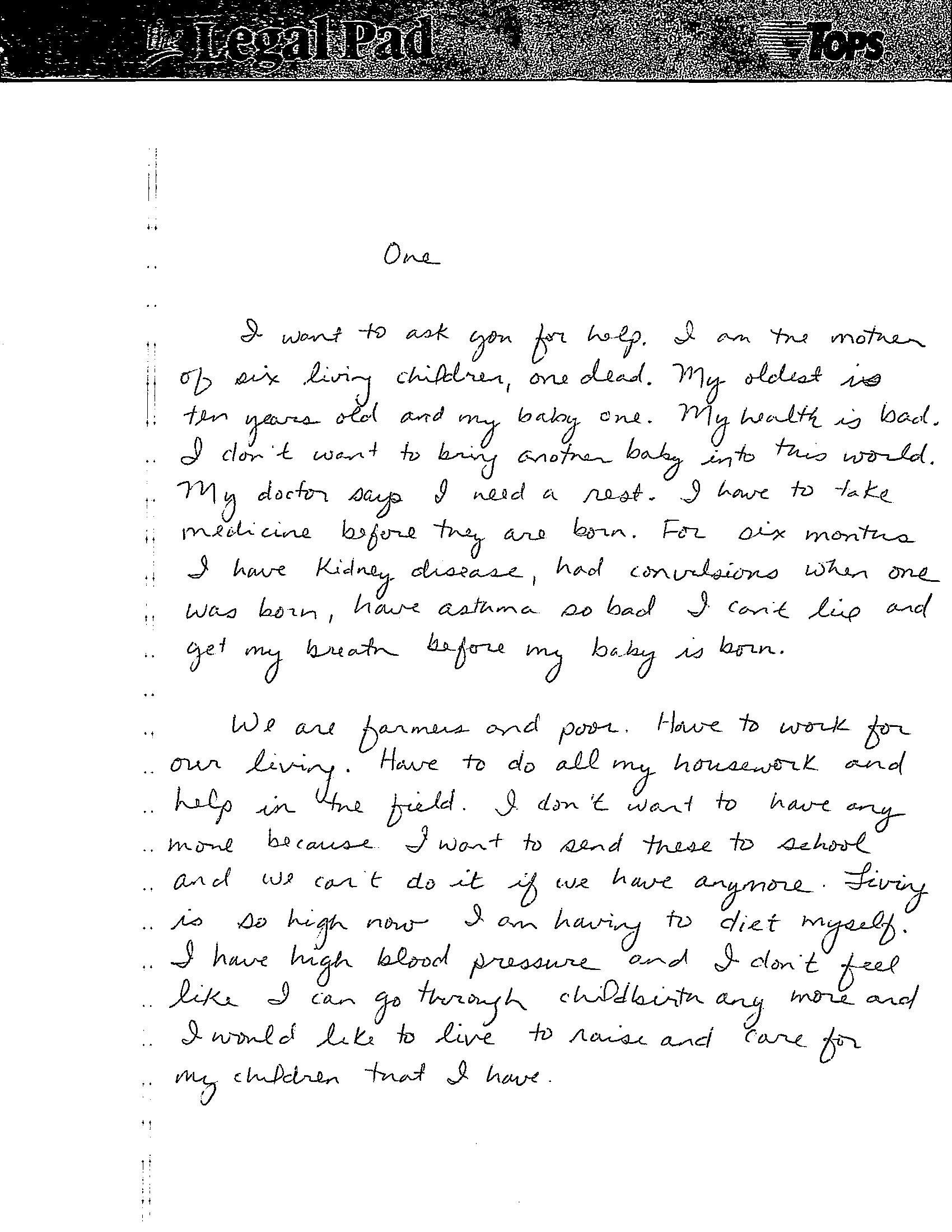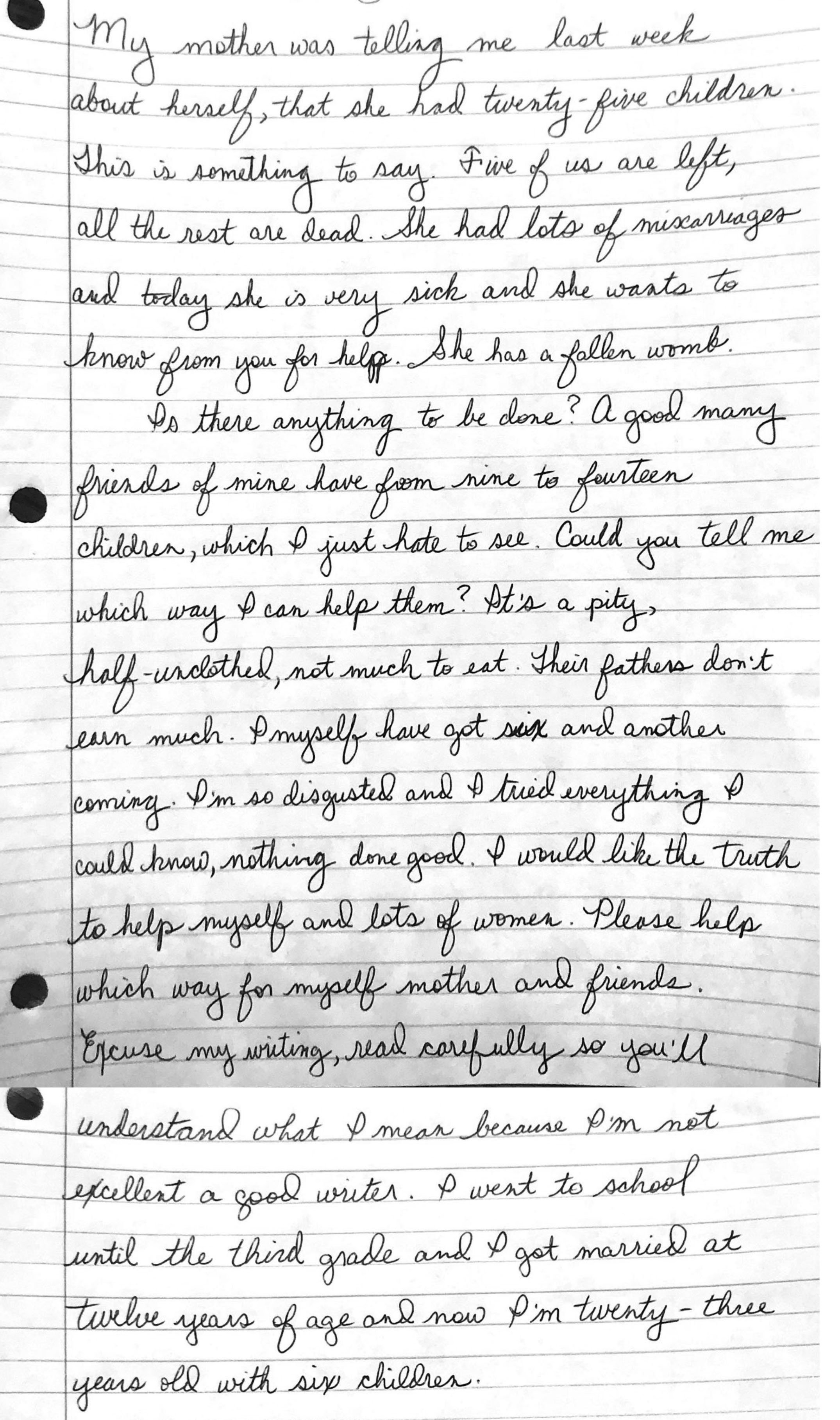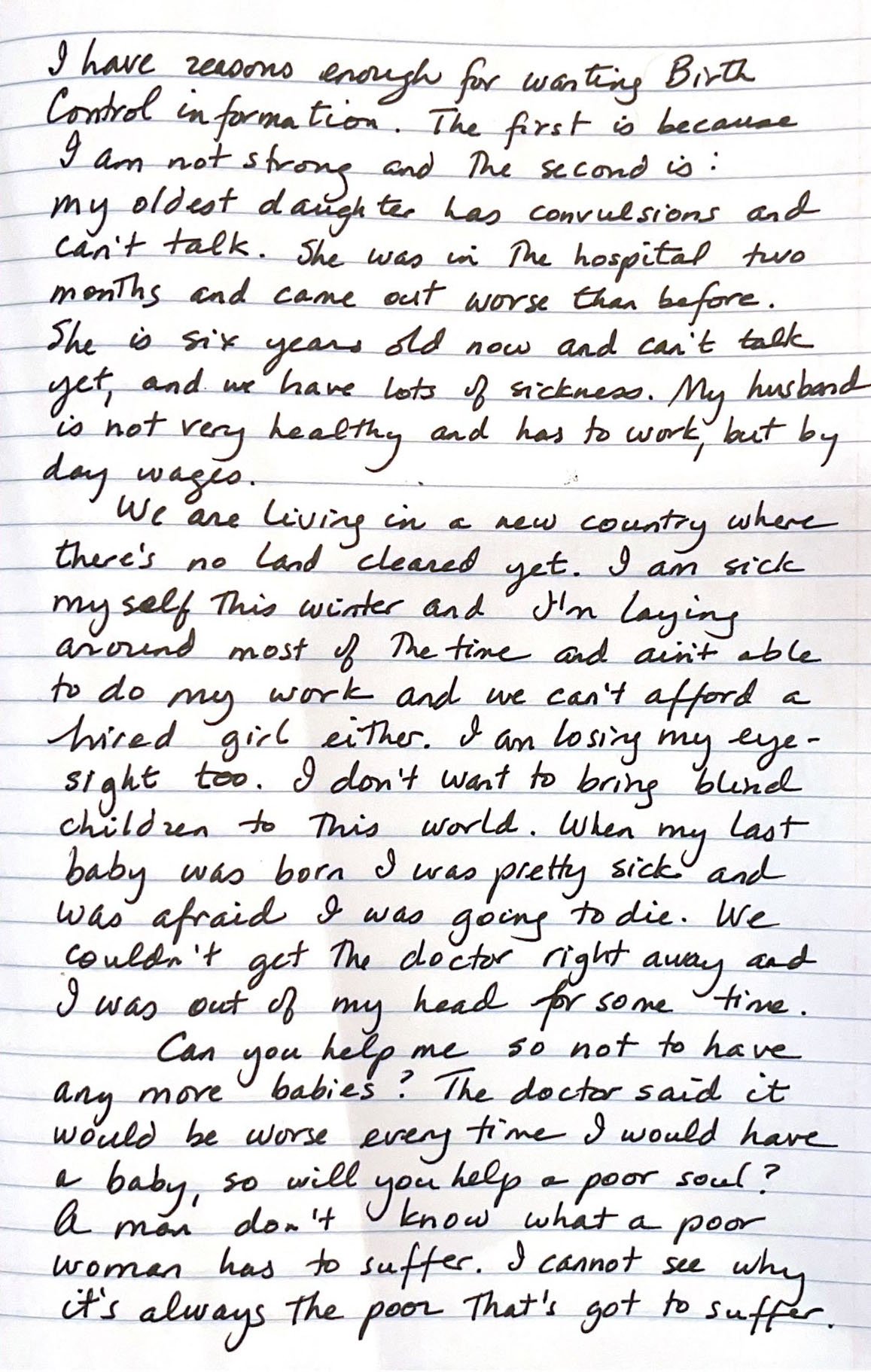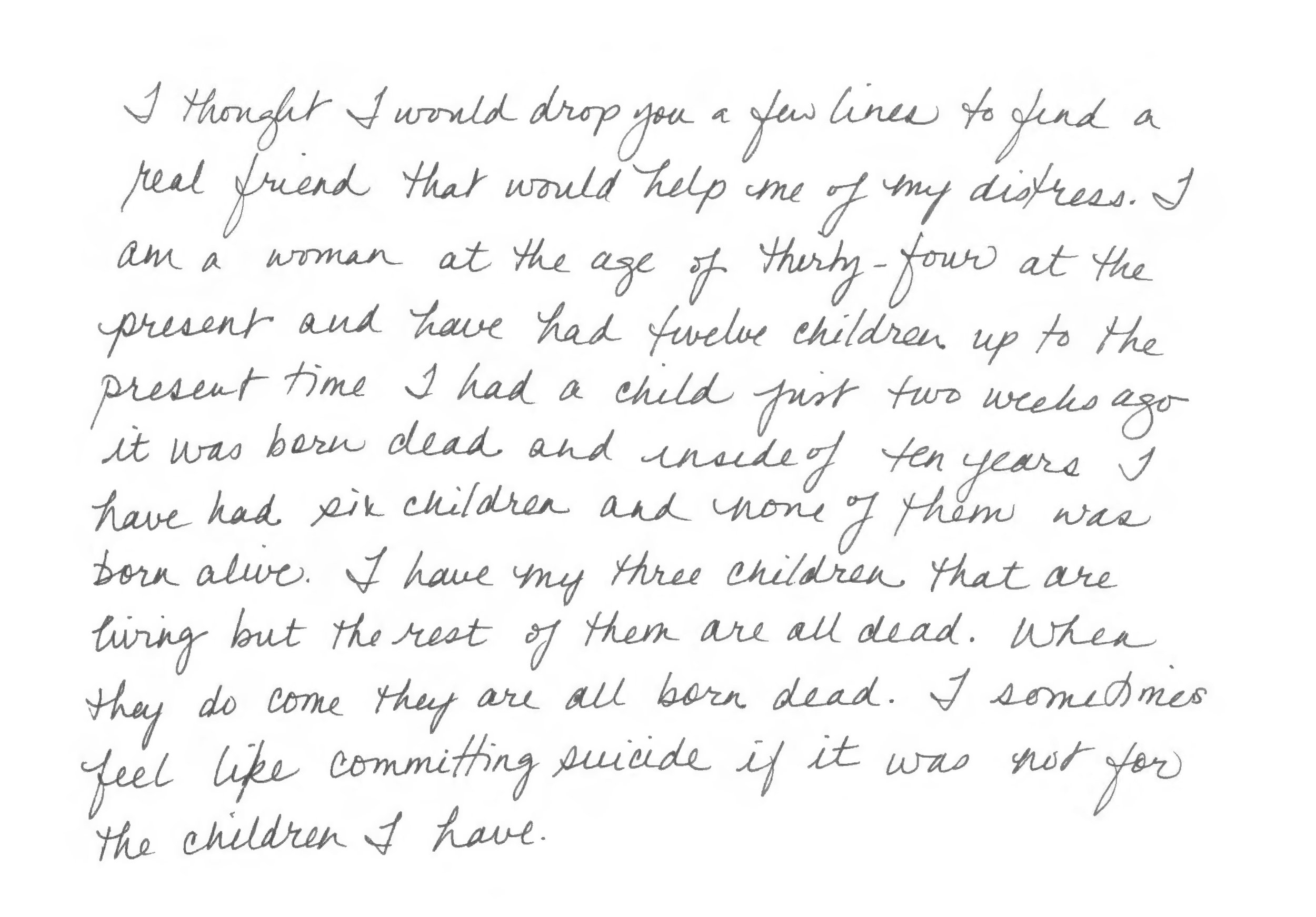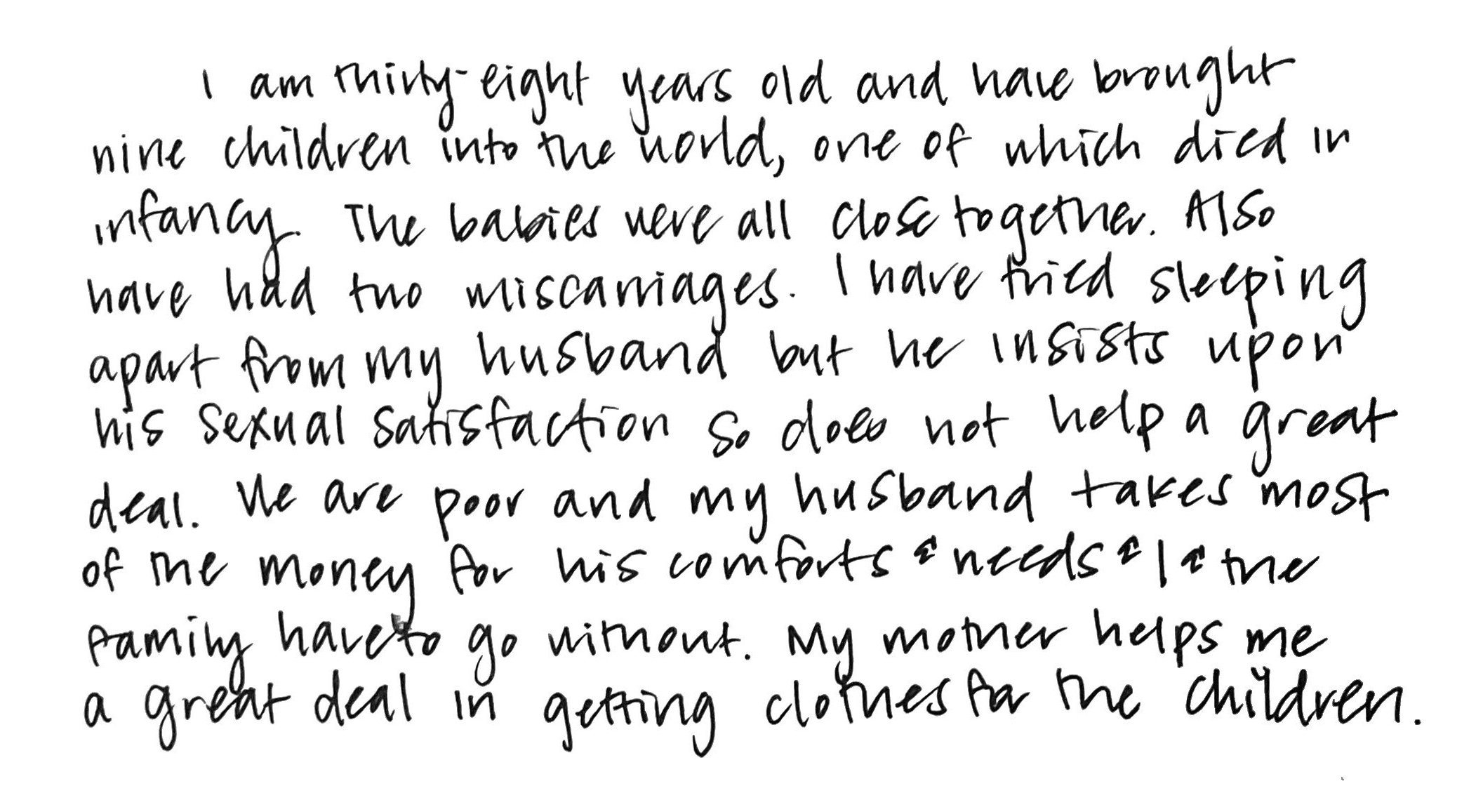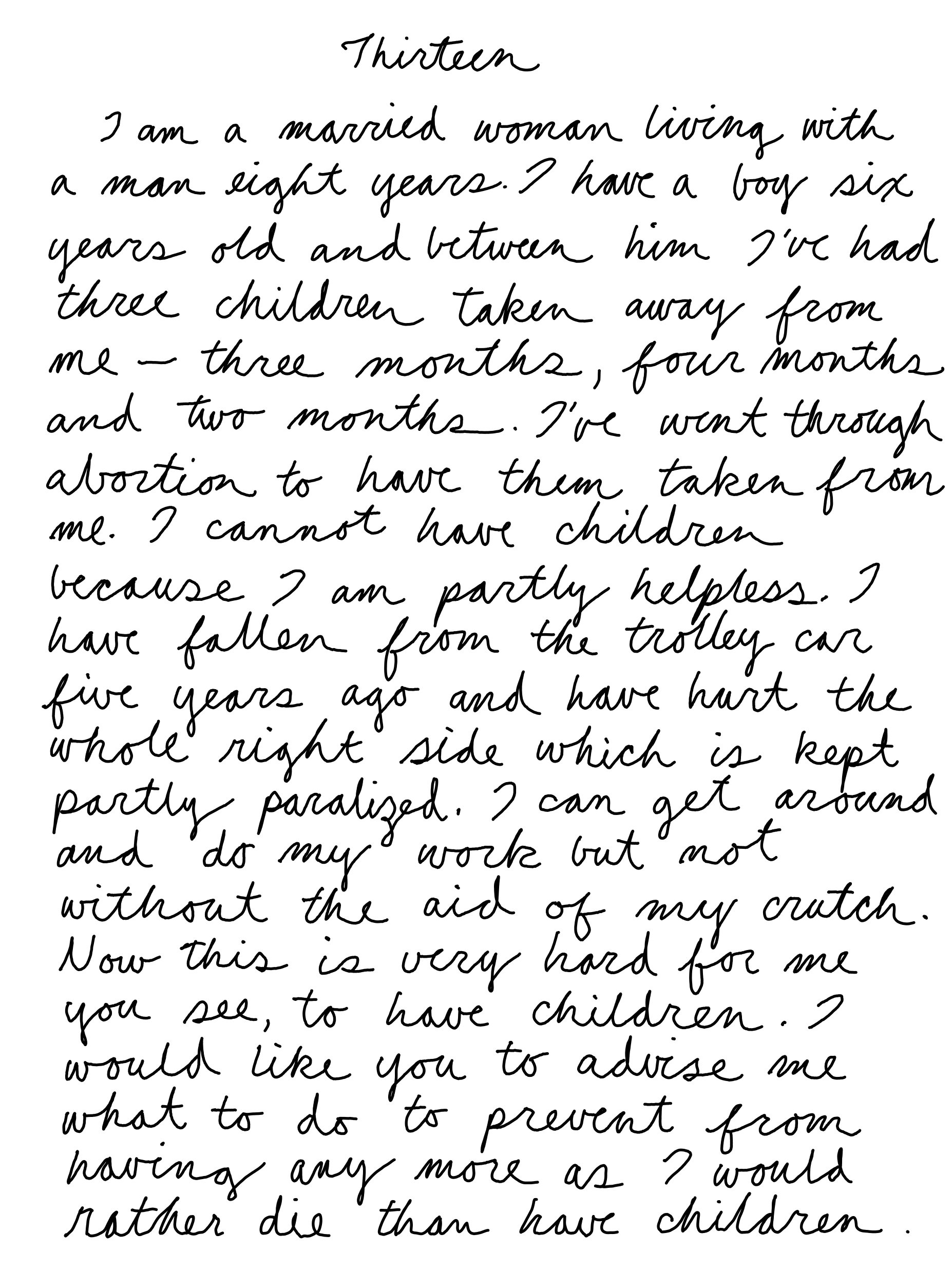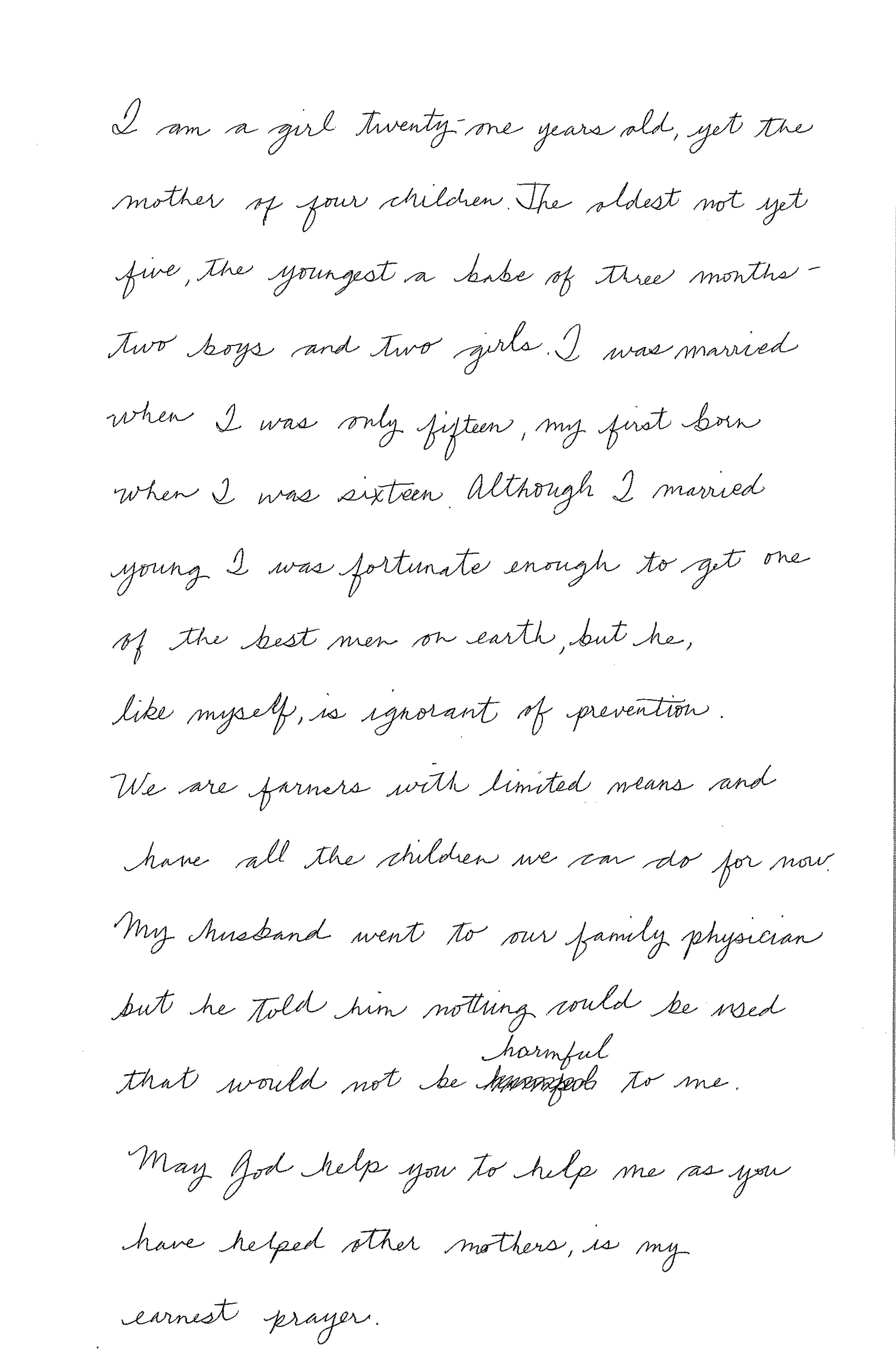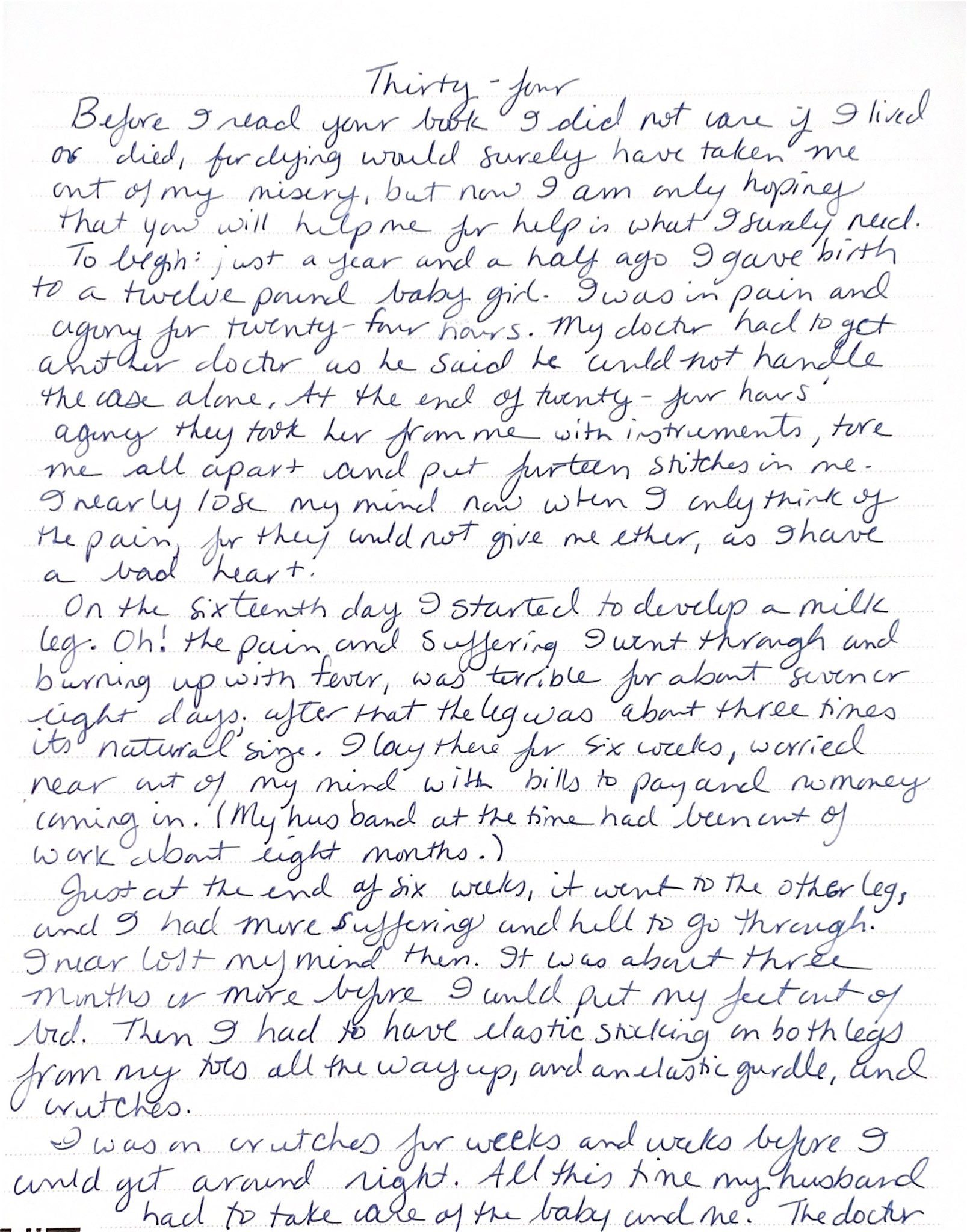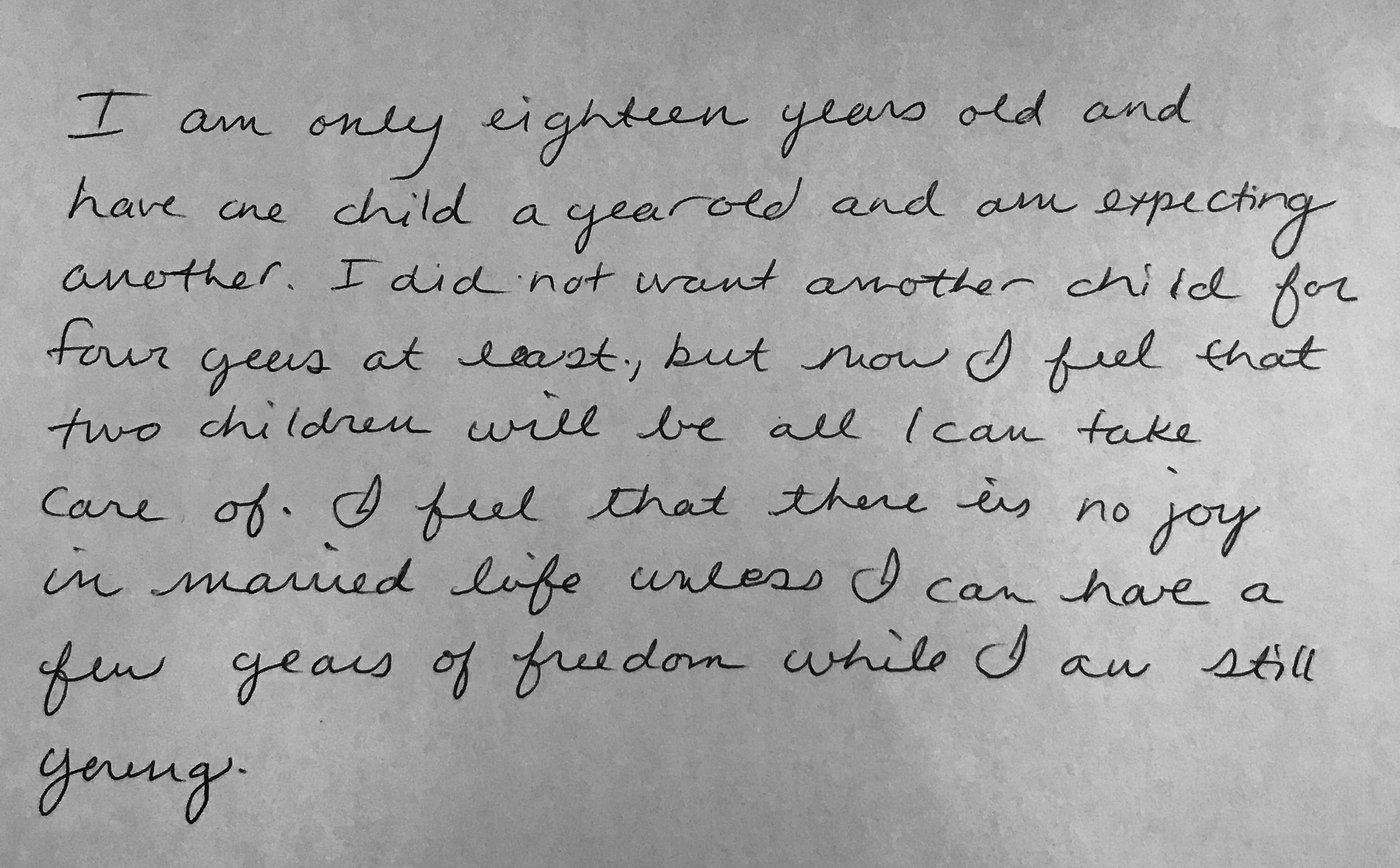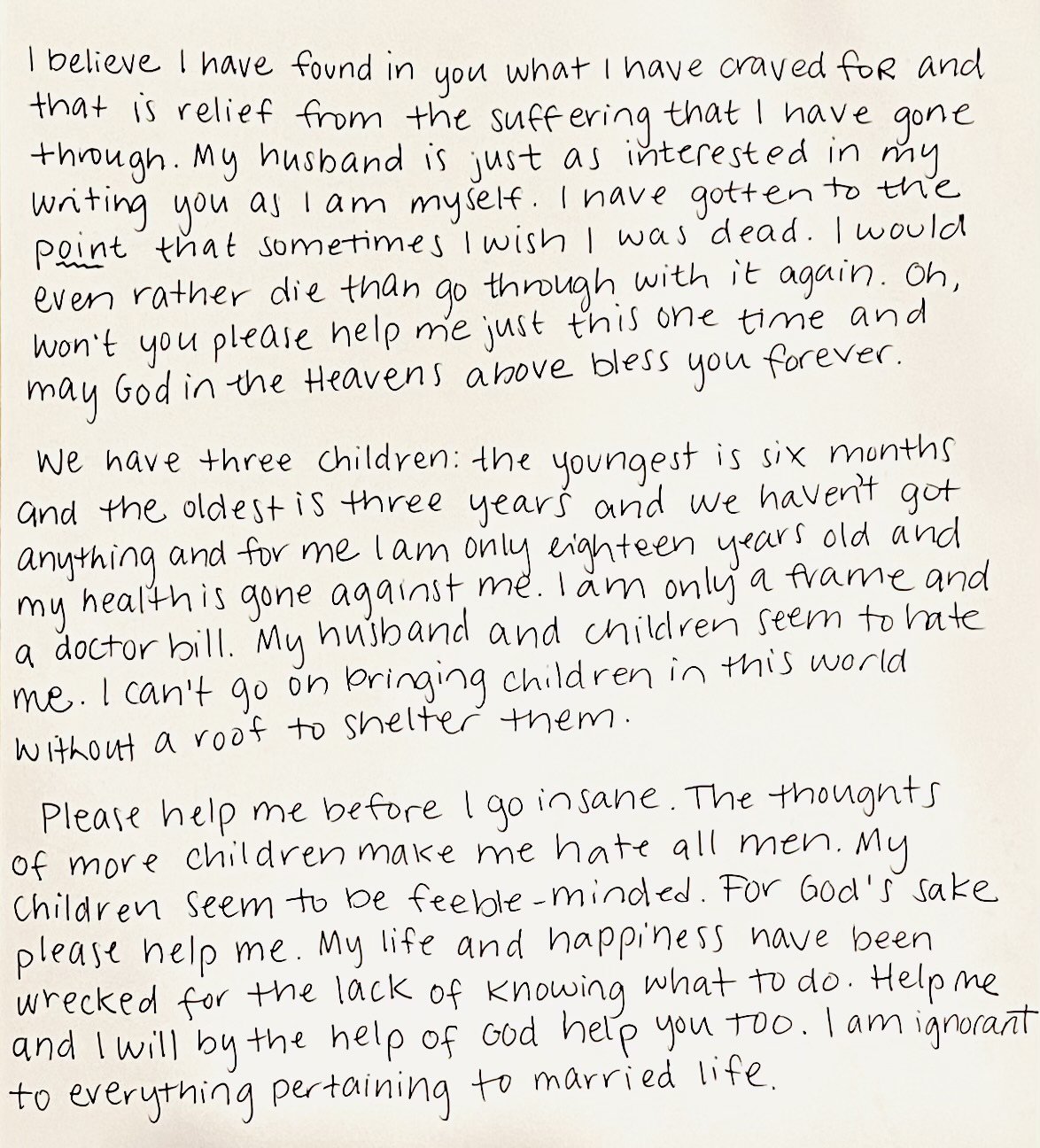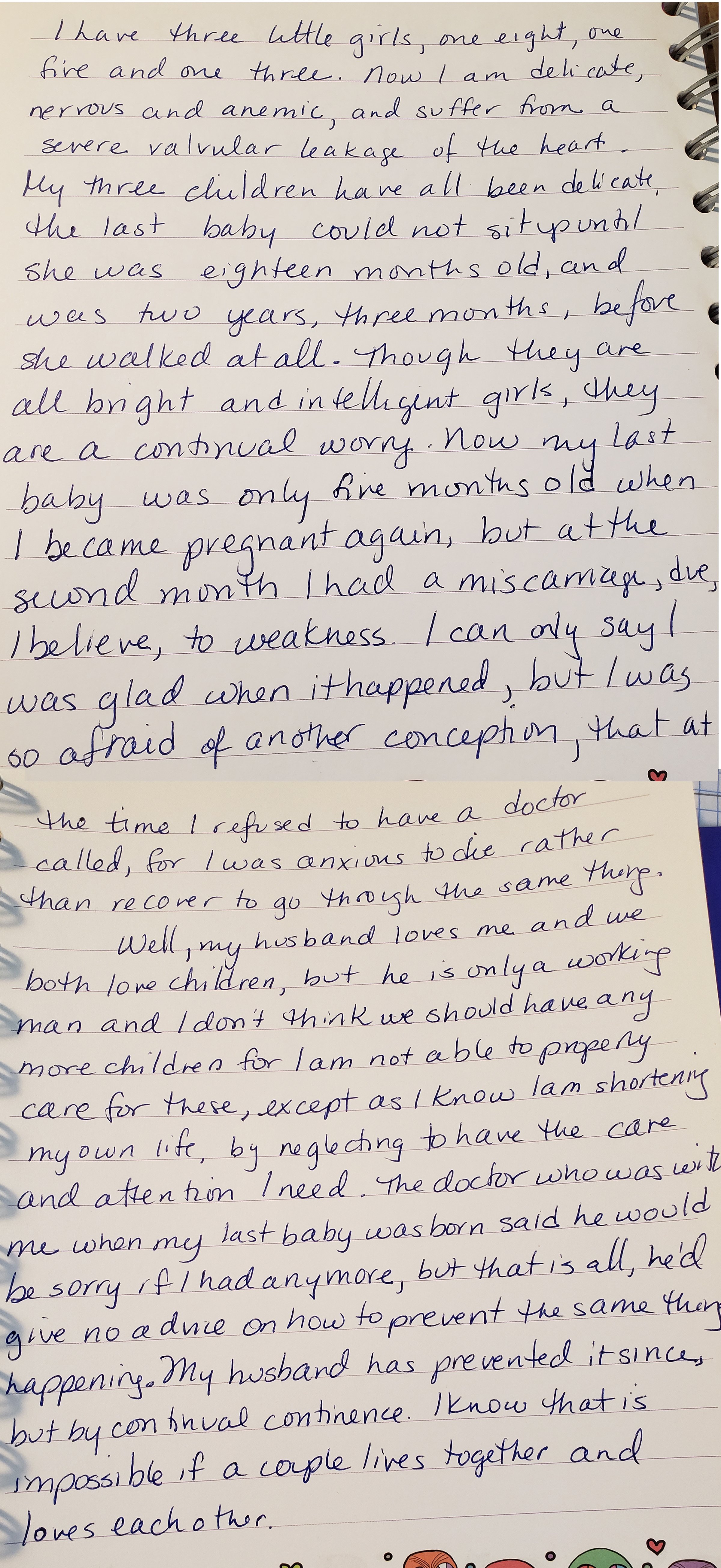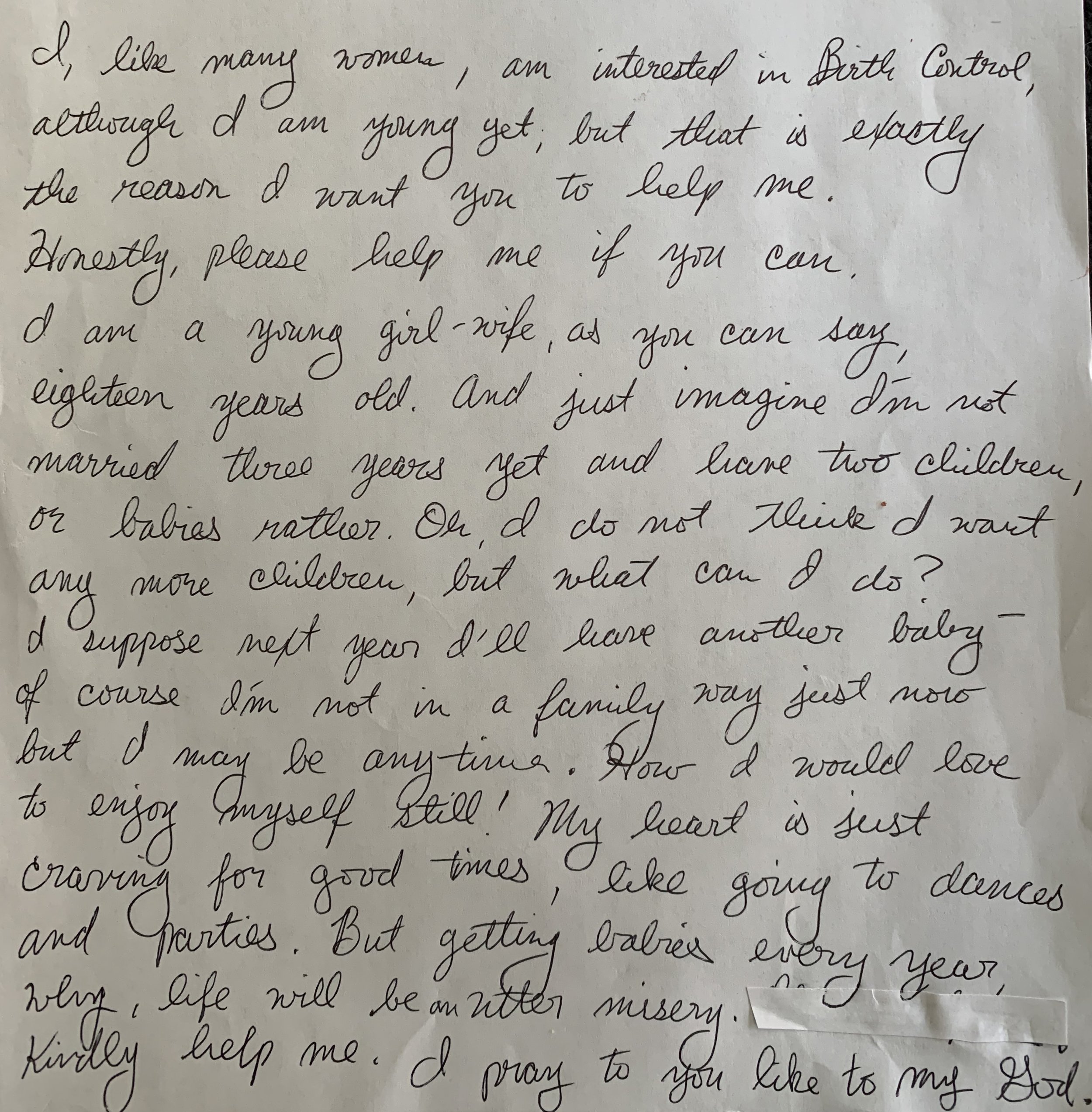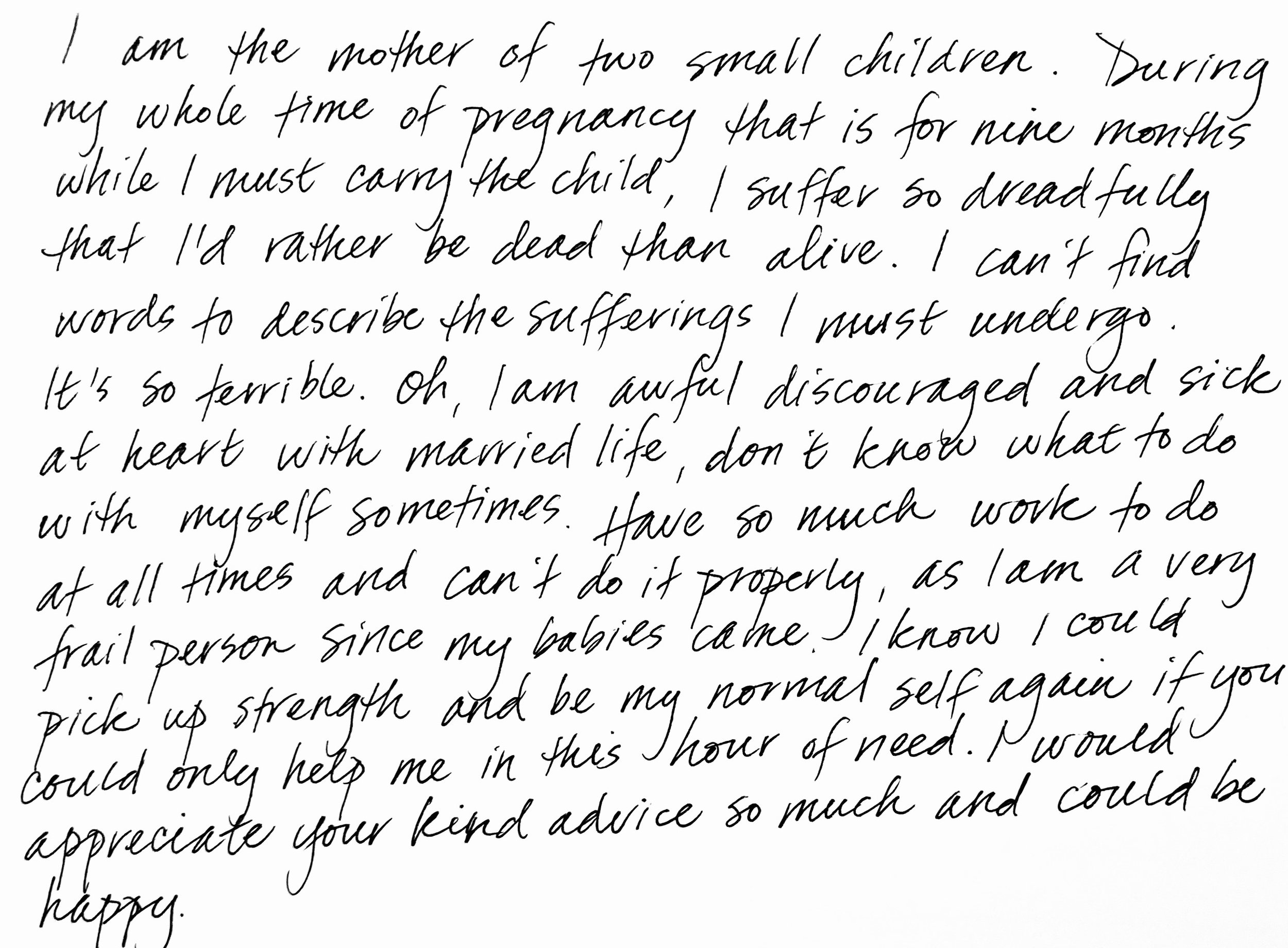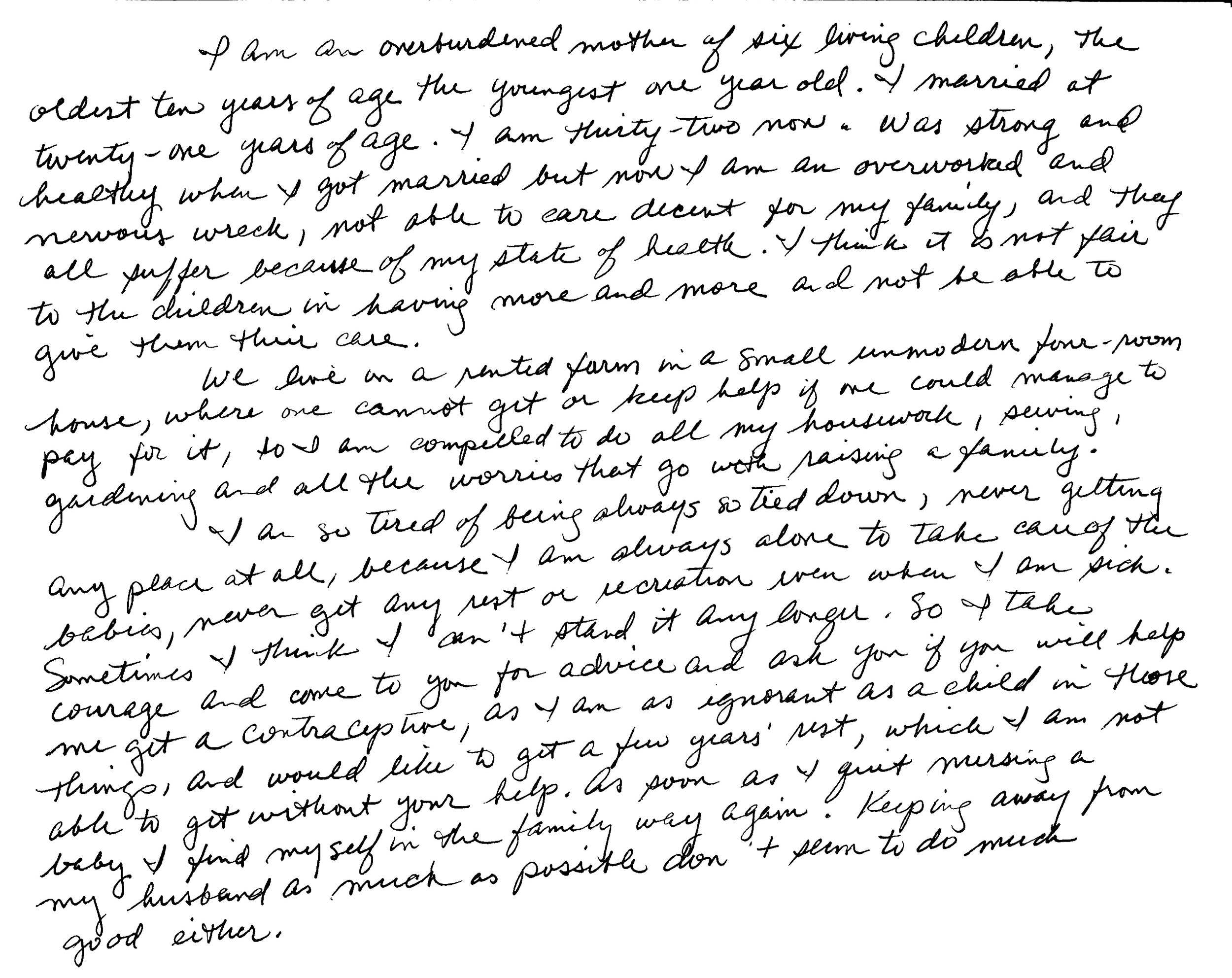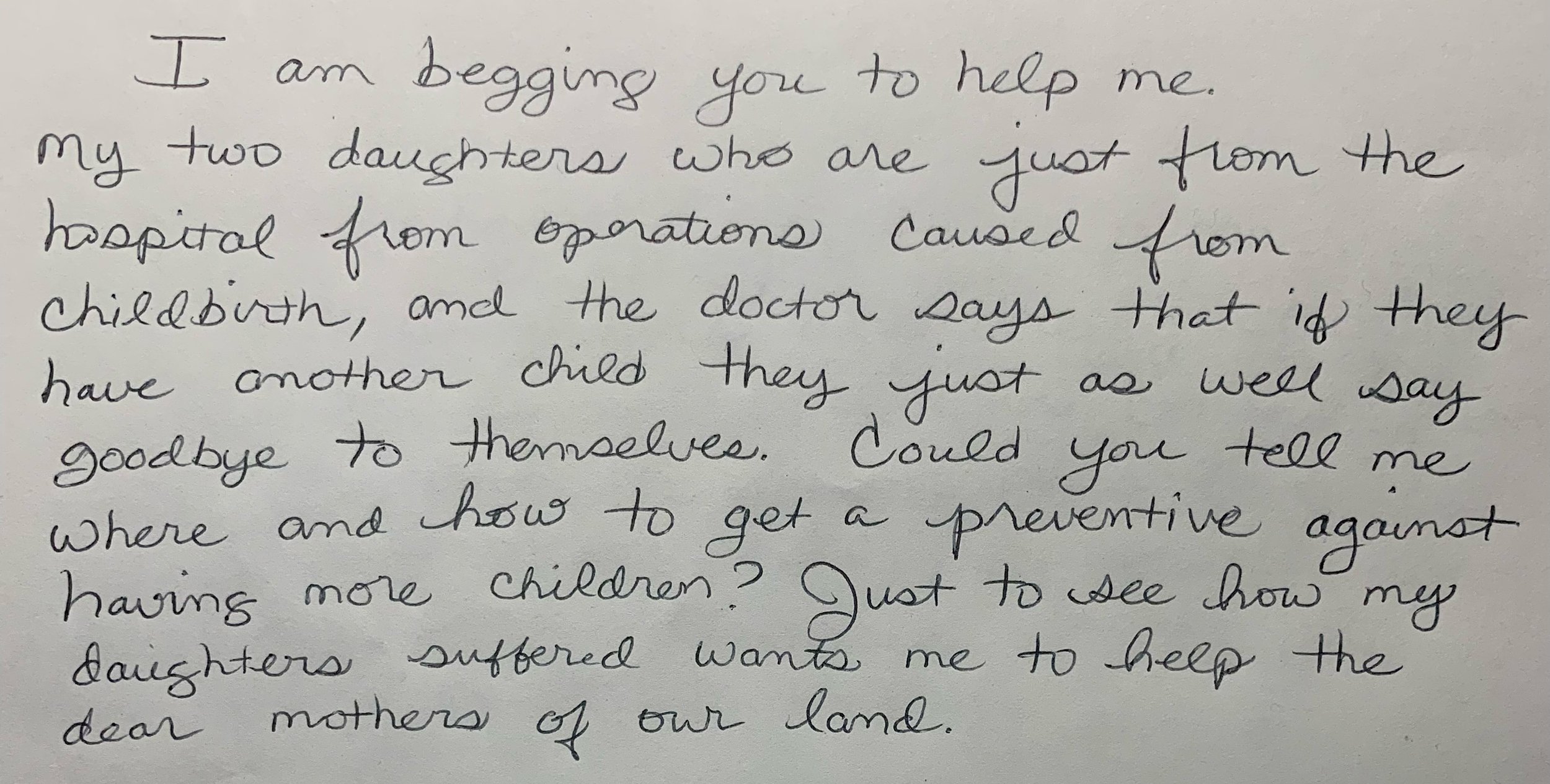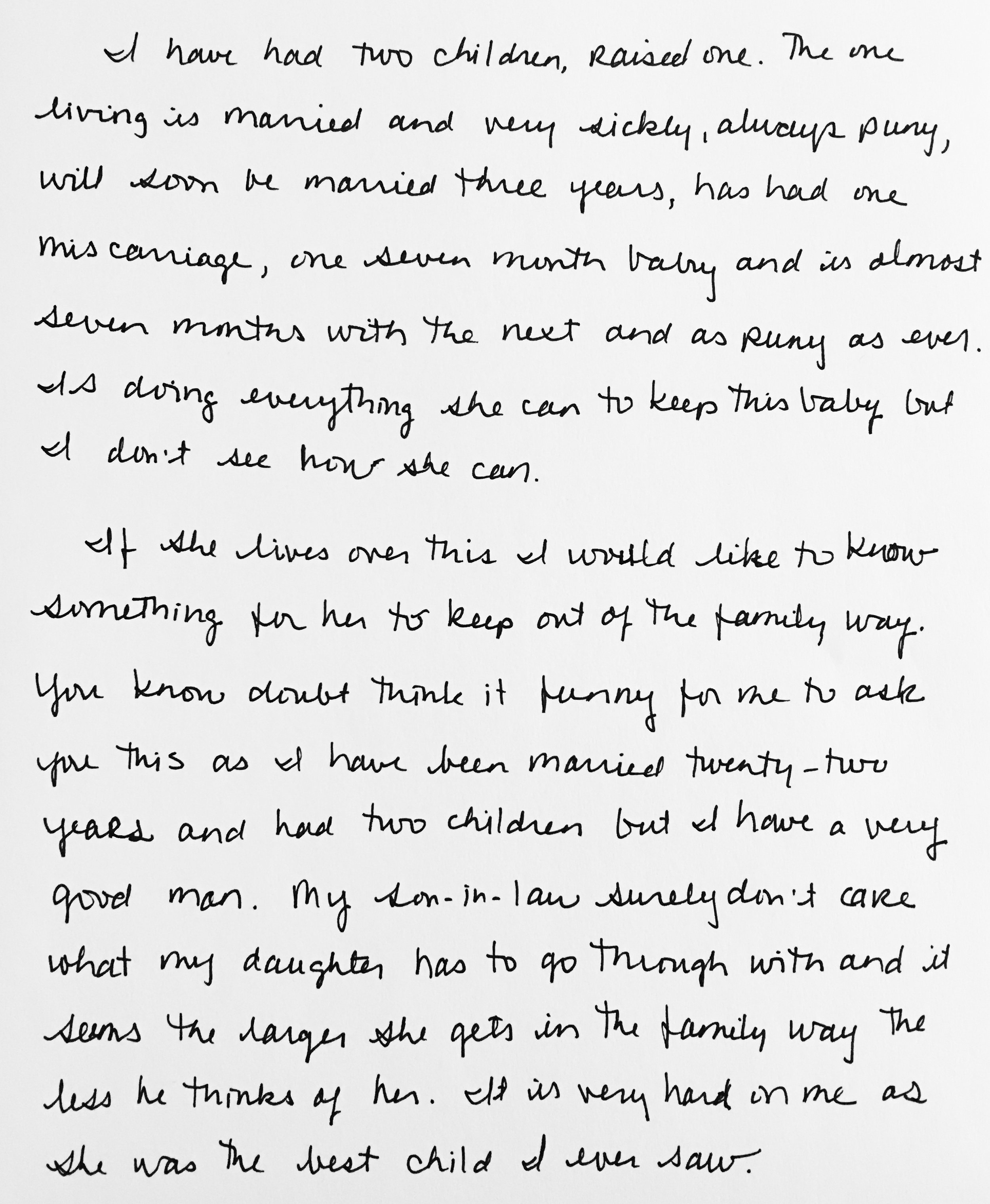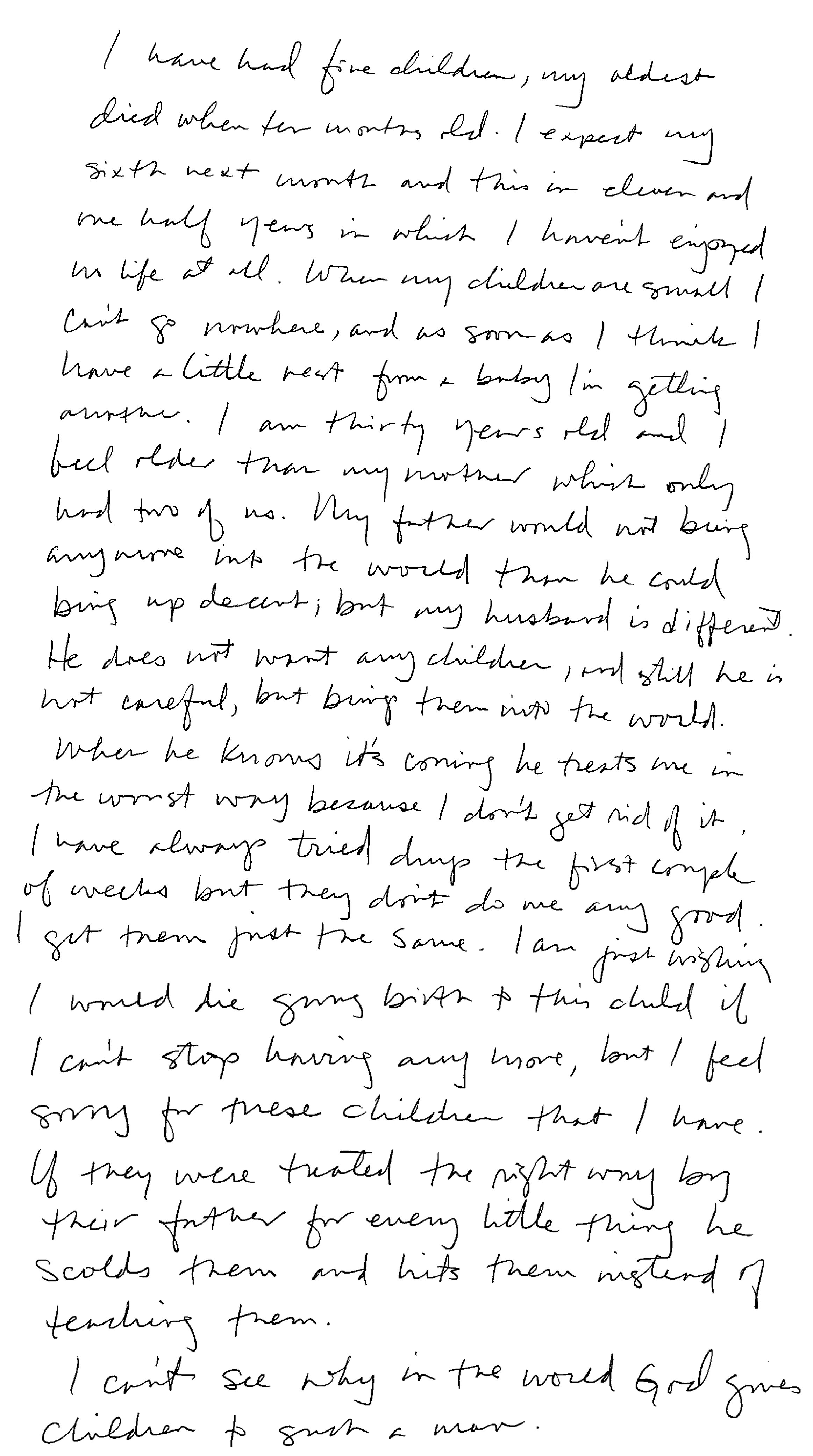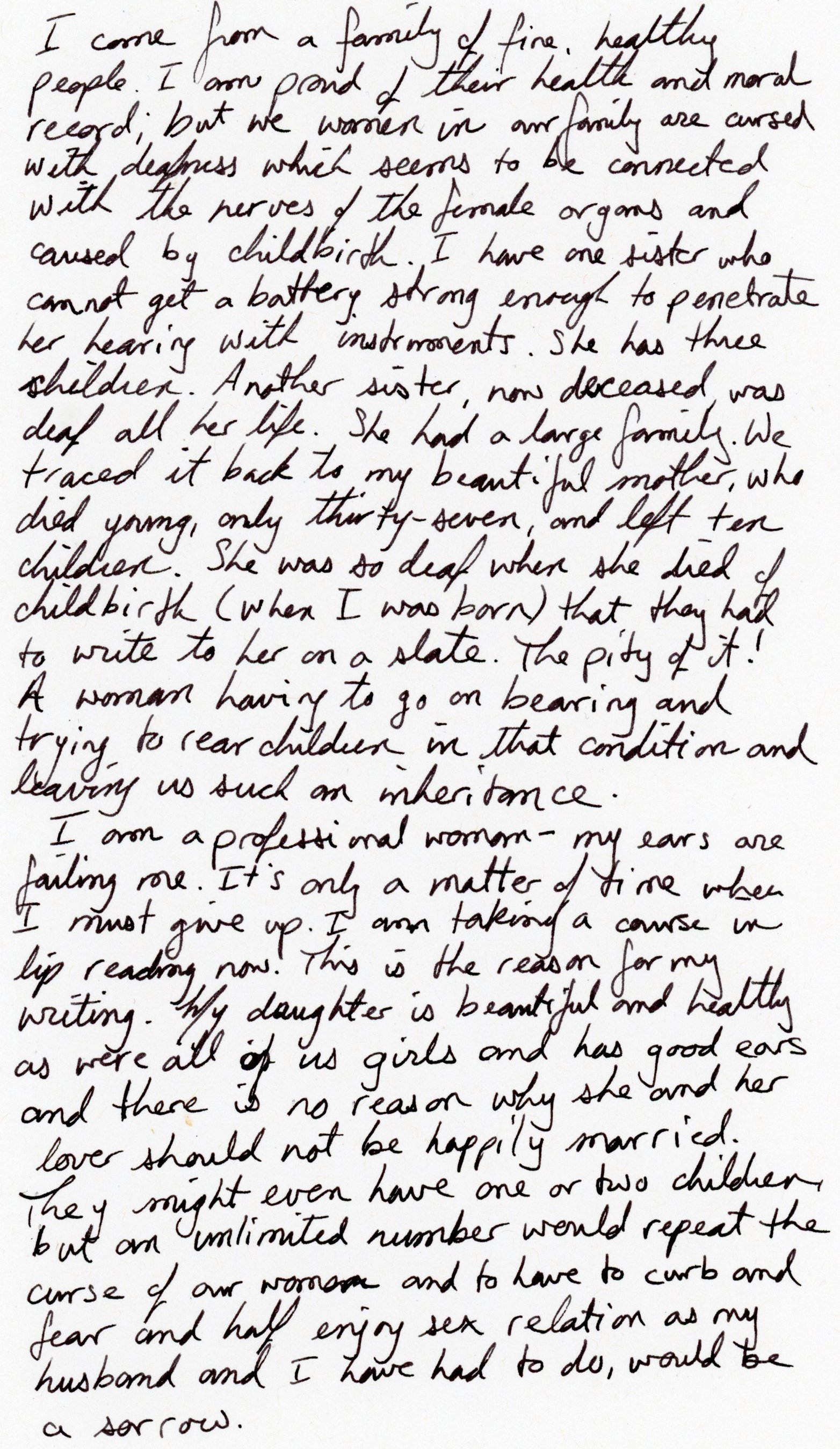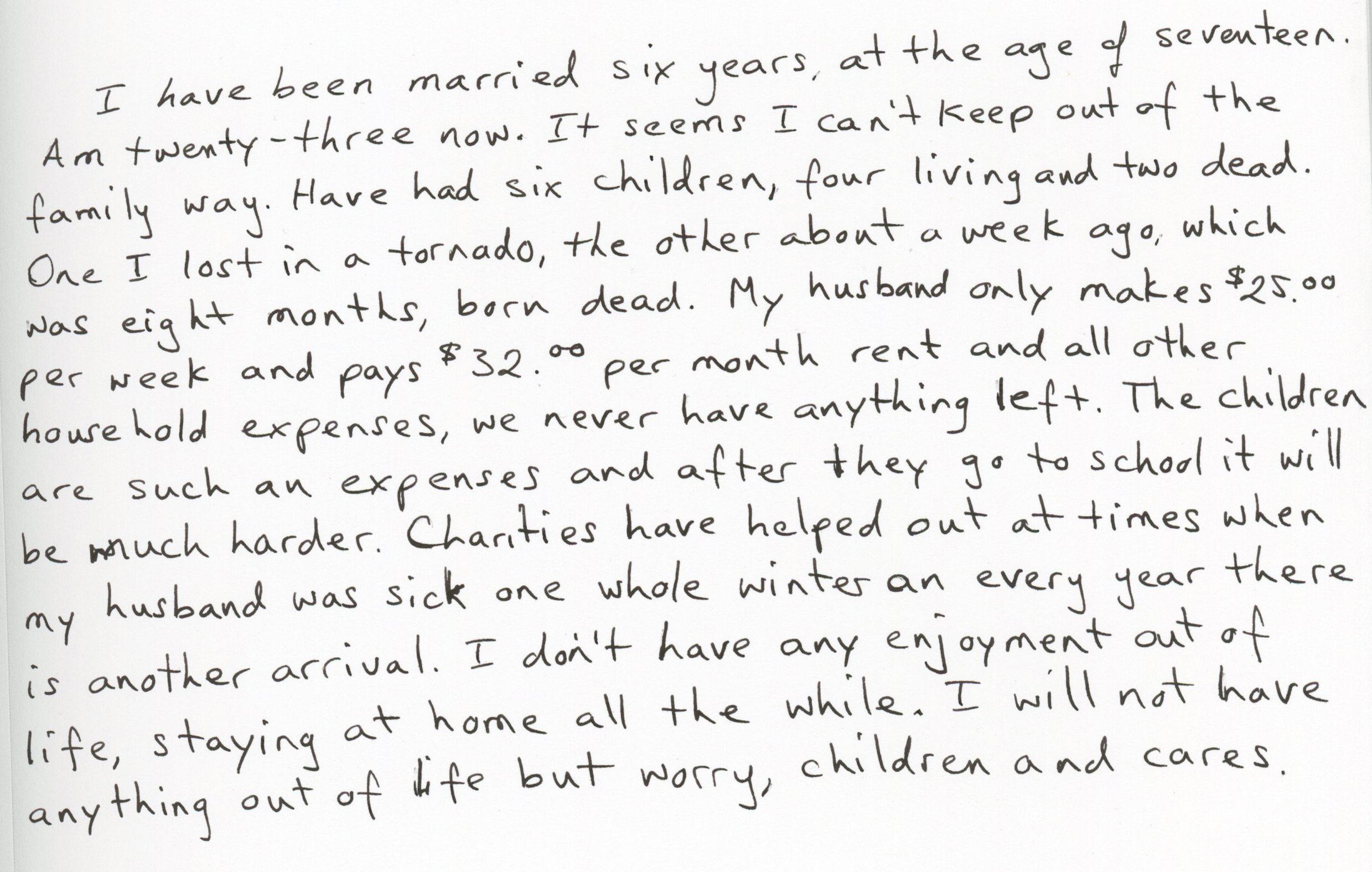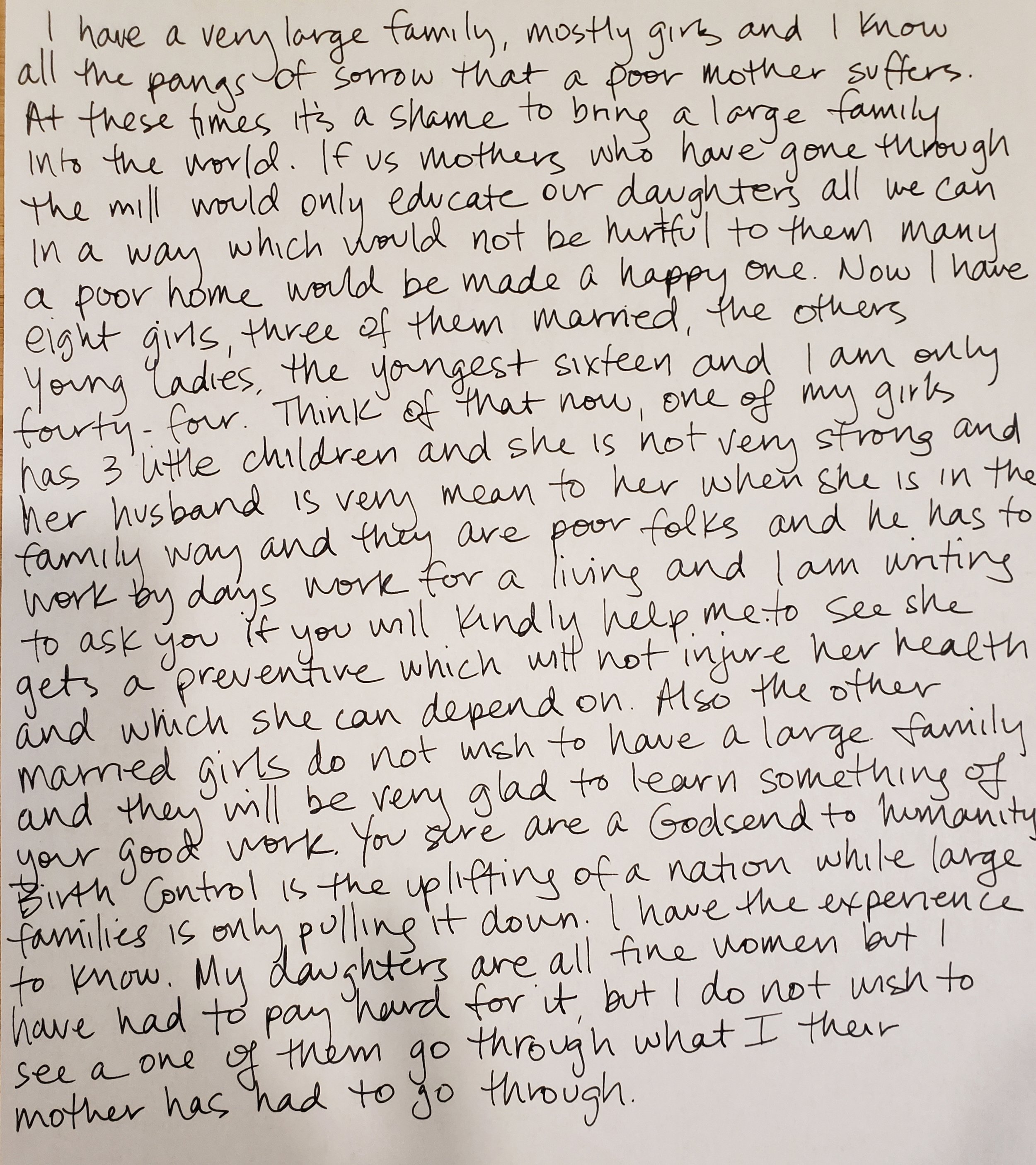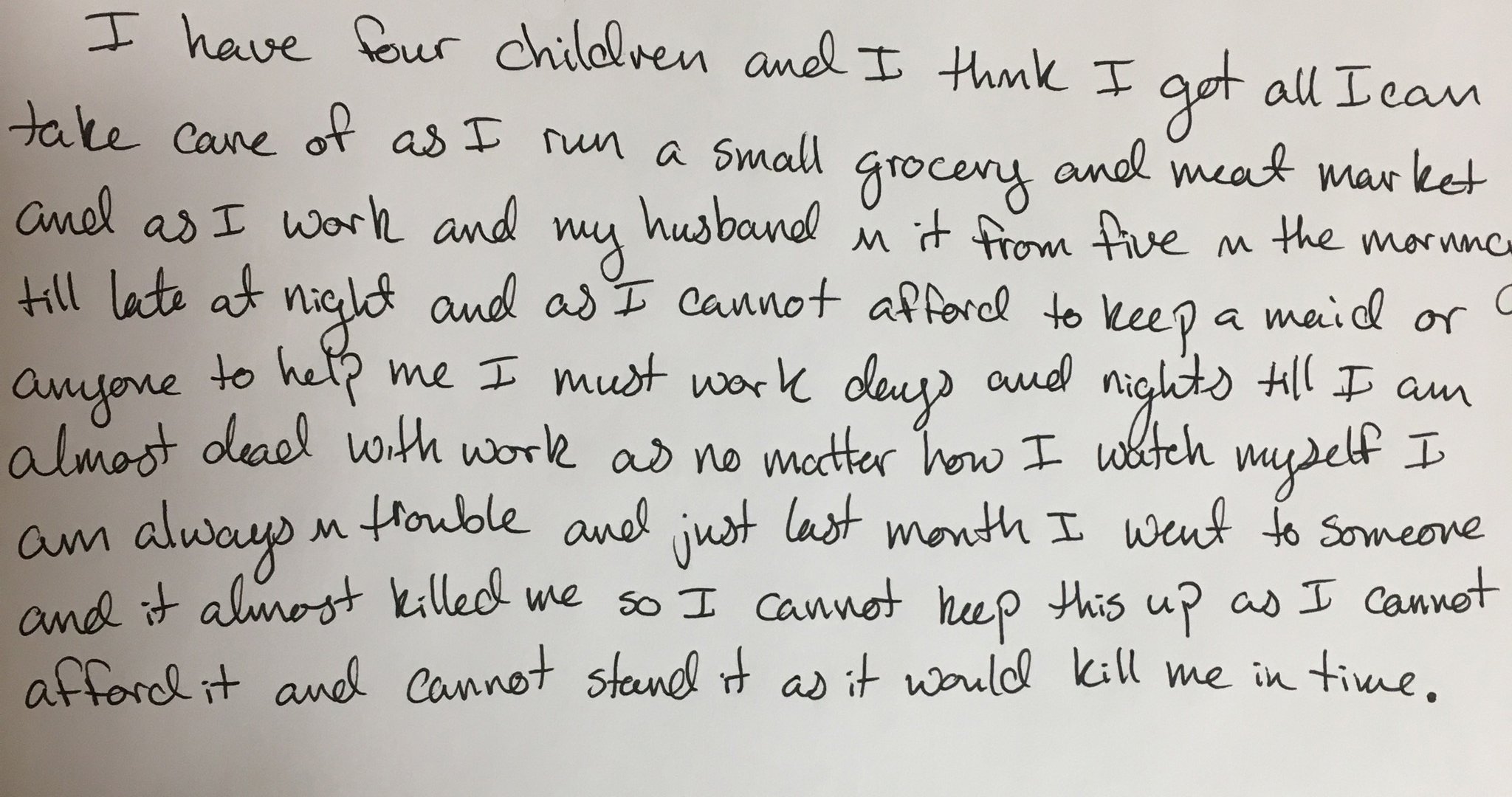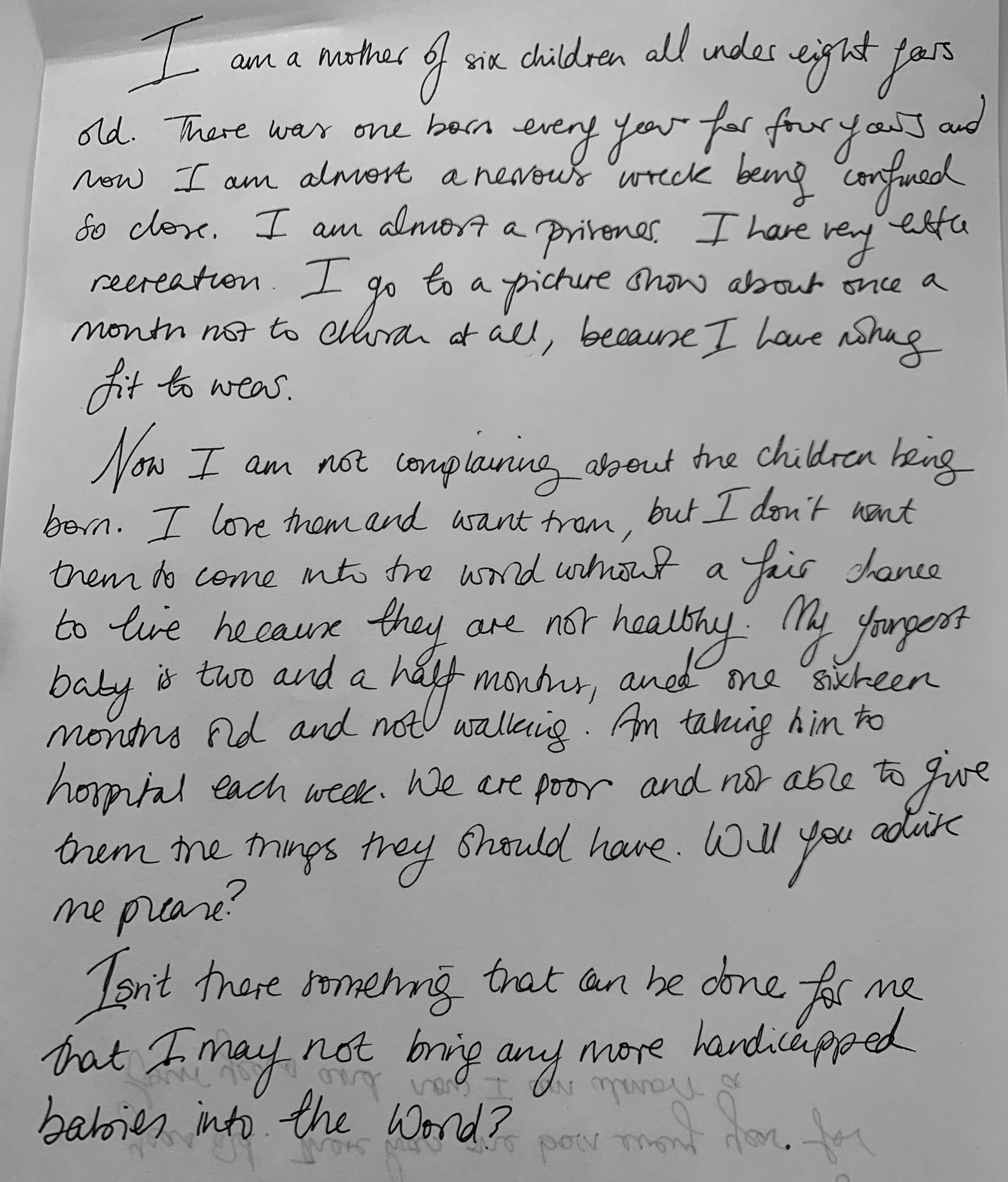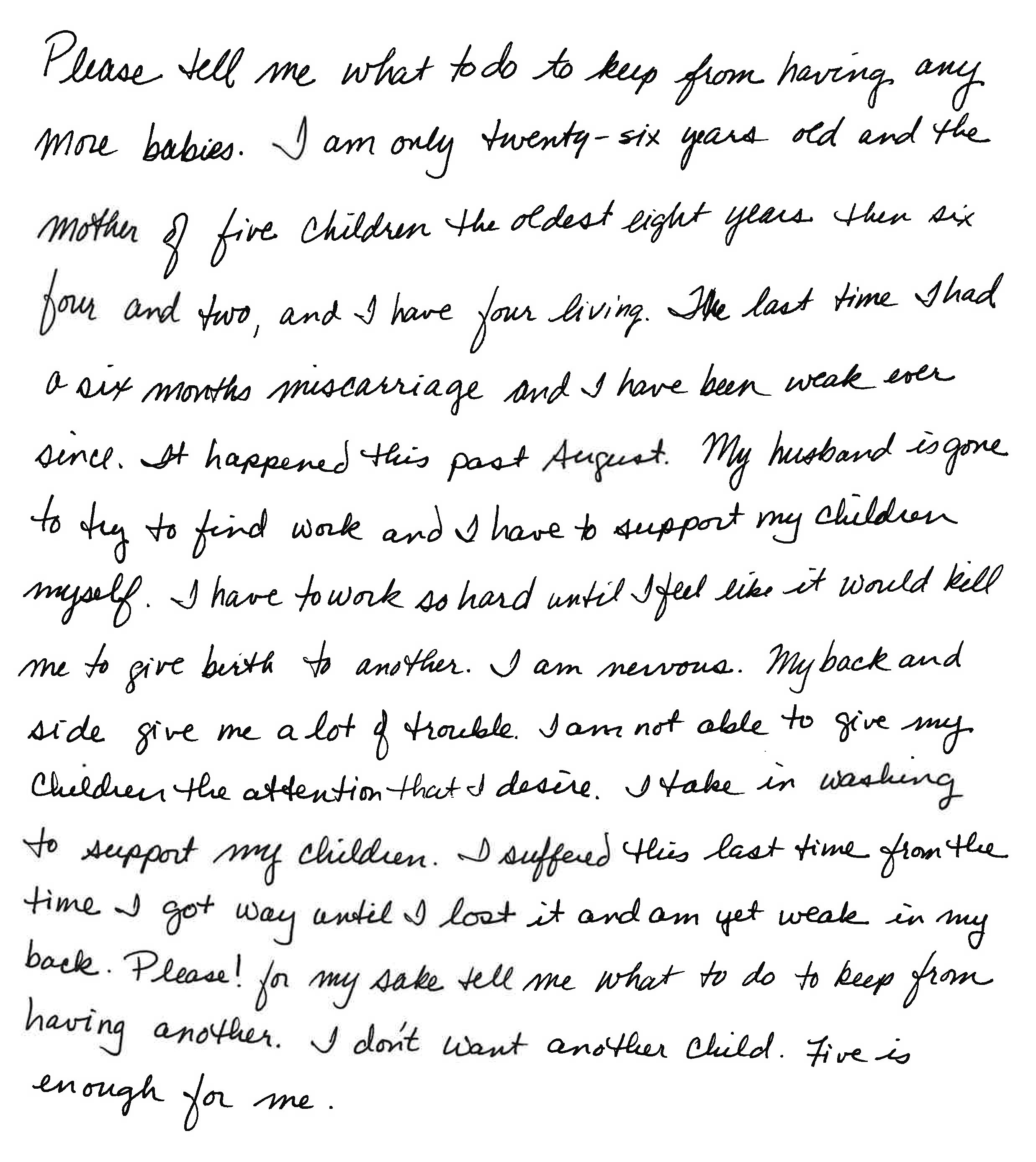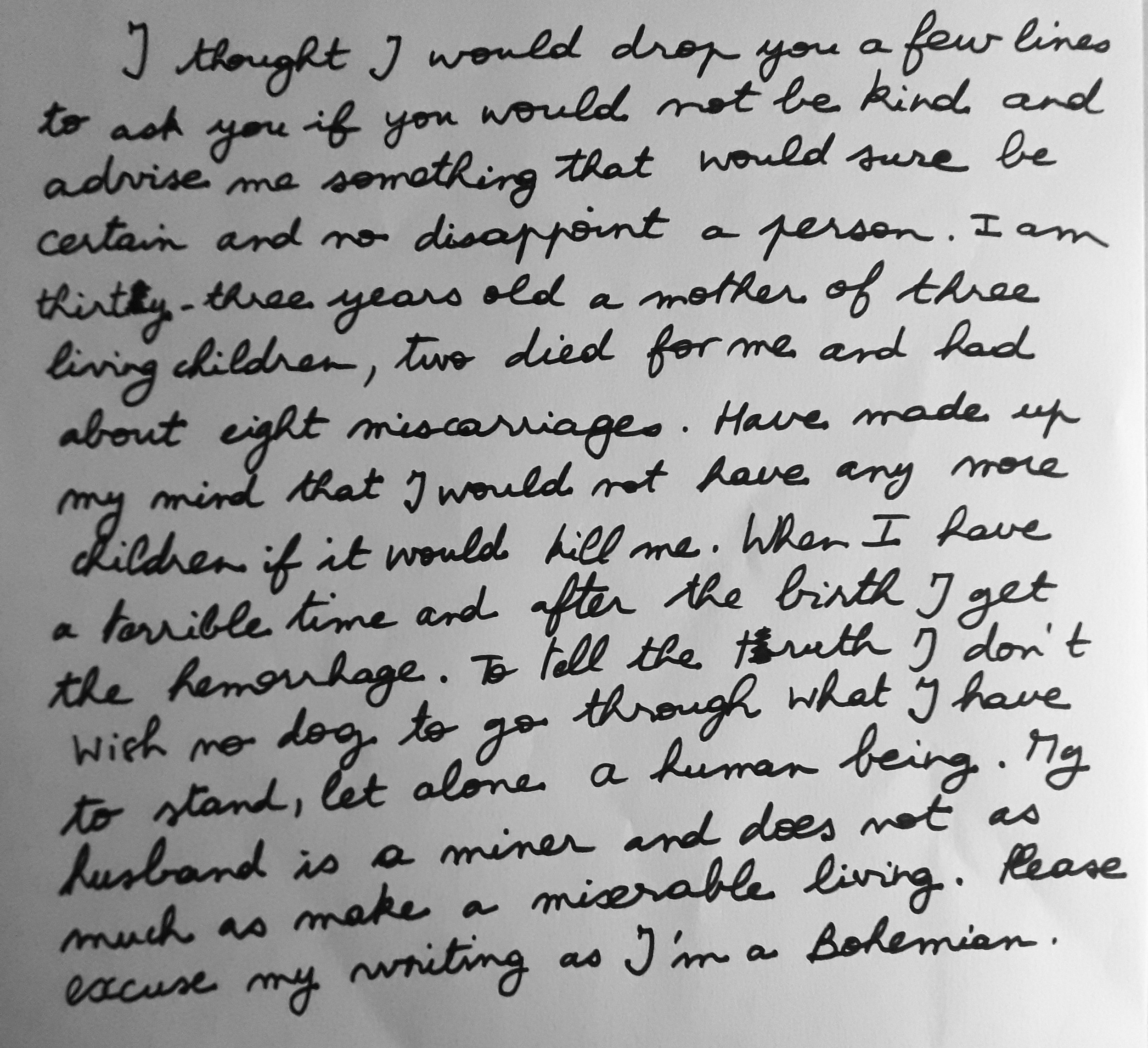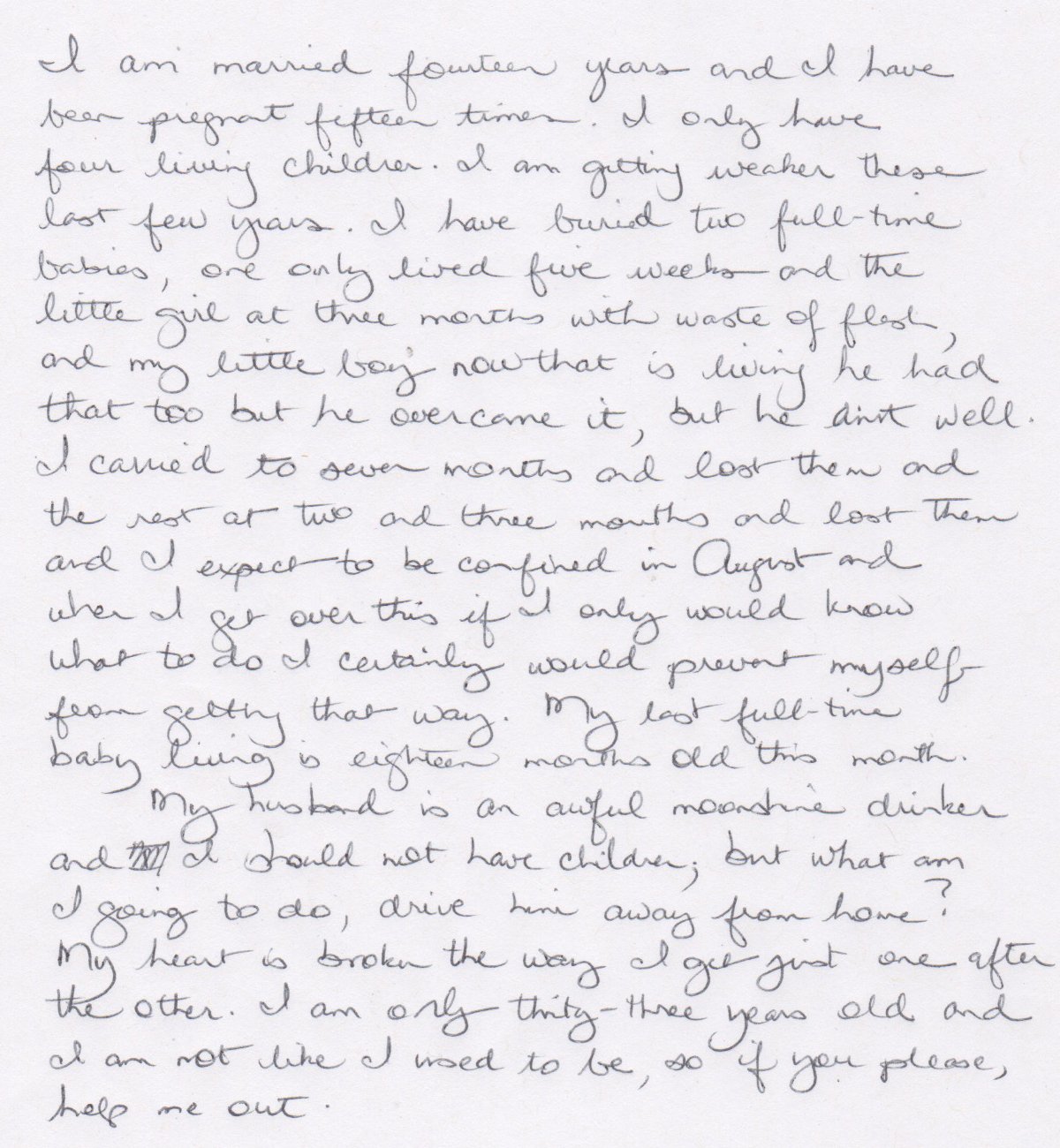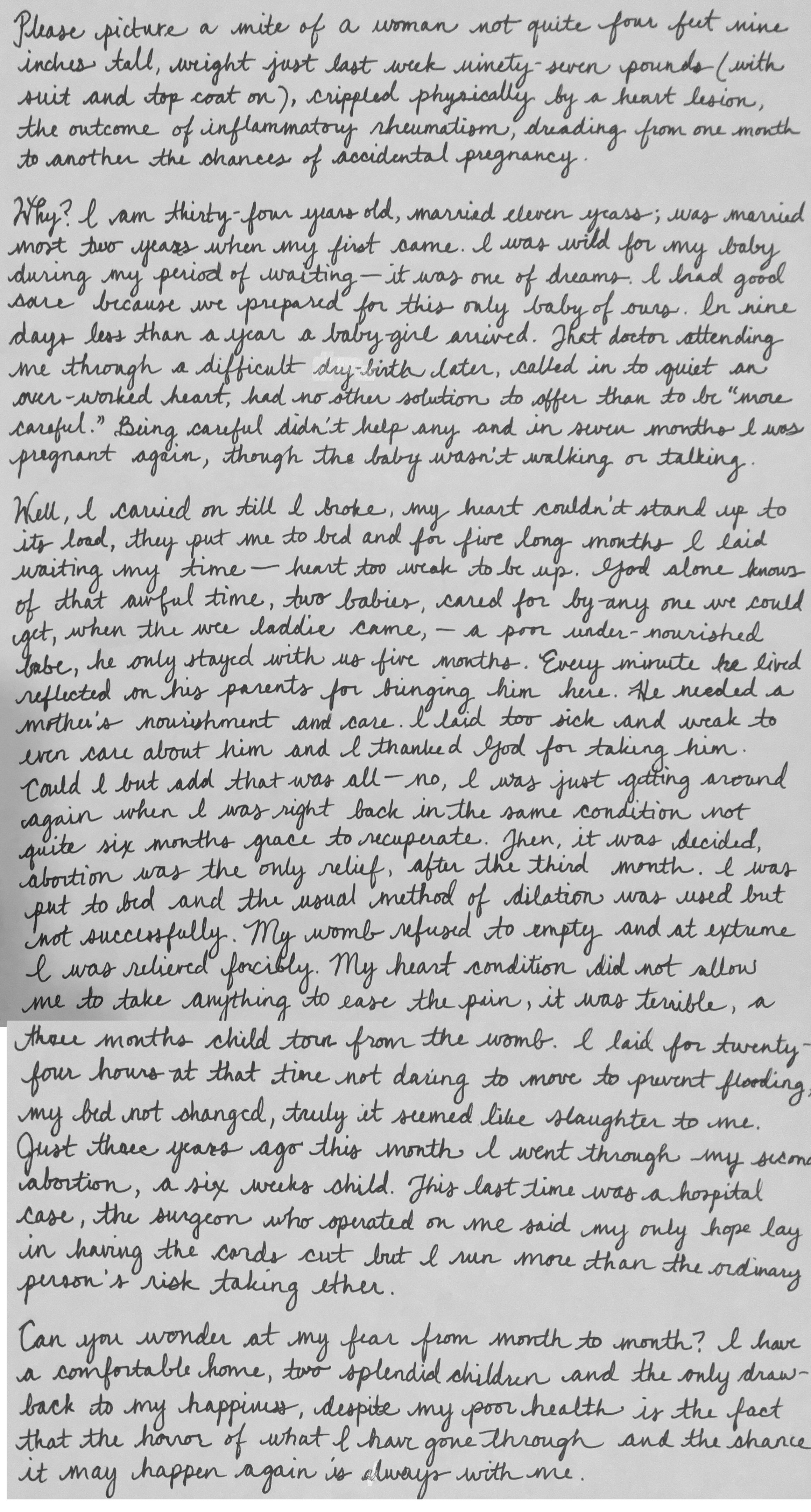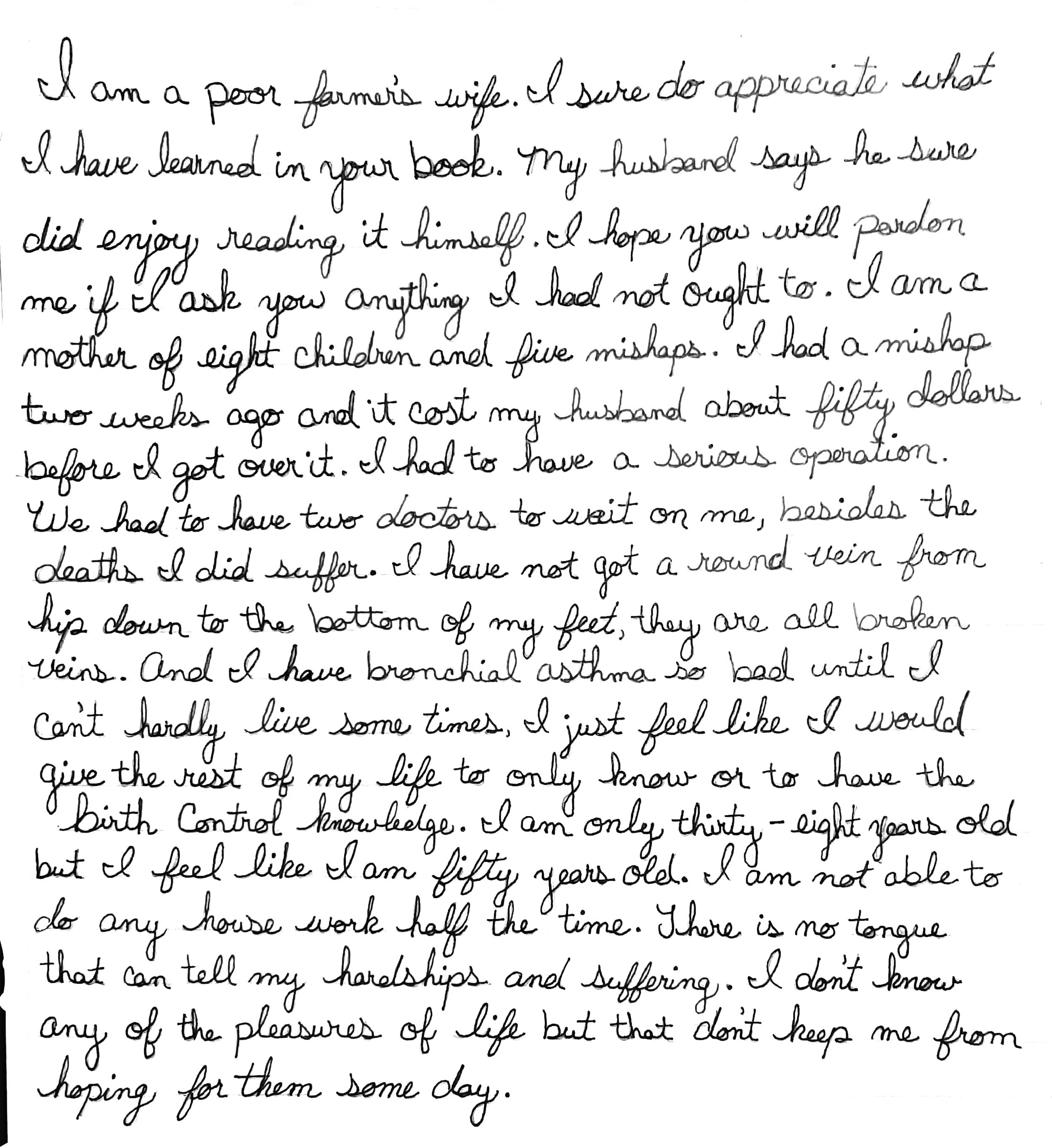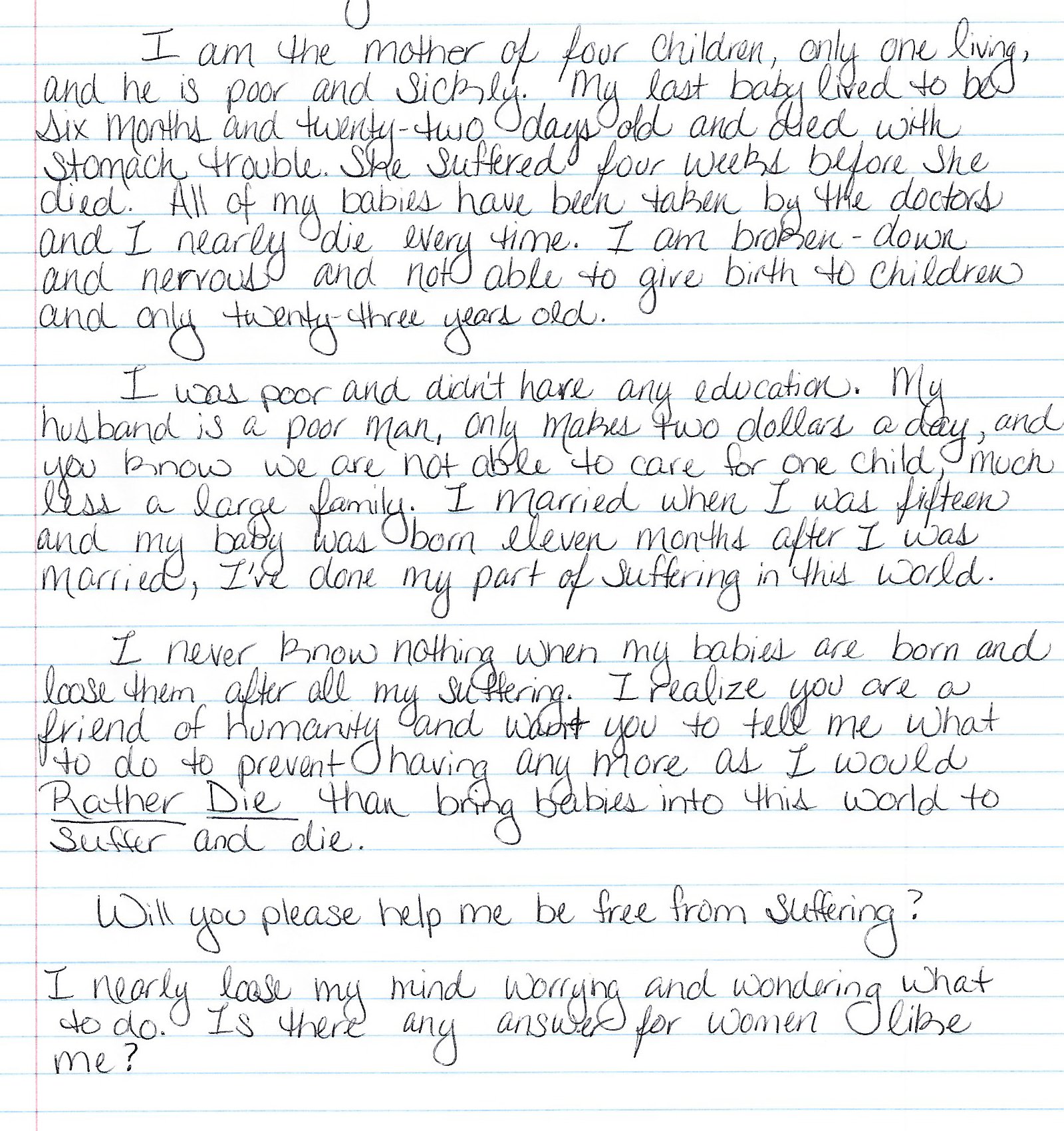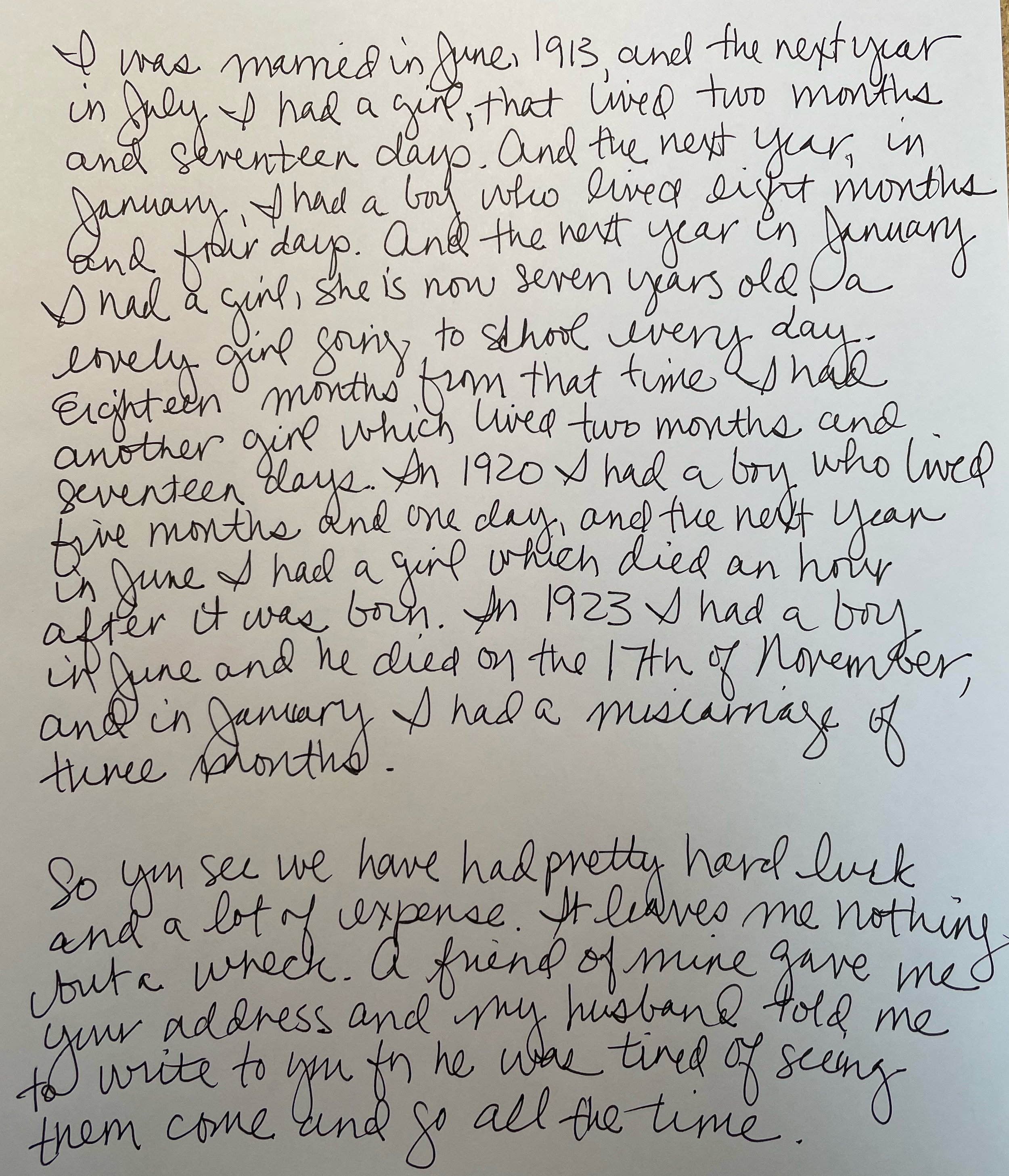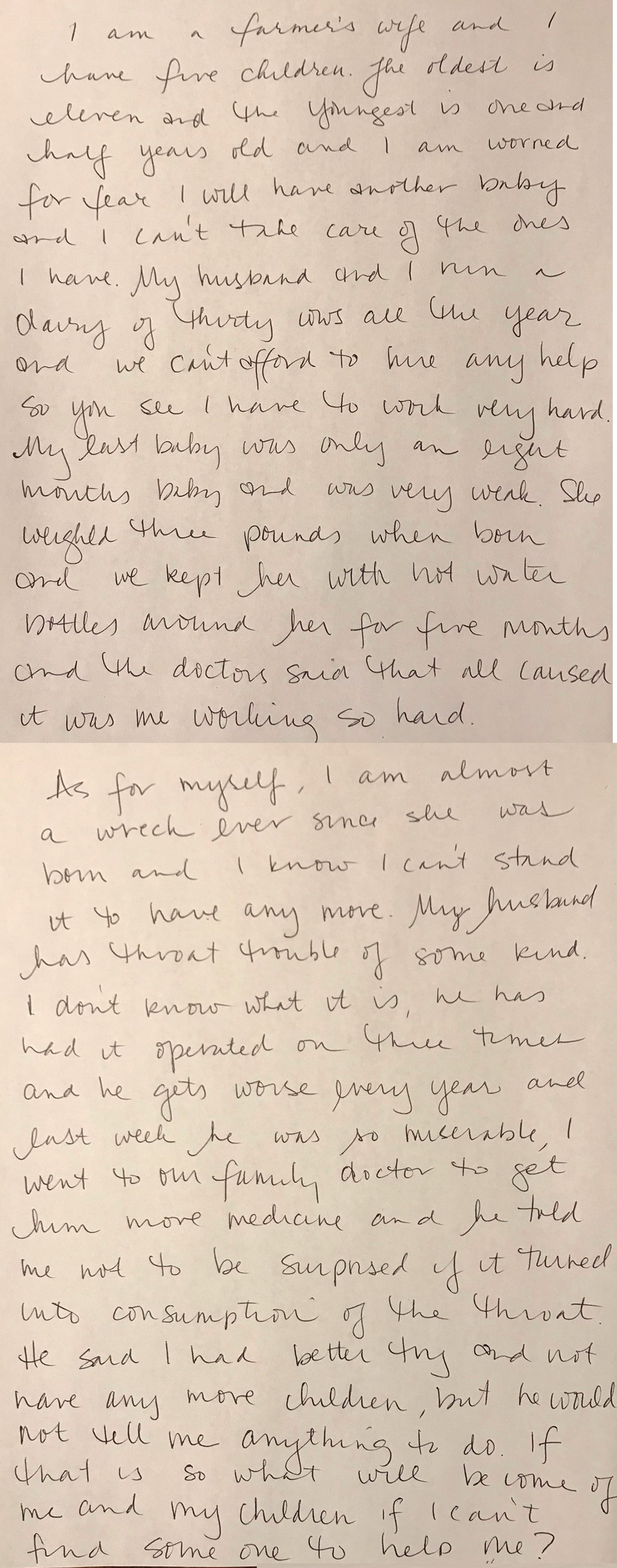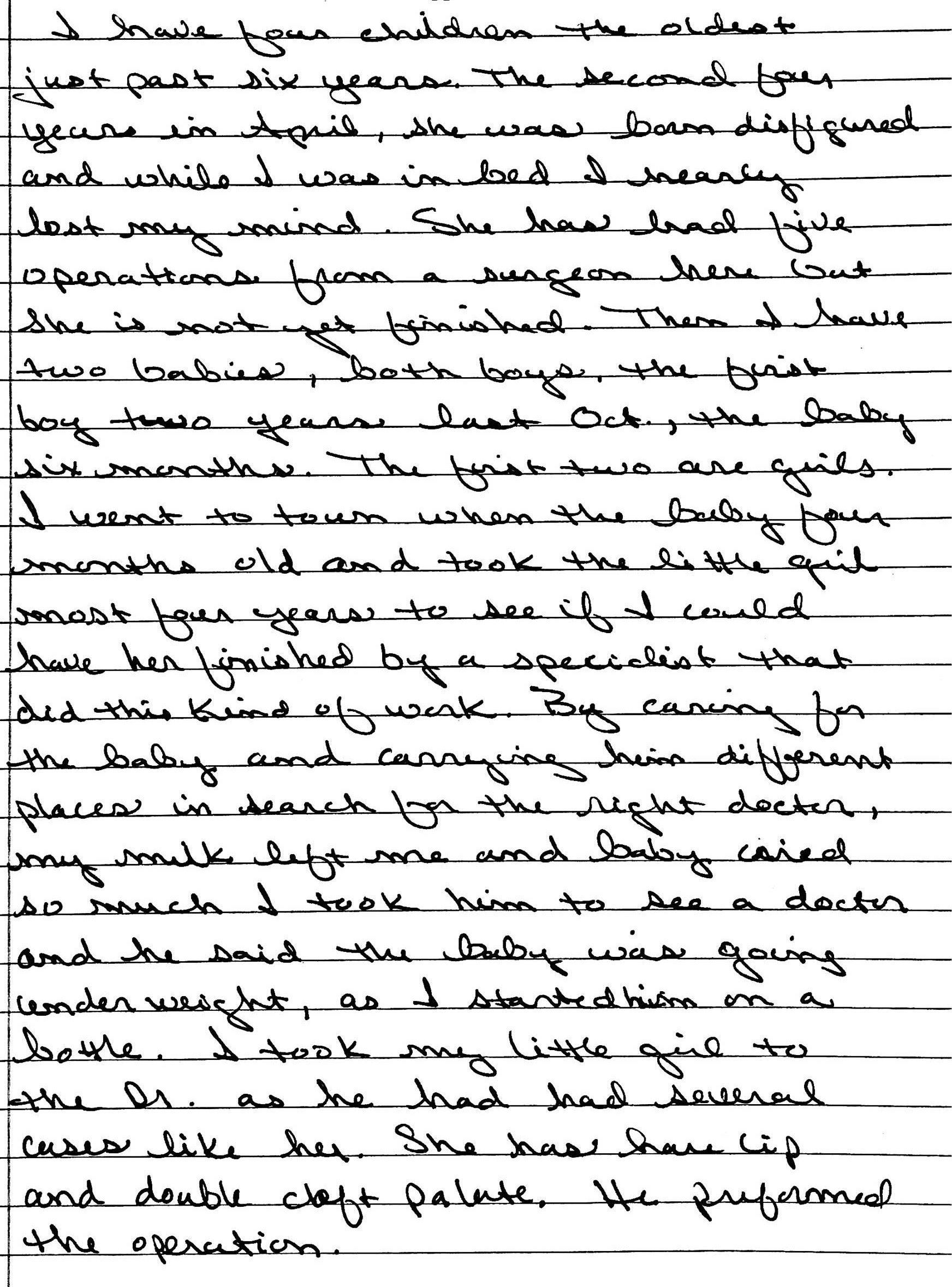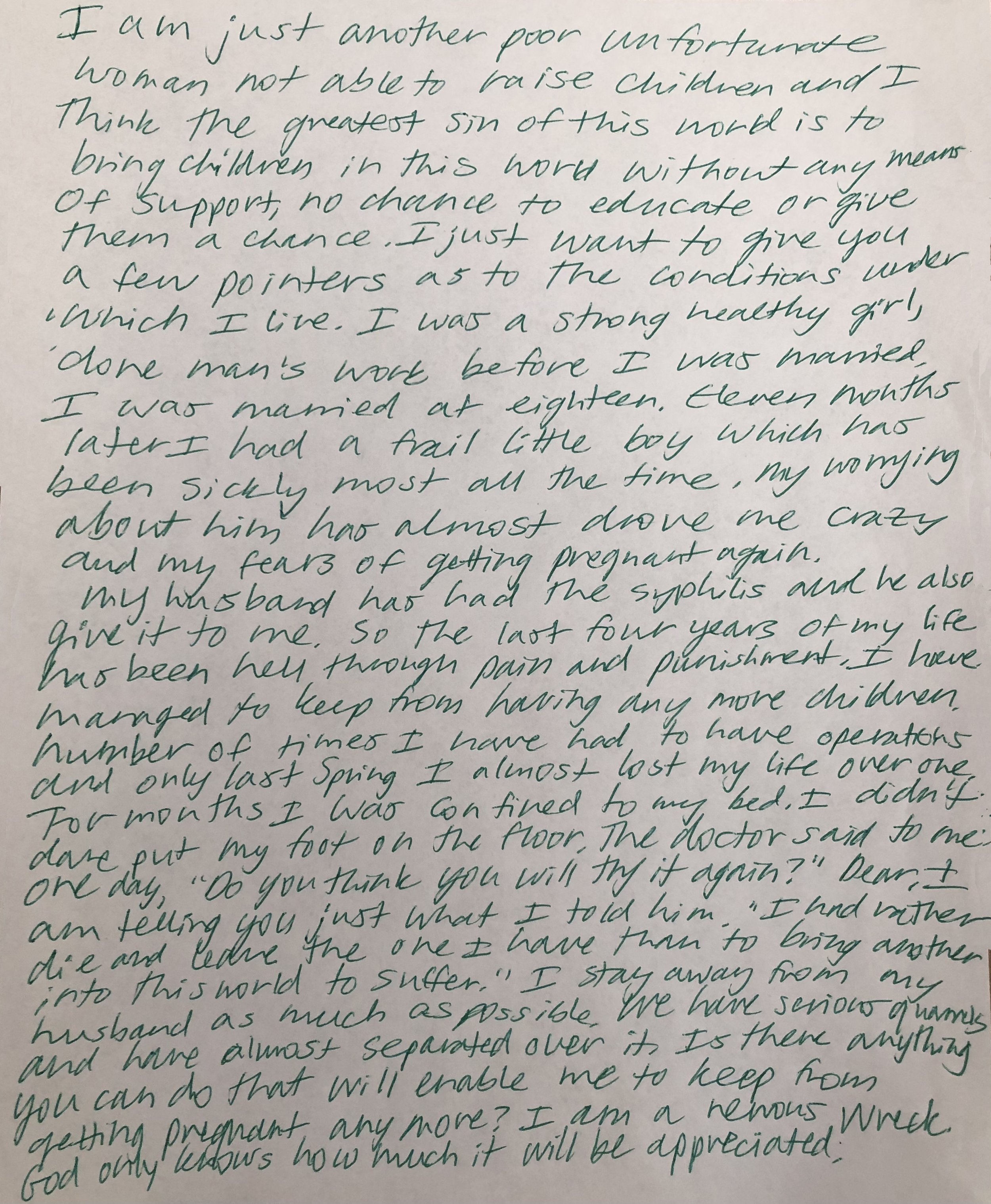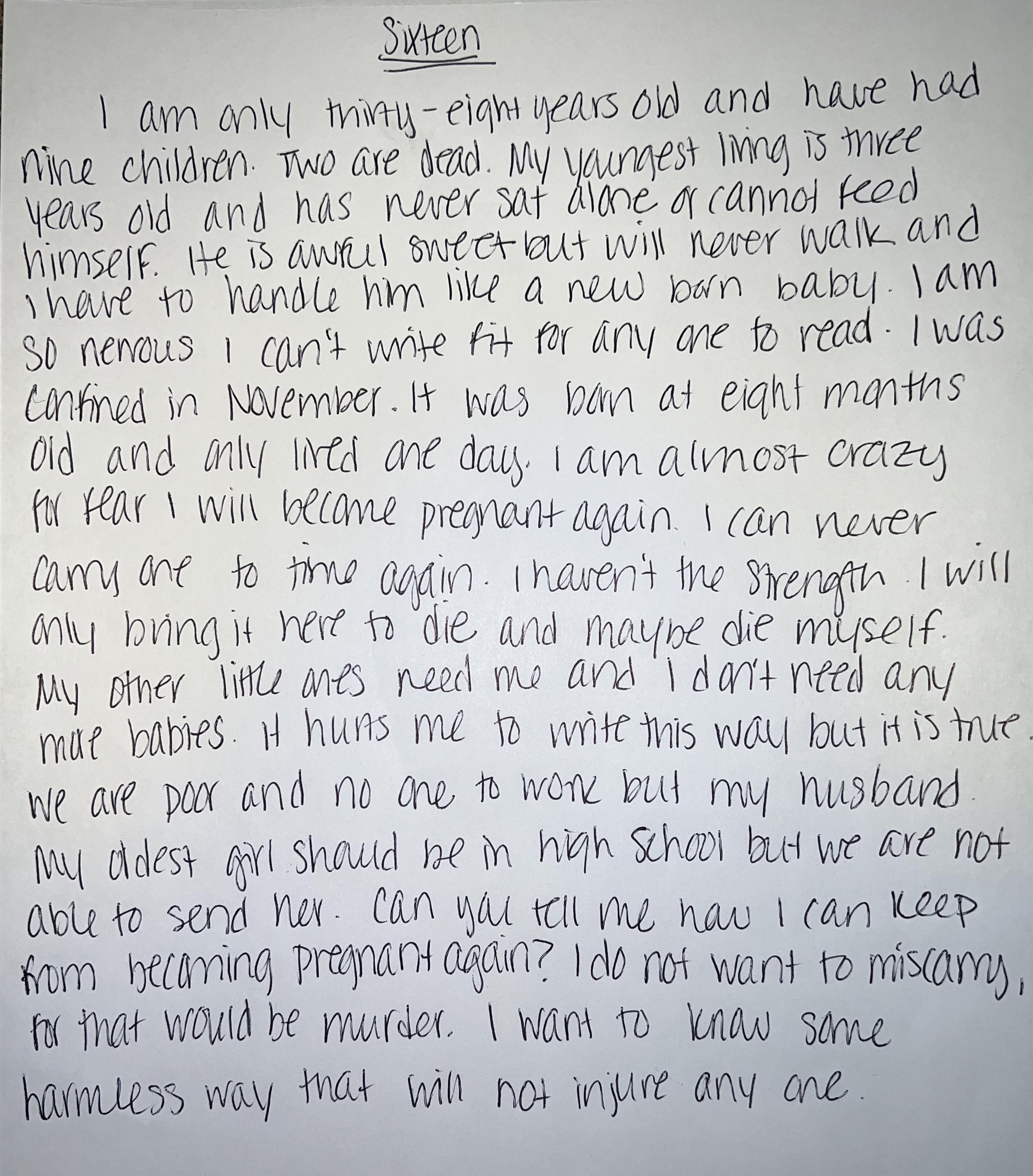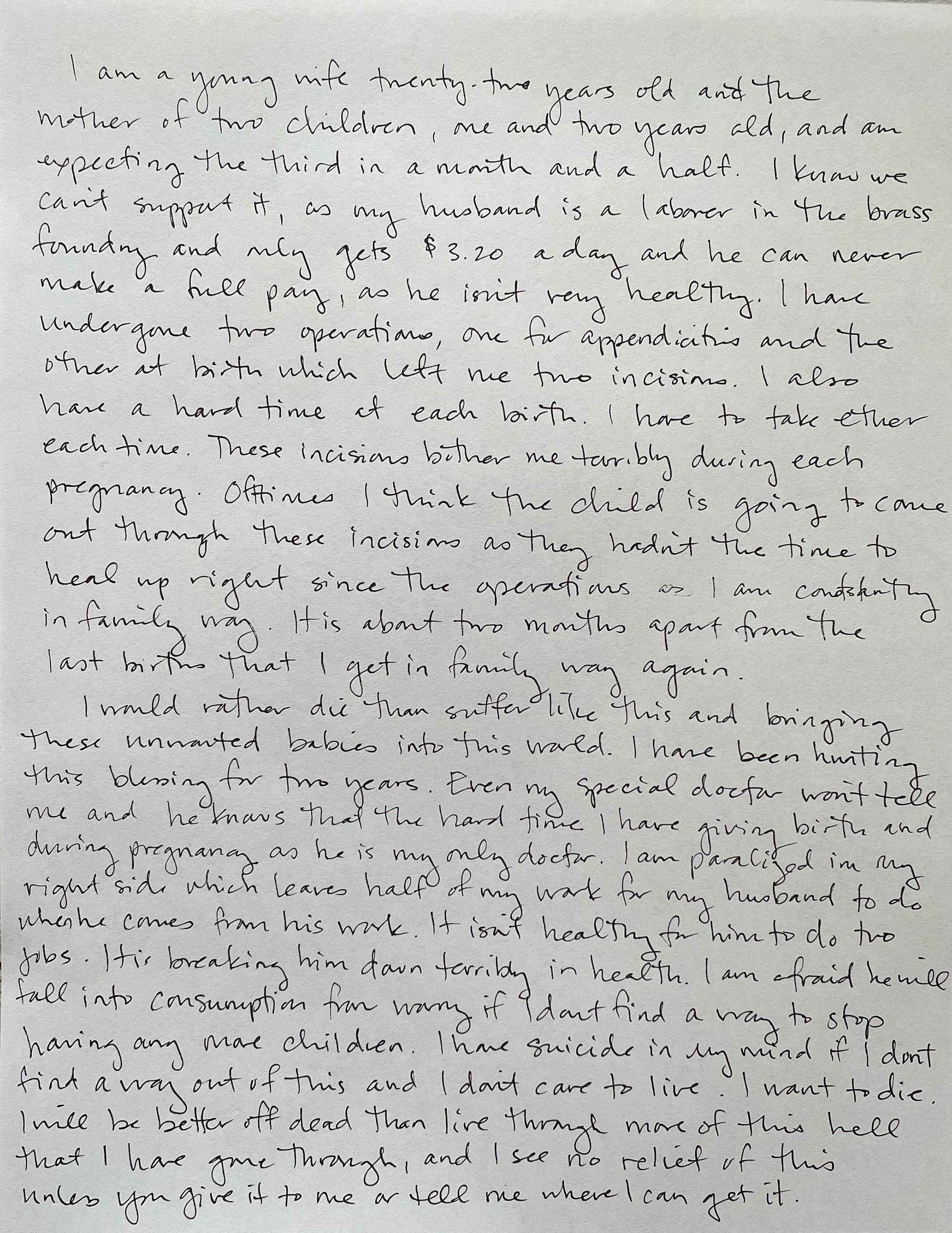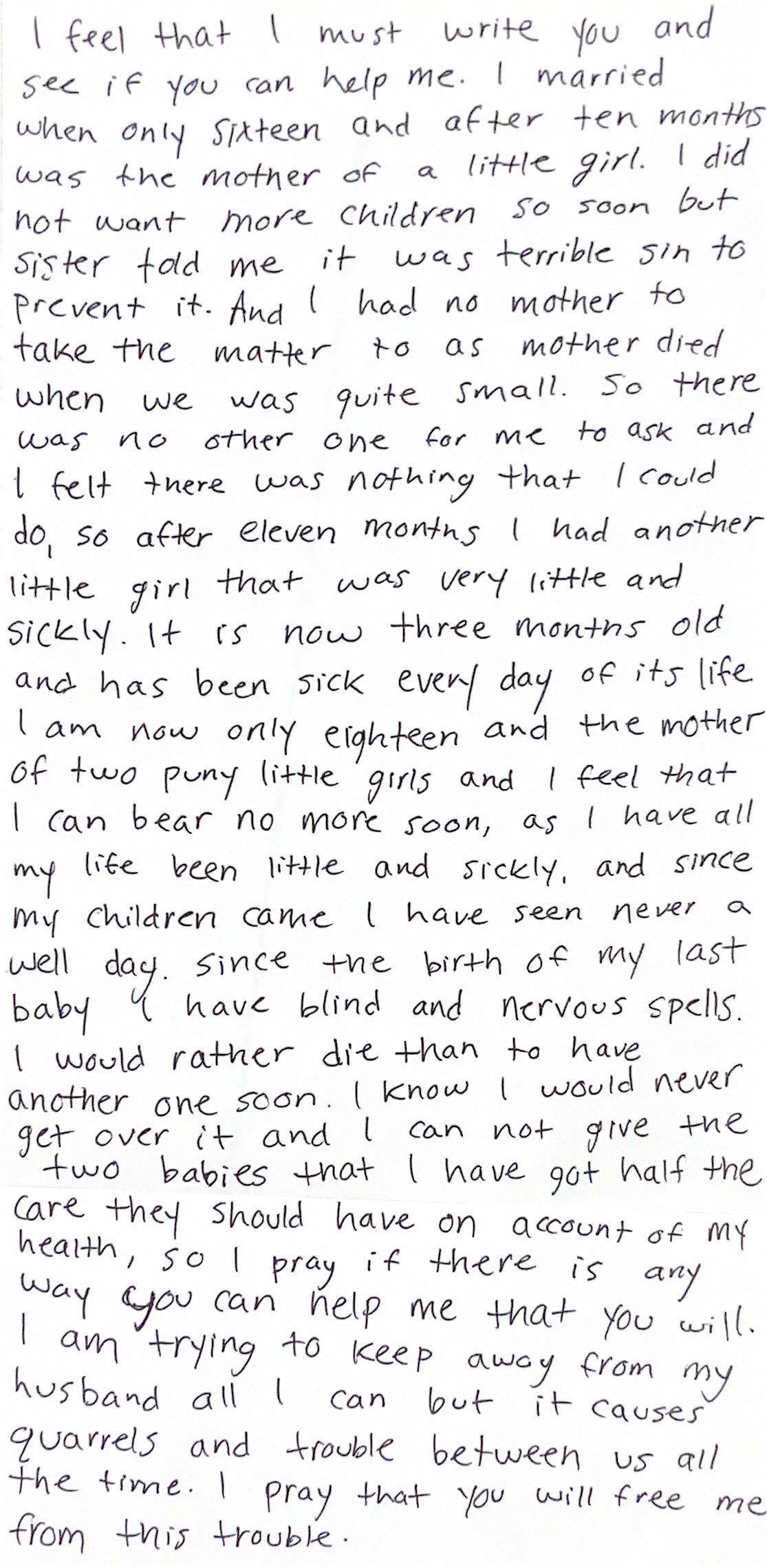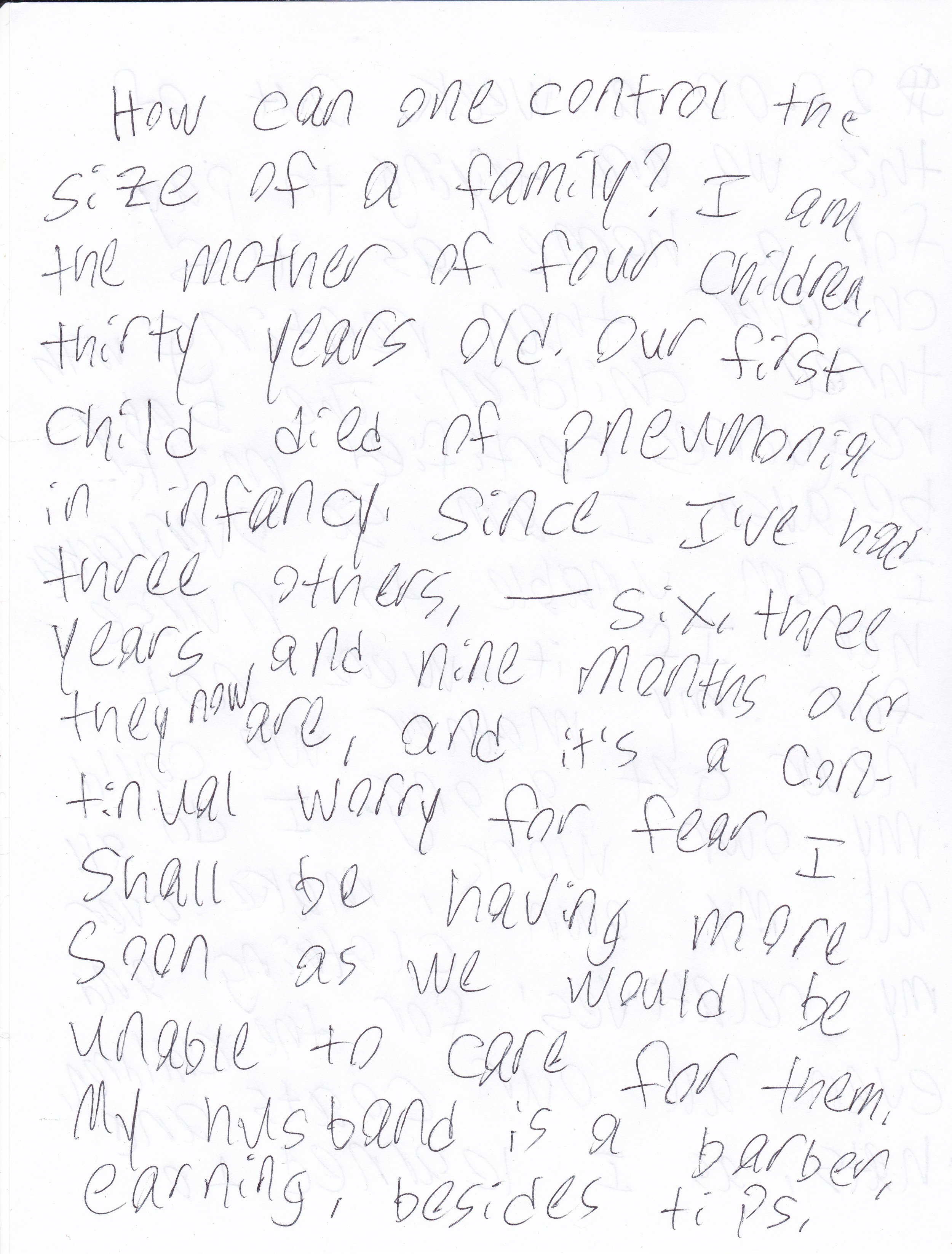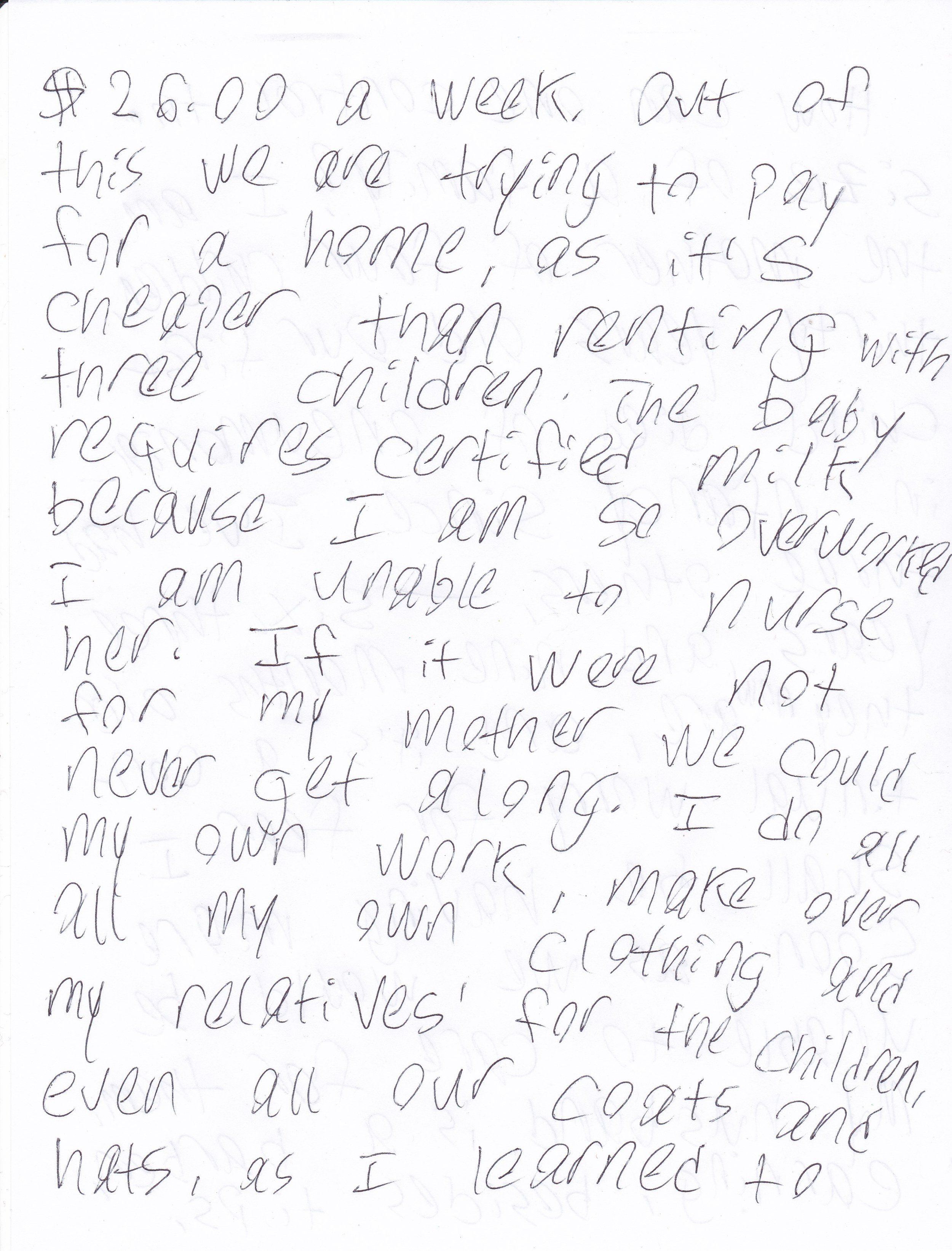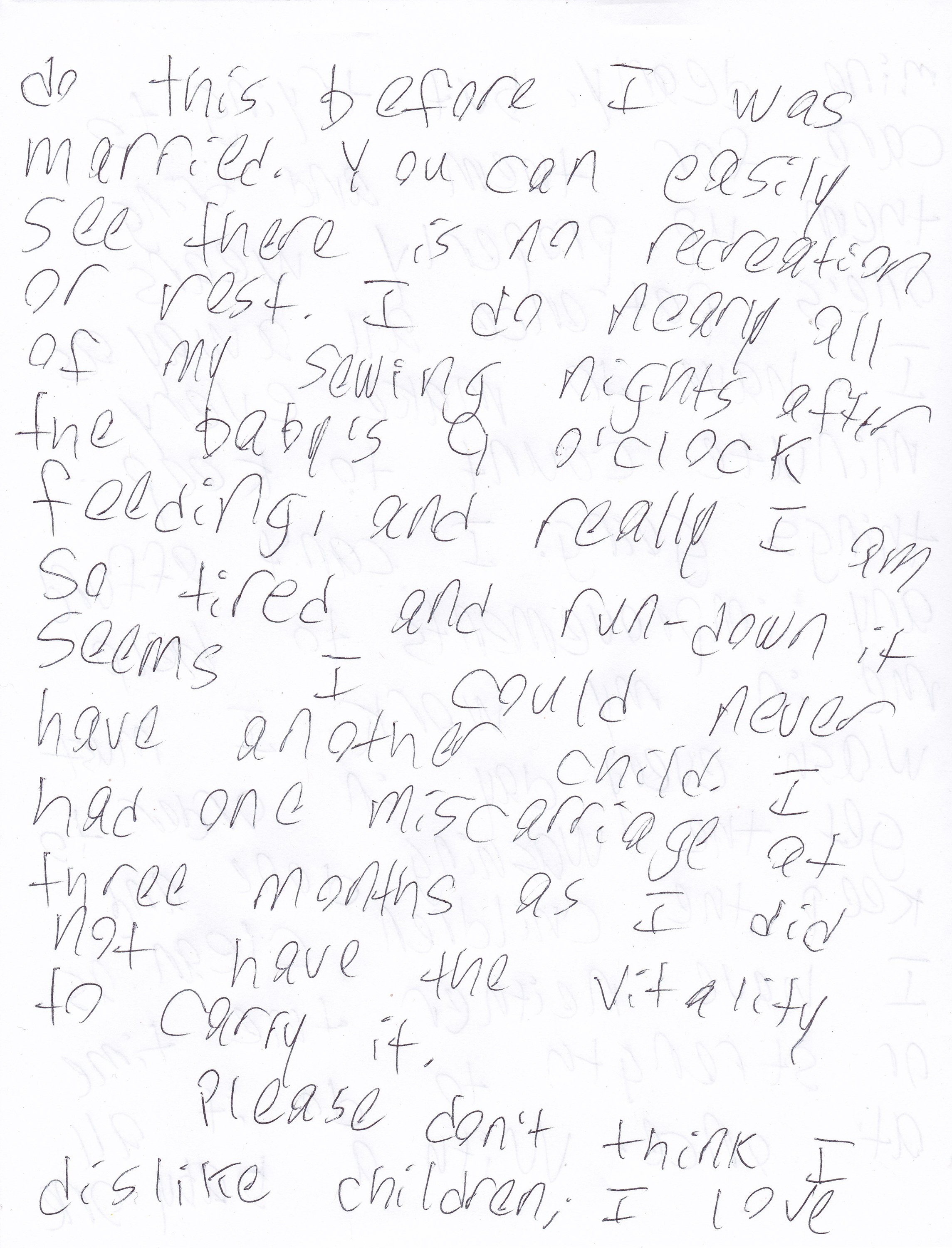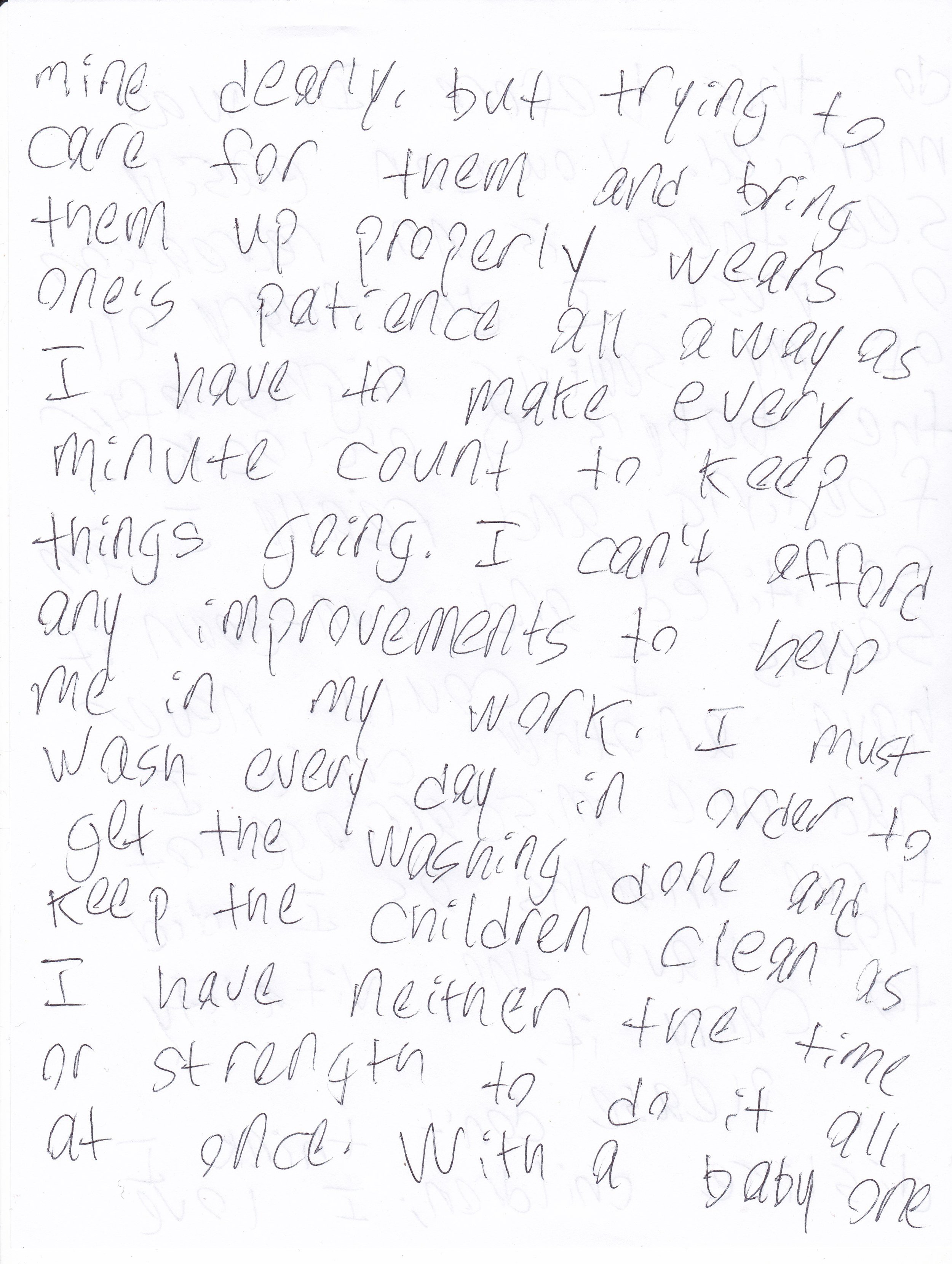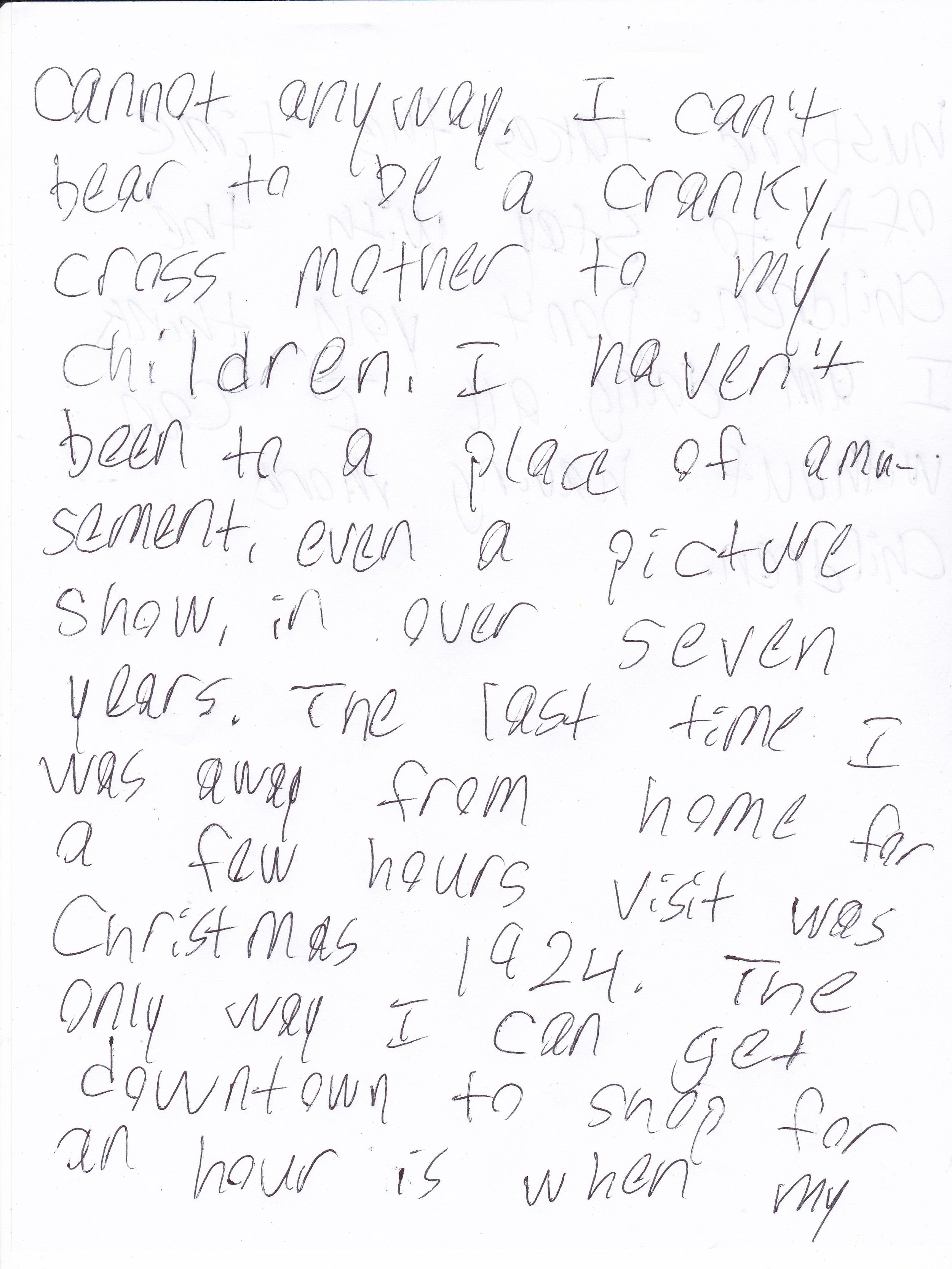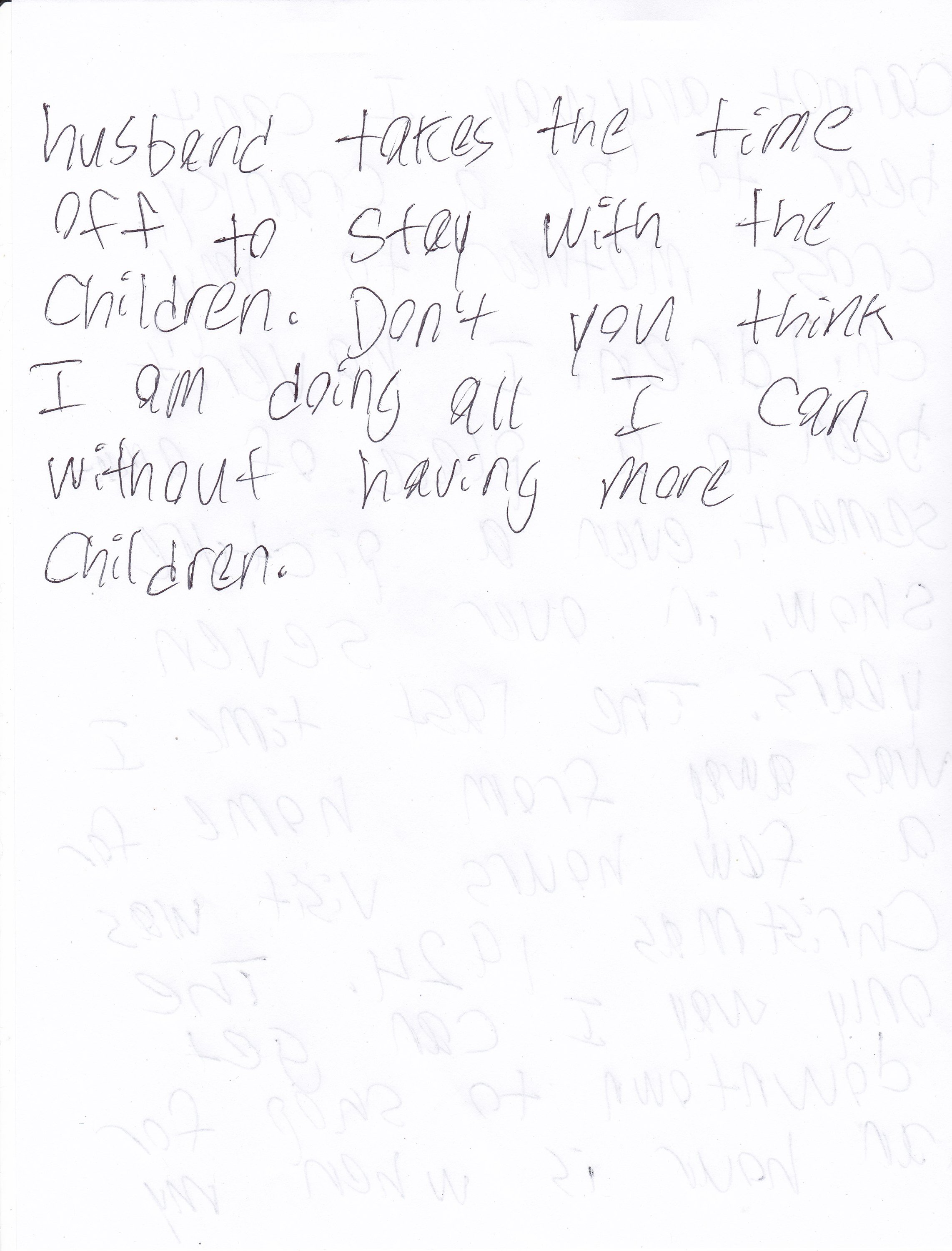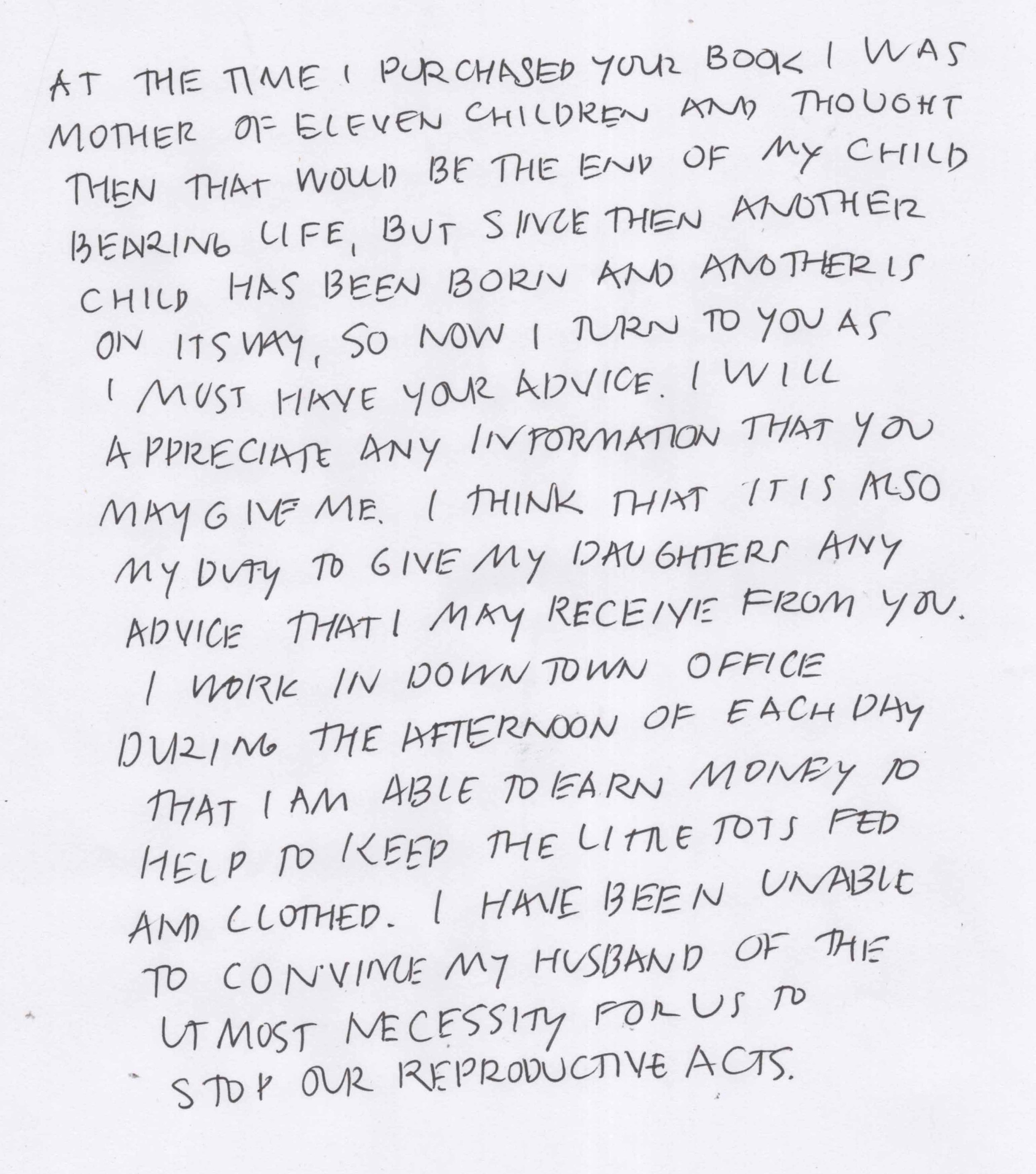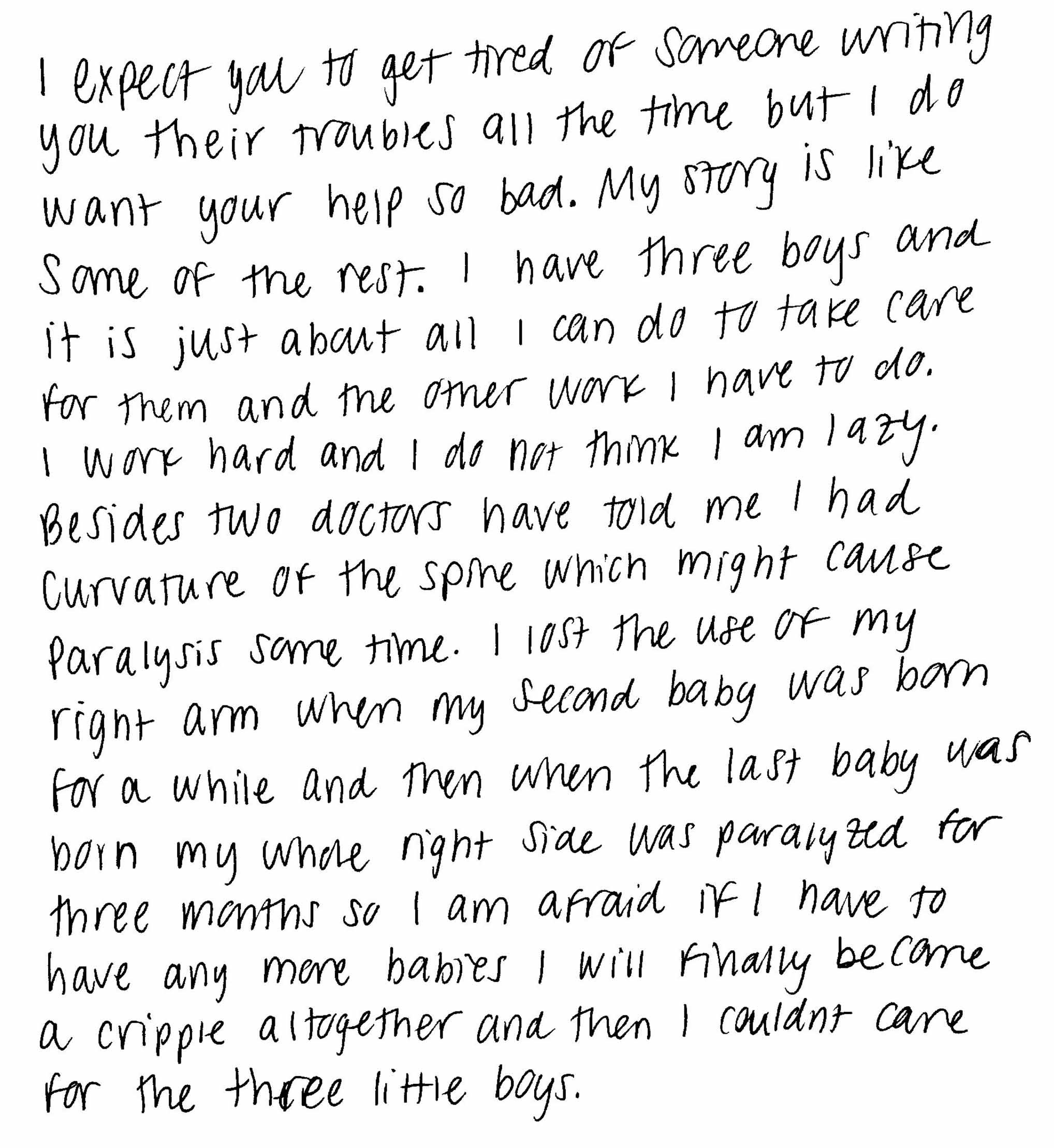unplanned parentHOOD
Unplanned Parenthood is a collaborative mixed media installation about birth control access and the role racism played in the fight for reproductive justice in the United States. In 1928, Margaret Sanger published a book called Motherhood in Bondage, a selection of the 250,000 vulnerable and desperate letters the Planned Parenthood founder received in the 1920s asking for advice about birth control and contraception at a time when any information about such reproductive healthcare was deemed “obscene,” and disseminating it was punishable by law. Some wrote that they would rather die than be pregnant again. Many were living in extreme poverty, had abusive husbands, and suffered multiple miscarriages and stillbirths. This installation is centered on the stories of these mothers who longed for reproductive justice.
Select letters from the collection were hand-written by volunteers from across the country and embroidered onto fabric cut from vintage wedding dresses, symbolizing the societal expectations placed on women in the early 1900s. The embroidery was completed at sewing circles that were held around the United States and by volunteers who sewed letters at home. Each embroidered letter is suspended from porcelain backings, evoking the fragility of women’s rights, and pulls imagery from wedding cakes, lingerie, and jewelry, serving as a commentary on the societal pressure placed on women to embrace marriage, often masking the limitations it imposed, particularly during the times when birth control and autonomy were denied. Vintage meat hooks were used as symbols of the brutality of the patriarchy and the way men have treated the bodies of people with uteruses like animals. The rosary beads serve as a reminder of the enduring influence of christianity in the United States, symbolizing the ways religious institutions have played in shaping societal norms and controlling the bodies of birthing people.
For years, Sanger’s support of white supremacy was rarely discussed by white people. For a period of time, Sanger supported eugenics, she had ties with white supremacists, moved the birth control pill trial testing to Puerto Rico, and supported Buck v Bell, the Supreme Court’s 1927 decision which allowed states to sterilize people they considered “unfit” without their knowledge or consent. The truth about Sanger’s legacy reminds us that the fight for equality has been won at the expense of black and brown bodies.
Sewing Circles
Programming for this exhibition includes exhibition spaces hosting sewing circles for the public, as this project is ongoing and dozens of letters still need to be sewn. The sewing circles provide a space for people to gather, create, and converse. They have taken on many iterations, including simple community gatherings to panel discussions with the ACLU. Throughout history, sewing circles and quilting bees have been a means for women to connect, share stories, and discuss social and political issues. In America, quilting bees were a staple of rural communities during the 18th and 19th centuries, where folks would convene to create intricate quilts which often contained hidden messages, such as symbols in the Underground Railroad, signaling safe houses for enslaved people who escaped. During the suffragist movement, women organized quilting bees to both raise funds for their cause and strategize on how to secure voting rights for women. Quilting has continued to be a powerful form of activism and storytelling. The AIDS Memorial Quilt, started in the 1980s, is a massive quilt made up of individual panels, each commemorating a person who lost their life to AIDS. The Safe Motherhood Quilt honors the lives of people who died of pregancy related causes in the United States.
Just as quilting circles have historically been a vehicle for change and solidarity, Unplanned Parenthood sewing circles offer a place for participants to explore the eroding rights of individuals with uteruses, fostering a sense of community and advocacy through the act of creating and dialogue.
Sewing circles have been been hosted by 21c Museum, Monuments to Movements, Weinberg/Newton, Lump Projects, and Cummings Gallery. The next sewing circle will take place at the University of Missouri Kansas City in October of 2023.
censorship
In 2023 one of the prints from this project was censored from an exhibition that opened March 3rd at Lewis and Clark College in Idaho. The piece was a copy of a letter written by a mother in the 1920s who said she had two abortions. Work by artists Katrina Majkut, and Lydia Nobles was also removed from the exhibition. Read about it here.
In 2025, Max Downham, the director of the International Museum of Surgical Science, tried to censor the Unplanned Parenthood exhibition from the museum after receiving complaints about the use of rosary beads in several of the pieces. The curator of the exhibition, Michelle Rinaud, stood up against the censorship, and with counsel from the National Coalition Against Censorship, the work was ultimatly kept on display.
